Fratelli Carli S.p.A. Società Benefit


Fratelli Carli S.p.A. Società Benefit

Our Responsible Progress: tradition, excellence, environment

Fratelli Carli S.p.A. Società Benefit
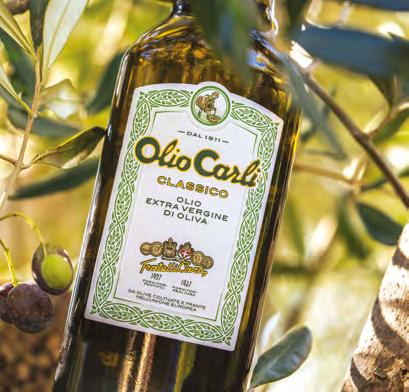
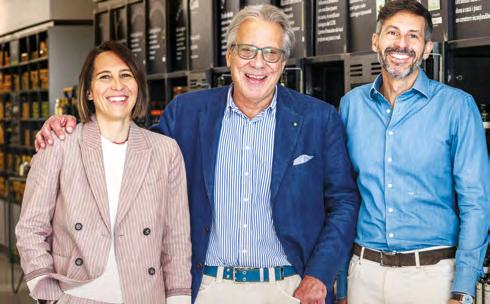

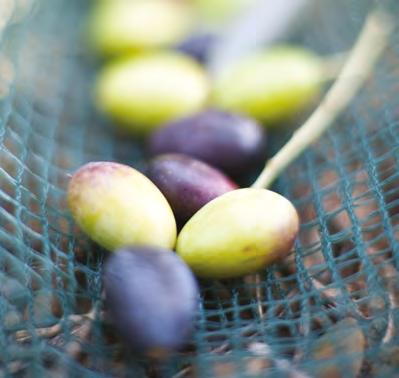
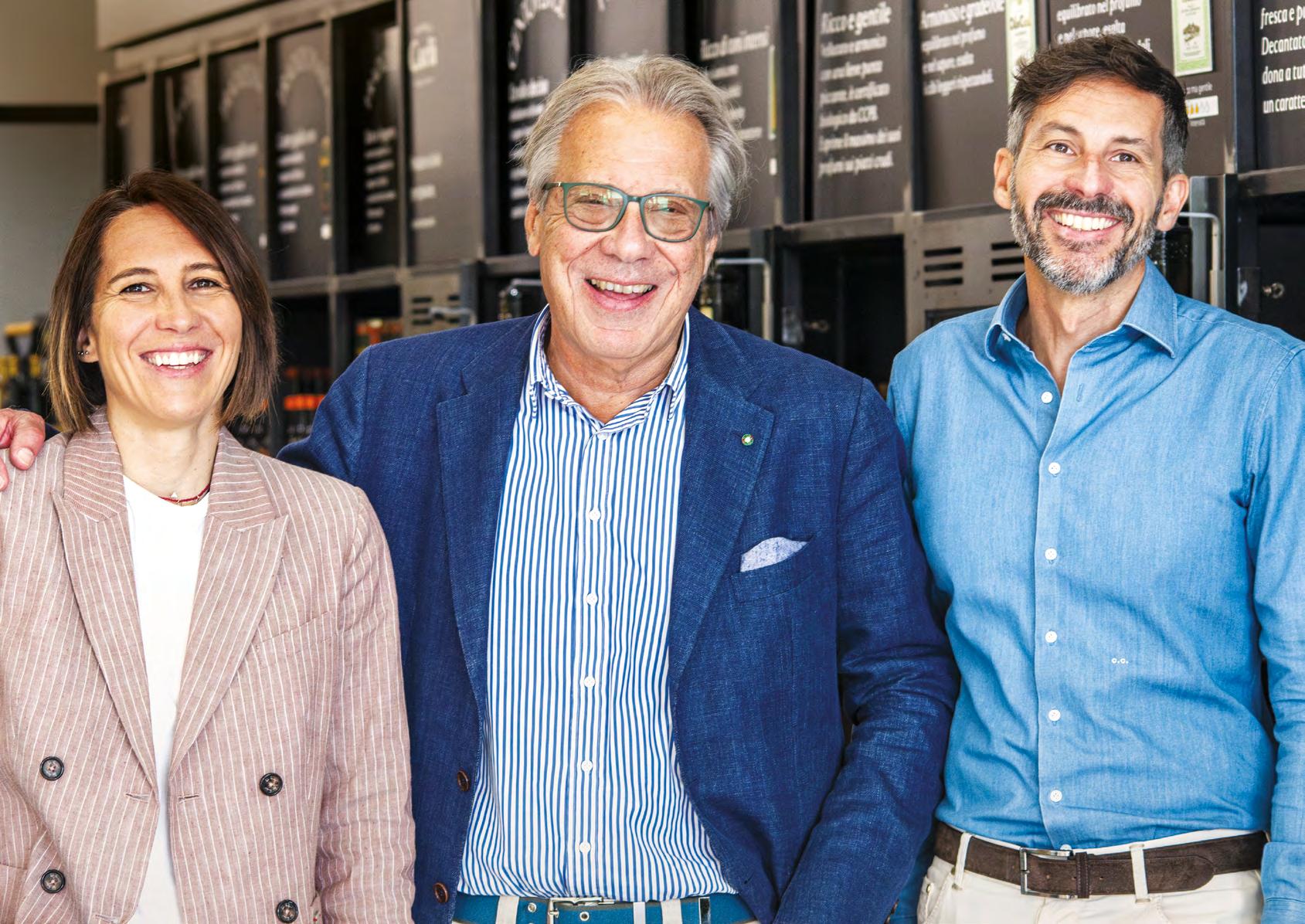
No
showing off,
no getting disheartened. Confident, without being smug, that we’ve always strived to get things right, undertaking to use our experience to do better every day. Always ready, when necessary, to study and to learn something new.
Giovanni Carli Development Plan, 1961

Our tradition is excellence, and our future lies in taking care of the present
2024 was yet another year of major challenges for the oil market, to which we rose with all the experience of our tradition, without ever compromising on the quality of the products we offer our customers, and with a close eye, as ever, on the future
Driven by courage, determination and a clear vision, we’ve built a strategic business plan that seeks to tackle change by focusing on innovation, without forgetting those guiding values that have always inspired us
We’ve achieved this by investing in people, planning new projects and increasingly placing sustainability at the heart of the decisions we make.
Not as a stand-alone effort, but as an integral part of how we do business: a principle “by design” embodied throughout Fratelli Carli and evident in effective, measurable, shared actions.
Our Sustainability Plan, which has always been founded on five pillars – People, Products and Materials, Supply Chain, Energy and Resources, Mediterranean Culture and Tradition – has over the years become stronger, more precise, better organized and more all-encompassing
In this report, we’ll be illustrating the results achieved along the way, and the new targets we’ve set ourselves for the coming years.
For us, reporting means highlighting how what we say matches what we do, as well as renewing our relationship of trust with you all: customers, workers, suppliers and the community.
Claudia,
Gian Franco and Carlo Carli

Working hard, getting it right. With intelligence, tenacity and humility. No showing off, no getting disheartened. Confident, without being smug, that we’ve always strived to get things right, undertaking to use our experience to do better every day. Always ready, when necessary, to study and to learn something new. In short, our approach to work means trusting in and relying on ourselves and our strengths.
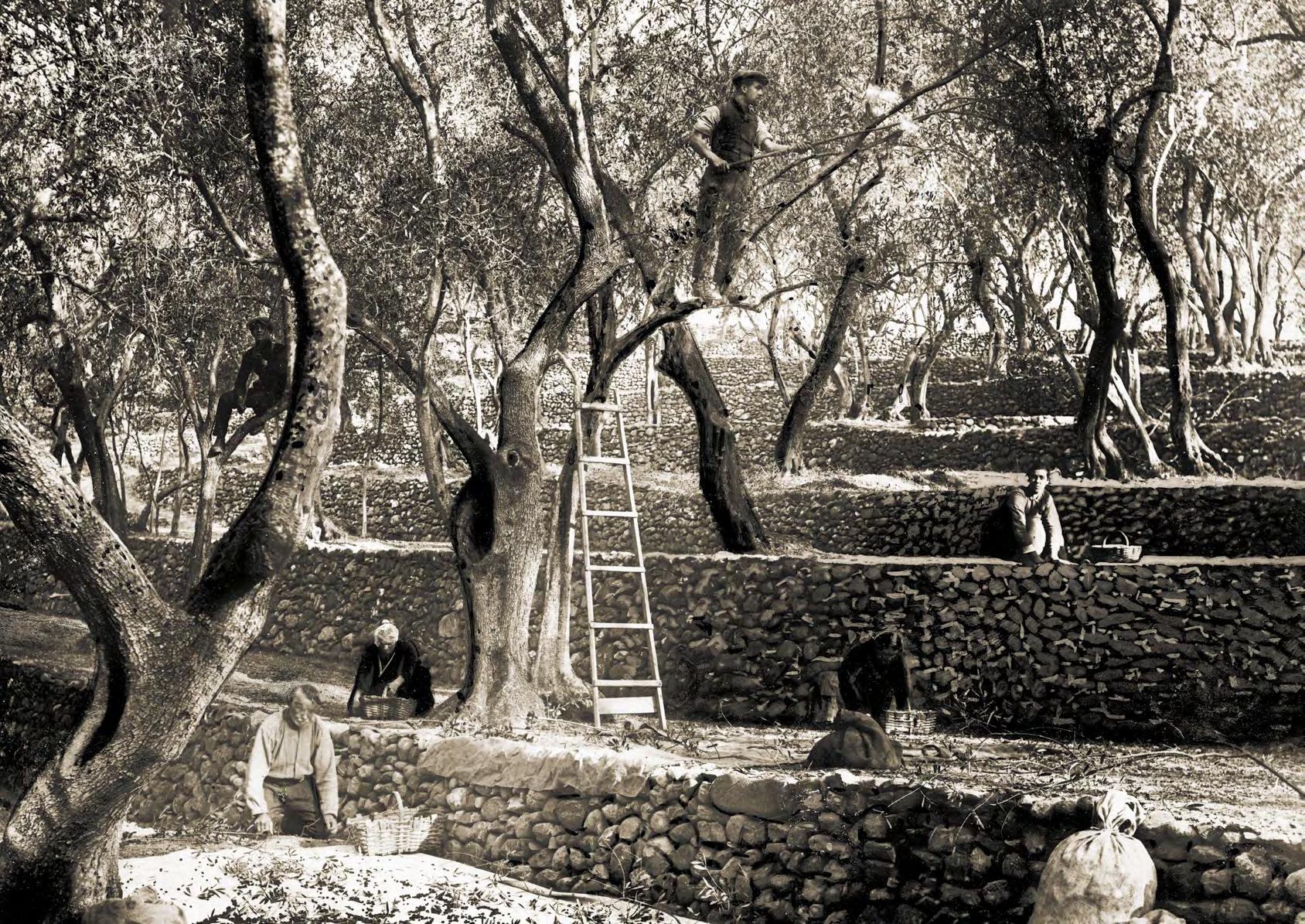

This is what we have achieved so far… and we plan to do more and better going forward.
This detailed account reaches out to the public at large, seeking in particular to remind our children and grandchildren how the company began and how it has grown, telling the story of a family whose achievements deserve to be recognized and acknowledged.
A family-run business
Fratelli Carli is a longstanding Ligurian olive oil company. Since 1911, we have sold our products directly to consumers, with home deliveries both in Italy and abroad. The company is inextricably linked to its home in the Imperia area, a timehonored, traditional Italian olive oil production zone. A heritage that Fratelli Carli has been able to preserve over many decades, handing down unique skills and experience from one generation to the next to ensure prime quality.
Fratelli Carli produces olive oil, traditional Ligurian and Mediterranean preserves and various delicacies, with our olive oil contributing to their excellence. The company is also renowned for its wines and cosmetic products.

A signature feature of the company has always been our distribution model. Consumers worldwide can place their orders directly by phone, by regular mail or online. Delivery to customers is ensured by a broad-reaching logistics network. The national network is operated by trusted transporters that play their part in guaranteeing full satisfaction and efficiency.
In the 2000s, we decided to also open a retail channel, with directly run single-brand stores. Twenty-one Emporiums have been opened to date, thus offering customers an omnichannel sales model, and the opportunity to choose how they purchase our products.
A record of excellence spanning more than a hundred years
Fratelli Carli was founded in 1911 by Giovanni Carli, who saw a great future in store for the olive-growing tradition of his native Imperia.
The business continues to this day as a repository of unique knowledge and skills handed down over four generations, not to mention the love we nurture for olive oil, part of the company’s DNA.
The
power of an idea
This year saw an exceptional harvest in the Carli family’s olive grove. The twentyyear-old Giovanni, one of the six children of Carlo Carli, a printer in Oneglia, thought he would offer the abundant olive oil not to local traders, but directly to families residing in the nearby Piedmont region.
1920
The creativity that shaped the company’s history
The renowned commercial artist, Plinio Codognato, devised the Fratelli Carli logo that accompanied the firm for 87 years.

1948
The first post-war price list
The 1943 and 1944 bombing raids destroyed the plant. The young Carlo Carli, Giovanni’s son, rebuilt the company, and sales resumed in 1948.
1912
The first price list
1936
The first Ricettario Carli cookery book
1965
The first Fratelli Carli vans
The family’s printing business was key to the success of the enterprise, allowing them to produce price lists in order to reach out to new customers.
A year before the company was honored as a Purveyor to the Royal Household, the chef of the Royal Household, Cav. Pettini, penned the first Ricettario Carli (Carli cookery book), enriched with illustrations by Cappadonia. This gift to all Carli customers ushered in a tradition that remains to this day.
In its effort to fully satisfy demand, Fratelli Carli launched its fleet of vans for home delivery, replacing delivery by rail.
The centenary
At the heart of the new headquarters, built in 1971, was an innovative Data Processing Center, allowing the company to look ahead to the future.

The company’s hallmark philosophy of well-being prompted the launch of the Mediterranea olive oil cosmetics range.
Fratelli Carli was one of the first companies to believe in the potential of internet. After the first website, oliocarli.it, came the platforms in the languages of the countries in which Carli products are sold.
2010 First Emporium opened in Imperia

The first Fratelli Carli Emporium opened in the Imperia factory, inaugurating a successful retail format subsequently replicated in the main cities in Italy.
Fratelli Carli, a Benefit Corporation obtain B Corp certification.
2022 Toward Carbon Neutrality
Rising to a global challenge, Fratelli Carli has set out a plan to measure and reduce emissions, and has decided to embark on a process to offset them, prioritizing delivery logistics.
Scan the QR code to learn about the key moments in the history of Fratelli Carli


Fostering the culture of the olive and of Italian taste, by engaging directly with our customer base, always under the banners of ethics, quality, and respect for the environment and for people.
We comply with rigorous social and environmental standards, with a keen awareness of our responsibility toward society and the planet.
Doing good is what we do best. This is the guiding principle that drives us to devote attention to every detail, every day: in our products, our service, and our exclusive relationship with our customers.
For over a century, the company has placed importance on the local culture, with a passion for quality and respect for hard work. On a daily basis, Fratelli Carli enters customers’ homes, not just to deliver products, but to convey its vision and values, with the aim of preserving a unique relationship, which in many cases stretches back decades.
Making every moment at the table a unique taste experience A benchmark in the olive world
The accent is on Carli Flavor: the goodness you can serve up any time, with products suitable for both special occasions and everyday fare, making every moment around the table an extraordinarily flavorful experience.
Our company was established and has grown in sunny Imperia, where the olive is a symbol of culture and a passion for the production of prime-quality oil. For four generations, our skills and knowledge have been preserved, enhanced and nourished, driven by fresh enthusiasm every day.
Behind each product lies imagination and hard work, ideas, sacrifices, aspirations –and indeed the pride we take in the end results. These are all truths that deserve to be said and transmitted.
Giovanni Carli Monthly advertising and expansion program, 1971

Excellence is something our company seeks in all its products:
from our olive oil, which we started off with over a hundred years ago, to the gourmet specialties that are our vocation. Moving on to accompanying our oil with the specialties and cuisine of Liguria and the Mediterranean came naturally to us, driven by a strong desire to share the most authentic, genuine flavors with our customers.
The oil-tasting ritual remains the preserve of Carli family members. This ensures quality, guaranteed by the selection of the best oils from trusted olive growers in the finest olive-growing zones of the European Mediterranean. The range includes various extra virgin olive oils and an olive oil, to satisfy a variety of tastes and requirements, both at the table and for cooking.
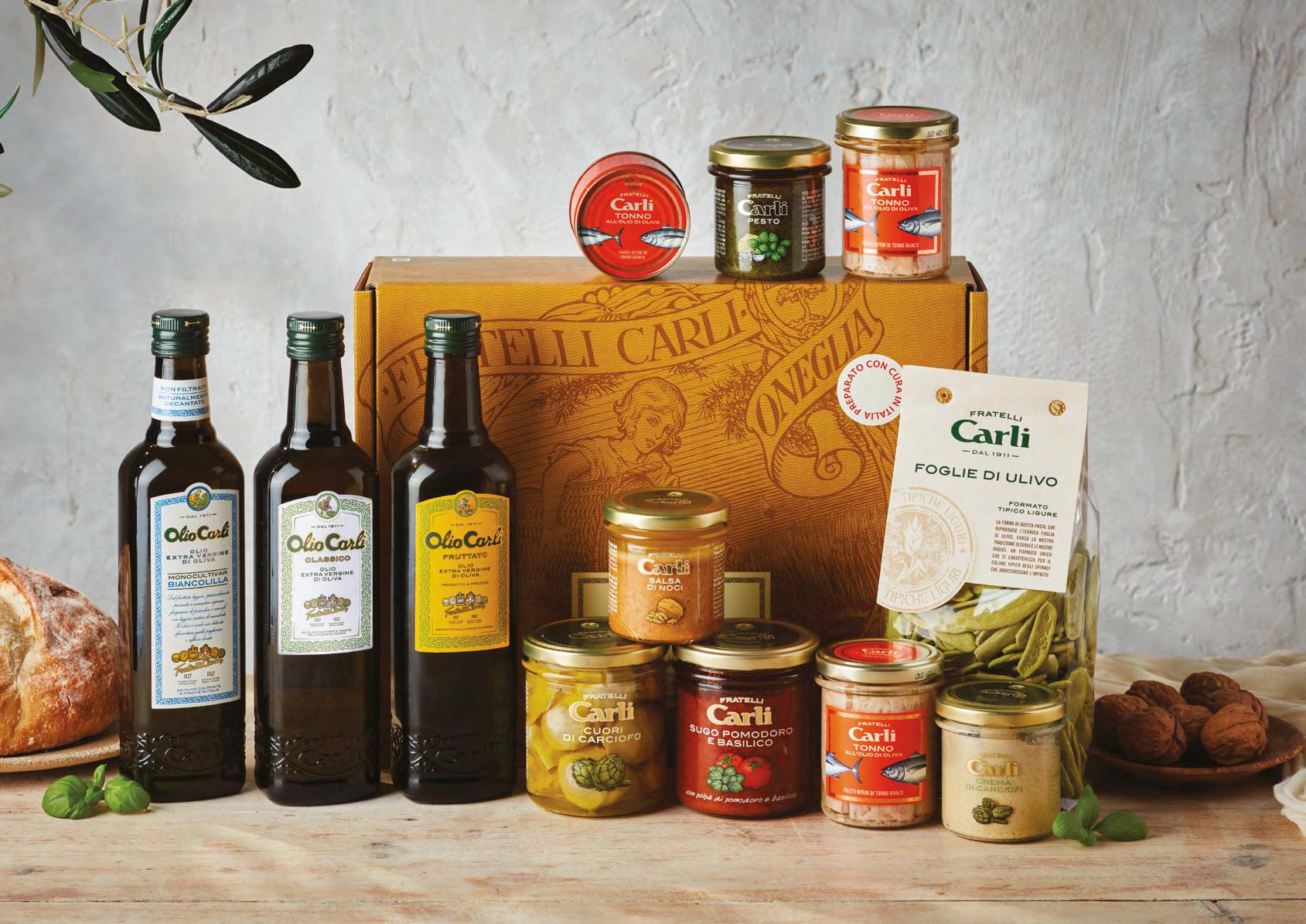
Many Fratelli Carli specialties are produced at the facility located in Gazzelli, a small town set amid the olive groves of the hinterland of Imperia.
This facility also defines the quality standards the company develops together with its external suppliers, factoring in the selection of prime raw materials and an ability to seamlessly blend industrial practices with artisanship. The Gazzelli plant and a network of traditional local growers produce a comprehensive range of specialties linked to olive oil and the genuine “pleasures of the table” so typical of Italian households

Moving on to accompanying our oil with the specialties and cuisine of Liguria and the Mediterranean was a natural step forward, driven by a desire to share our passion with our customers.



TRANSPARENCY
The governance system of Fratelli Carli is based on a set of rules, practices and processes underpinning and ensuring transparency, efficiency and accountability.

The governance system of Fratelli Carli is based on a set of rules, practices and processes underpinning and ensuring transparency, efficiency and accountability.
The governance system of Fratelli Carli is based on a set of rules, practices and processes underpinning and ensuring transparency, efficiency and accountability Within the ambit of accountability, governance at Fratelli Carli ensures a work environment conducive to our constant efforts to combat corruption, and underscores the value of legality
The most senior governance body, appointed by the Shareholders’ Meeting, is the Board of Directors.
The Board of Directors, made up of one woman and four men, has a key role in setting strategies and organizational coordination. Two members are in the 30-50 year age range, and the other two are more senior.
The members of the Board of Directors are endowed with all the skills and knowledge necessary to identify and manage sustainabilityrelated issues and impacts within the scope of their management. They are supported by both the Sustainability Committee and the Management Committee, with which they actively cooperate to guarantee sustainable management of the company.

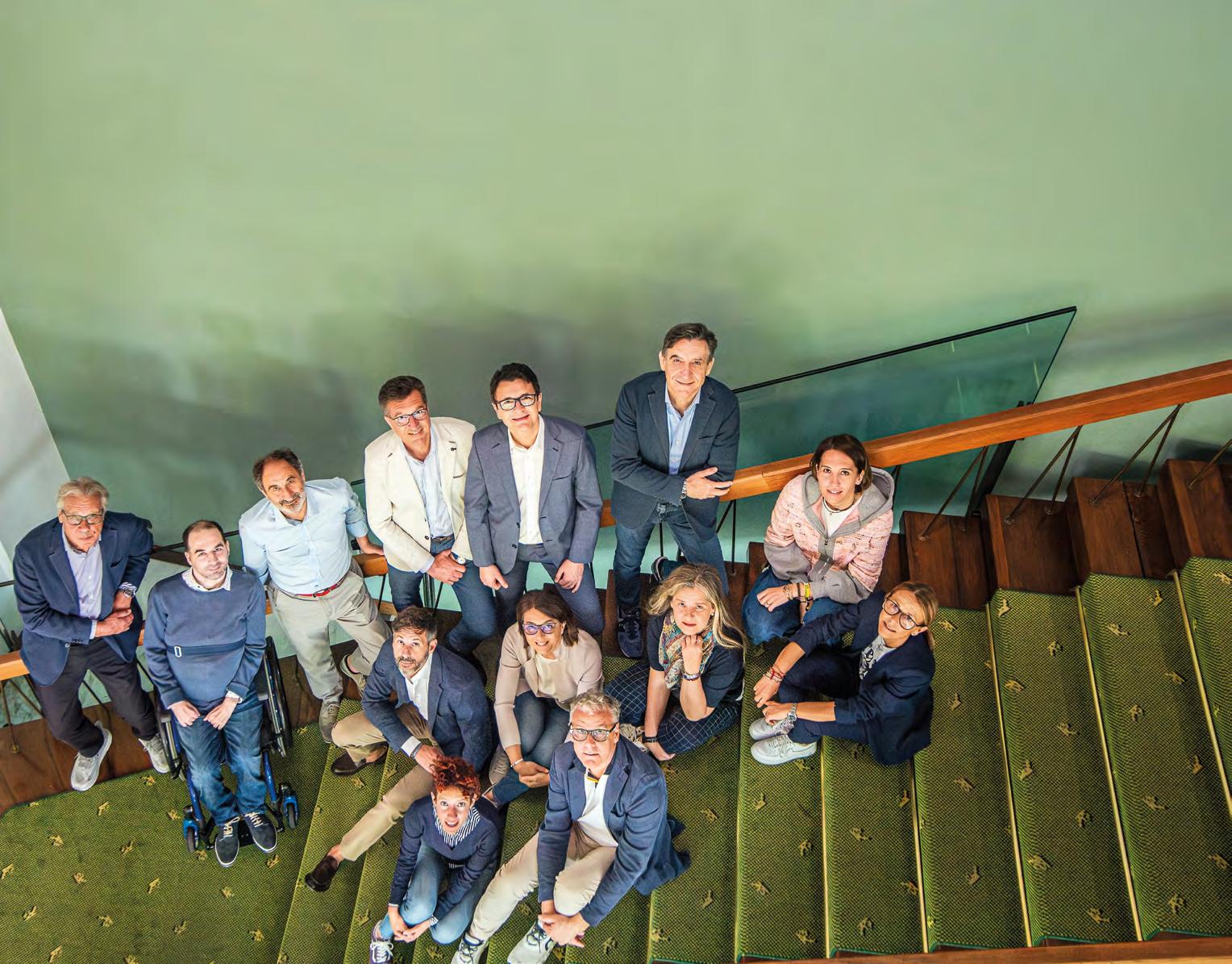
The Sustainability Committee is the body entrusted by the Board of Directors with the management of sustainable innovation issues It was set up in 2013 to propose and advise on possible goals and actions to promote sustainability. The Committee, which includes representatives of all the corporate functions and is chaired by a member of the BoD, coordinates and guides the efforts of the company to work toward a new social and developmental model.
The Management Committee is responsible for managing the organization’s impact on the economy, the environment and people. It is composed of top management figures of the company, and thus offers a global vision of the organization.
With regard to remuneration, the Board of Directors administers a budget set by the Shareholders’ Meeting. The distribution of the budget is defined by the BoD, depending on the positions of the members. For the executive members, remuneration is made up of both fixed and variable elements. No entry bonus is envisaged, and payment of severance indemnity is complied with.
There are no specific contract clauses regarding sustainability performance, but pension benefits and remuneration policies are contemplated, which, although not specifically coded as such, are linked to the achievement of the corporate objectives.

The procedure for determining remuneration is updated periodically.
The promotion of responsible conduct within the company is based on two main elements: the pillars of sustainability and the articles of association. The articles of association make up the key document that guides the company’s operations, setting out the efforts and objectives designed to ensure responsible management. Management of any issues regarding the pillars of sustainability and the articles of association is entrusted to the pertinent functions in the company.
It is the task of these functions to promptly collect and manage any comments made and issues raised by the stakeholders, assessing whether they are effectively valid, and the magnitude and urgency of any such issues.
This is followed by an assessment of appropriate remedial action to mitigate and solve the issue
This approach makes it possible to maintain an open dialogue with stakeholders, and to act swiftly to tackle any issues raised.
At 31 December 2024 no conflicts of interest have been reported. Some directors are members of other Boards of Directors: according to the Articles of Association, service on the Board of other companies does not breach the principle of competition.
A whistleblowing channel was set up during the first half of 2023, in compliance with the current regulations, in order to ensure significant issues can be reported safely and confidentially. This system allows employees and other interested parties to report critical issues anonymously, so they are protected.
This allows the company to act promptly on the issues reported, guaranteeing transparency and the responsible management of serious issues. Significant critical issues are promptly reported to the company’s top governance body.
In short, the company undertakes to promote responsible conduct, through the commitments set out in the articles of association and in the pillars, and thanks to the tools available to its customers, employees and stakeholders.

Below are the business associations the company belongs to:

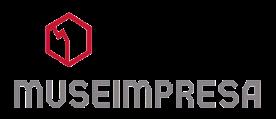


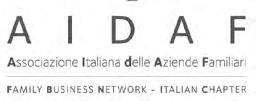
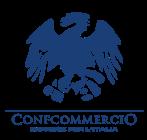
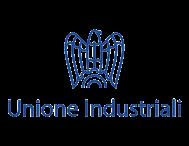
In the three-year reporting period, there were no significant instances of failure to comply with laws and regulations.

The common good means pursuing one or more positive effects, and/or reducing negative impacts on individuals, communities, the local area and the environment, cultural and social assets and activities, entities and associations, and other stakeholders.
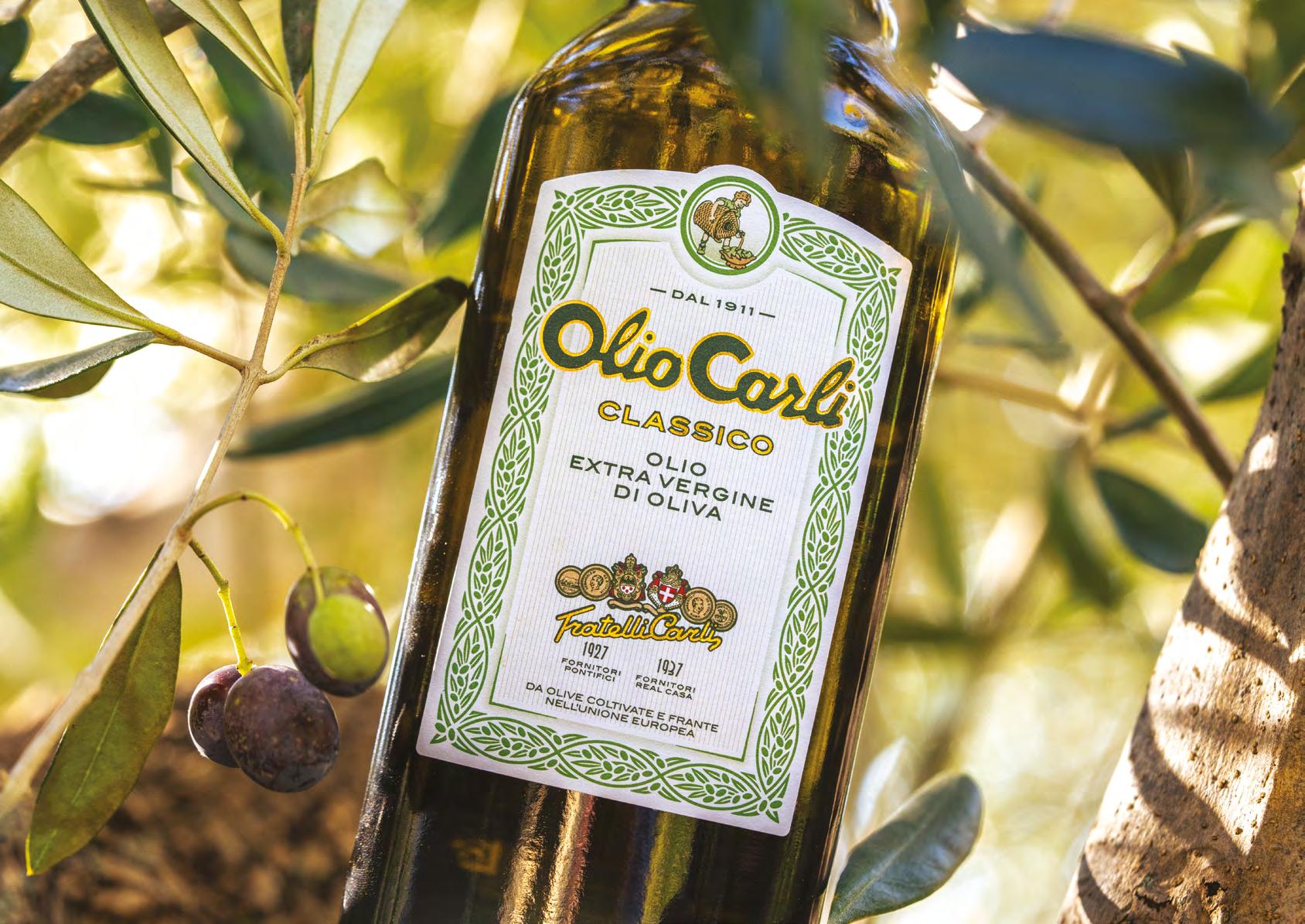
Being a B Corp means seeking not only to be the best company in the world but also the best company for the world.
The certification procedure entails a rigorous B Impact Assessment that evaluates the organization’s social and environmental impact. Fratelli Carli completed the certification process for the first time in 2014, and certification was renewed in 2016, 2019 and 2024.
OVERALL B IMPACT SCORE
Following impact assessment, Fratelli Carli SpA scored a total of 85.3.
The average score for participating companies currently stands at 50.9.
B Corp Certified In 2014, Fratelli Carli was the first Italian manufacturing company to be certified as a Benefit Corporation1, with the aim of building a better future for people and the planet.
“B Corporation Certification” is granted on license by B Lab, a private non-profit entity, to businesses, such as ours, that have passed its B Impact Assessment (“BIA”) and therefore meet B Lab requisites in terms of social and environmental performance, accountability and transparency.
B Lab is not a conformity assessment body pursuant to Regulation (EU) no. 765/2008, or a standardization body pursuant to Regulation (EU) no. 1025/2012 , and that the BIA is independent from harmonized standards, and is not ratified by public institutions.
1
Score required for B Corp certification
Average score of companies
B Corporations (B Corps) are companies that voluntarily abide by rigorous social and environmental standards, without sacrificing “marketplace presence”, but with a keen awareness of their responsibility toward society and the planet.
These companies see sustainability as a fundamental part of their work and the sole path toward future opportunities.
In December 2019, Fratelli Carli chose to adopt the legal form of a “Società Benefit” (Benefit Corporation) according to Italian law, including in its Articles of Association the commitment to pursue the common good as well as profit. The common good means pursuing one or more positive effects, and/or reducing negative impacts on individuals, communities, the local area and the environment. Including this clear commitment in the Articles of Association means making it an integral part of the company, however it may change and evolve.
Benefit Corporations (BCs) are "an evolution of the very concept of a company2 that with its legal status is committed to the achievement of a dual purpose: the pursuit of profit and of social and environmental responsibility." The legal form of “Società di Benefit” was introduced in 2016 in Italy, which became the first country in Europe and in the world - outside the United States - to introduce this legal form. This has enabled companies to align their corporate mission with the pursuit of longterm shared value. Directors and management are in charge of ensuring that the business is conducted with the aim of generating a positive impact and in pursuit of the common good purposes declared in the Articles of Association.

Through the B Corp framework, companies undertake to create value for both their shareholders and all stakeholders. The fundamental principle of the B Corporations is interdependence, i.e. an awareness that we all depend on each other and therefore are all accountable to all stakeholders and to future generations. B Corps are key players in a world capable of creating the right balance between consumption, well-being, wealth creation, and respect for people and the ecosystem.
B Impact Assessment (BIA) is the rigorous B Corp certification control model. It enables companies to gauge their economic, environmental and social impacts. If they score more than 80 points, on a scale of 0 to 200, they can be B Corp Certified.
2
+9,000 B Corps worldwide
+4,500 Benefit Corporations in Italy
Fratelli Carli’s longstanding commitment takes the form of the five Pillars of Responsible Progress, listing the company’s fields of engagement.
These pillars are the cornerstones of Fratelli Carli’s actions. On becoming a Benefit Corporation, these pillars were officially incorporated into the Articles of Association, setting forth the common good purposes the company seeks to pursue.
Providing customers with outstanding products and services, responding to their needs in a timely manner and with due care and attention.
Motivating people who work with Fratelli Carli and contributing to its success on a daily basis, thanks to a relationship inspired by respect for others and acknowledgement of diversity as a value, while prioritizing the safety and rights of employees and collaborators.
Furthering widespread well-being, in full awareness of the social role of companies and their responsibilities as a part of society at large.
Analyzing and enhancing sustainability at each stage of the life cycle of Fratelli Carli products: from cultivation of the raw materials through to consumption.
Increasing the use of eco-friendly, recyclable, biodegradable and renewable materials, especially by decreasing the amount of packaging used for products.
Ensuring optimal food safety, quality, genuine flavor and natural goodness for Fratelli Carli products.
Sharing the values and goals of Fratelli Carli with collaborators and suppliers, to help create a new model for development.
Promoting sustainable agricultural practices that respect the ecosystem and landscape heritage.
Turning to best account our local assets and economic and industrial fabric, with particular attention paid to small farmers.
Cutting back constantly on the use of nonrenewable natural resources, with particular reference to energy sources.
Reducing the amount of waste generated by production and ensuring correct disposal of recyclable waste.
Fostering a widespread culture of sustainability and a new model of a regenerating society, both inside and outside the company. Promoting good practices for a correct dietary culture aligned with Mediterranean tradition and inspired by health and wellbeing.
Our business practices are guided by and oriented toward the common good purposes of the company, which annually plans its impact goals, the actions necessary to gradually achieve them and the criteria for assessing the impact generated.
By pursuing the common good, Fratelli Carli also undertakes to work in order to achieve the Sustainable Development Goals (SDGs) approved by the United Nations in 2015. Specifically, the common good purposes indicated in the Articles of Association aim toward attaining the following SDGs:
Through its SDG Action Manager, able to gauge the company’s impact by collating B Lab’s B Impact Assessment guidelines and the ten principles of the United Nation’s Global Compact, Fratelli Carli has once again calculated its impact on the reference SDGs in 2024. By these means, the noteworthy corporate actions are flagged and developed, also via benchmarking, conducive to ongoing improvement of the positive impacts on various Sustainable Development Goals.
The assessment has also highlighted the positive impact of Fratelli Carli on all the SDGs, and not only the reference goals. This is an important indication of the commitment and sensitivity demonstrated by the company in its everyday operations.
The assessment considers how the company can contribute to everyone’s health and well-being, for example by providing occupational health cover and safety programs for all operators.
The assessment considers how the company can take steps to provide clean and affordable energy for all, for example through the use of low-impact renewable energy, or by improving energy efficiency.
The assessment considers how the company can take steps to deliver decent work and economic growth, such as paying a living wage and ensuring fair development conditions for workers in its operations and supply chain.
Responsible consumption and production.
The assessment considers what the company can do to keep production and consumption at responsible levels, such as adopting the principles of the circular economy and conducting assessments on the impact of suppliers on the consumption of resources.
14
The assessment considers how the company can conserve and use the oceans, seas and marine resources sustainably, e.g. by conducting an assessment of the company's impact on the health of the oceans.
The assessment considers how the company can protect, restore and promote sustainable use of ecosystems, with actions such as sustainable land use practices, and environmental management screening.
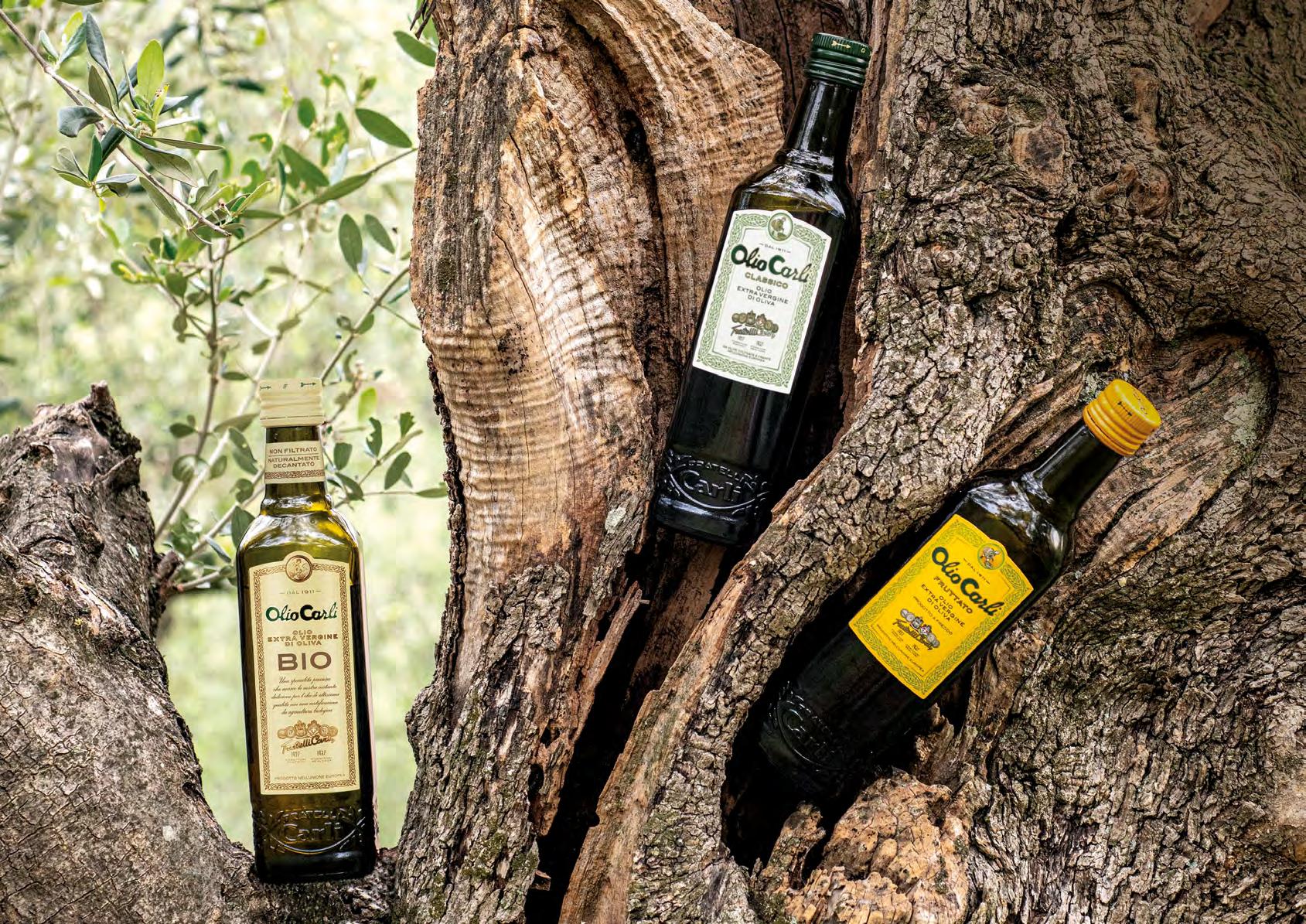

The procedure for materiality analysis is deployed as a starting point for reporting on sustainability as transparently, clearly and effectively as possible.
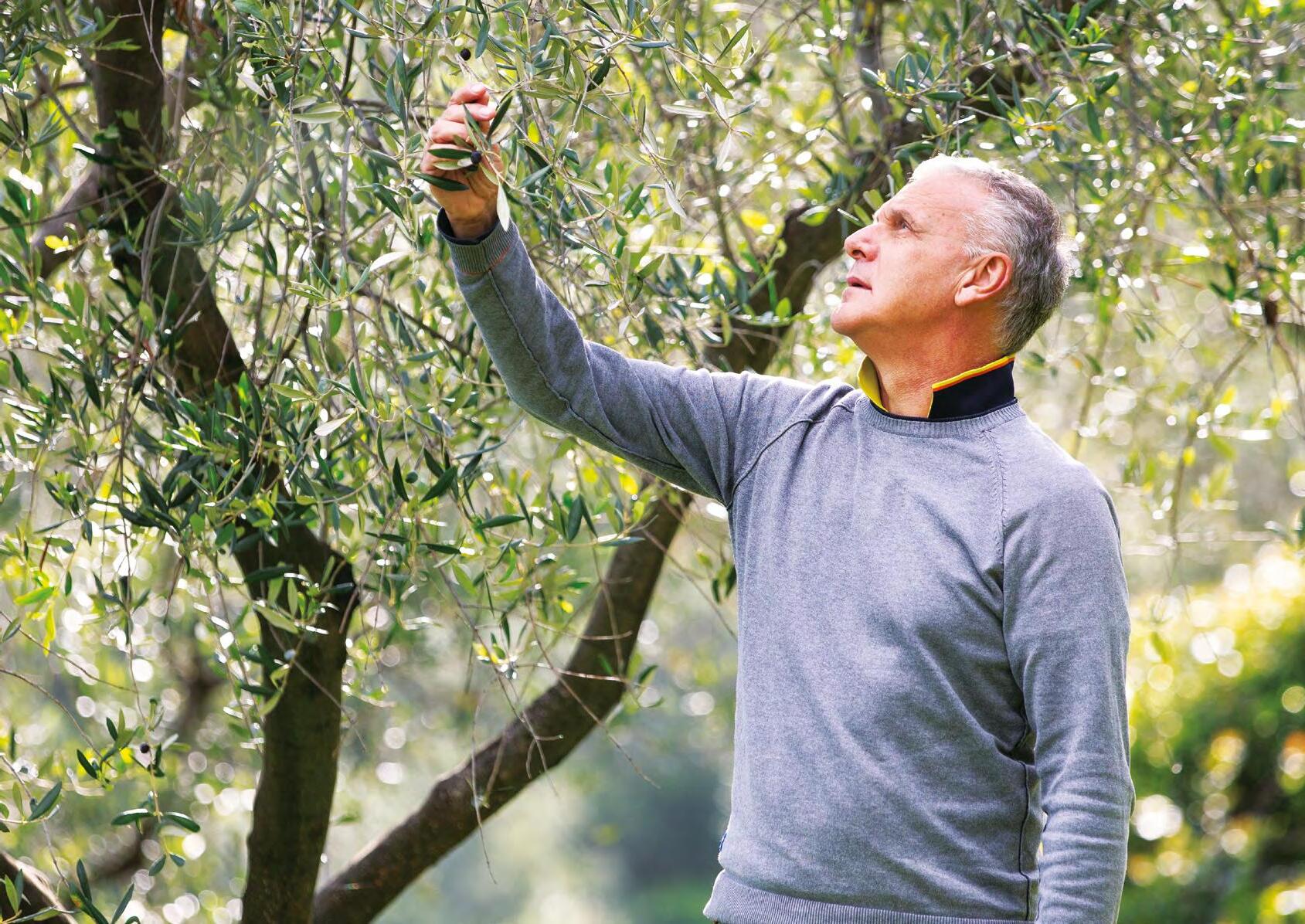
In 2023, Fratelli Carli conducted a materiality assessment as a first step to identifying the most significant economic, environmental and social sustainability issues for the company. Based on the company’s situation, the same issues have been considered valid also for 2024.
The analysis was carried out using the Global Reporting Initiative Standards (GRI 2021) methodology.
This methodological approach is based on the concept of impact, defined as the effect an organization has (actual impact) or could have (potential impact) on the economy, environment, people and human rights. In addition, impacts may be positive if they contribute to the sustainable progress of people, local communities and the environment, or negative if they cause damage to them.
The materiality analysis is therefore used as a starting point for the development of sustainability reporting that is as transparent, clear and effective as possible, taking into account the entire value chain of Fratelli Carli, and thus considering not only the core business activities, but also everything that occurs upstream and downstream from the company.
The methodological approach introduced by the GRI Standards 2021 is based on the concept of impact, defined as the effect an organization has or could have on the economy, environment, people and human rights.
With a view to identifying the significant sustainability issues, a preliminary analysis was conducted, as in previous years, to illustrate the context Fratelli Carli operates in. This analysis regarded a number of sources, both internal and external, aimed at understanding the sustainability trends and comparing them with the performance of companies operating in sectors similar to Fratelli Carli’s business.
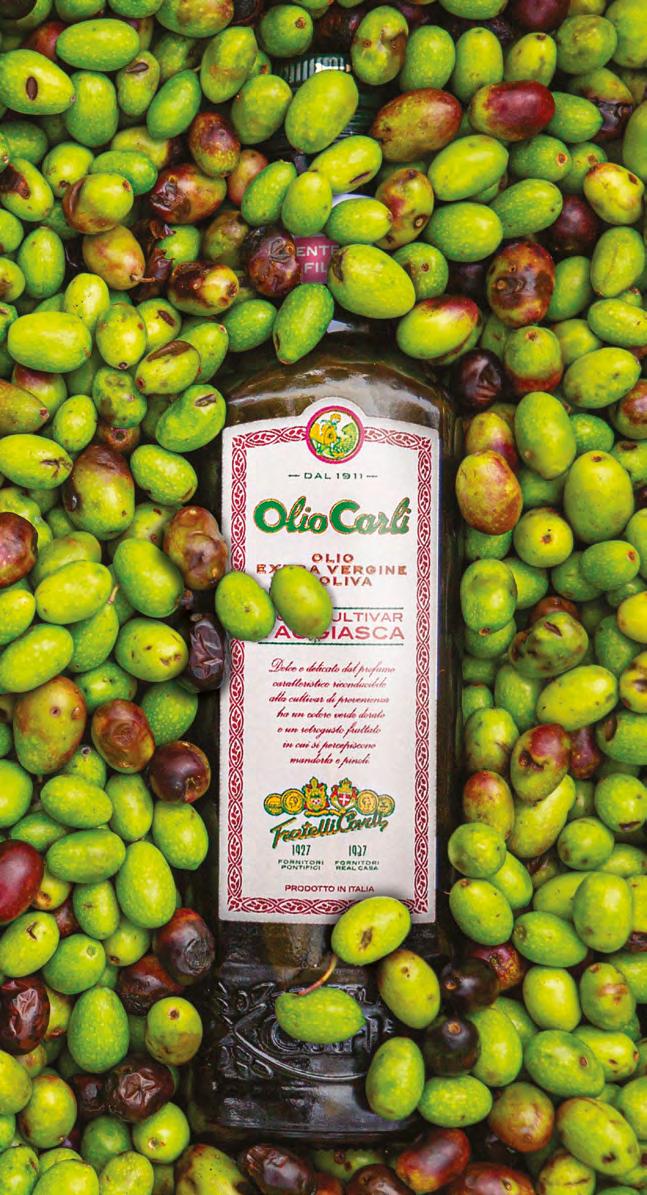
Lastly, a mean analysis was conducted again to identify the external pressures coming from the main communication channels. Based on the information collected and taking account of all the phases that make up the value chain, the impacts Fratelli Carli generates, or could generate, were identified
The impacts were then assessed, taking into consideration:
• The severity of the impact, defined in turn by the scope (how frequently and widely it occurs along the value chain), the scale (i.e. the severity of the impact that occurs), and the irremediable nature (the possibility of limiting the damage caused and restoring the situation prior to the occurrence of the impact),
• and the likelihood of it happening.
The prioritization of the impacts using the methodology described here above therefore made it possible to identify the impacts that are most significant and therefore worthy of attention: the analysis confirmed the issues that are the focal points of the company’s actions
EMPLOYEES’ SAFETY AND RIGHTS
Damage to the health and safety of workers caused by failure to comply with regulatory obligations
Discrimination and breaches of human rights due to inadequate safeguarding practices.
PERSONAL WELL-BEING AND DEVELOPMENT
Development of employees’ skills through training activities
DIVERSITY AND EQUAL OPPORTUNITIES
Failure to respect diversity and ensure equal opportunities due to inadequate D&I practices
CUSTOMER SATISFACTION AND SAFETY
Safeguarding customer satisfaction levels with a dedicated assistance service
Protecting customers through transparent communication
FOOD SAFETY
Protecting customers by developing healthy, wholesome products
PRODUCT QUALITY AND EXCELLENCE
Development and production of quality products thanks to the use of excellent raw materials
SUSTAINABLE MATERIALS AND PRODUCT ECO-DESIGN
Development of products with sustainable packaging
RESPONSIBLE SUPPLY CHAIN MANAGEMENT
Development of a network of trusted suppliers, by monitoring and controlling the supply chain
ENHANCING LOCAL COMMUNITIES
Creation of economic and cultural value for local communities
Energy
CLIMATE ACTION
Contribution to climate change due to greenhouse gas emissions
REDUCING THE IMPACTS OF PRODUCTION
Damage caused to the environment by incorrect disposal of waste produced
Impoverishment of water resources due to inefficient use of sources of water
Reducing waste
Damage to biodiversity
ENCOURAGING HEALTHY LIFESTYLES BY PROMOTING THE MEDITERRANEAN DIET
Promoting a healthy lifestyle by developing recipes belonging to the Italian tradition
Ethical
ETHICAL BUSINESS CONDUCT
Consequences of unfair business practices on the social and economic system
SAFEGUARDING PRIVACY
Breach of privacy caused by inadequate IT control systems
The table summarizes the material issues and the impacts associated with them. In addition, a brief description is provided for each impact.
EMPLOYEES’ SAFETY AND RIGHTS
Damage to the health and safety of workers caused by failure to comply with regulatory obligations
Discrimination and breaches of human rights due to inadequate safeguarding practices
Negative Potential
Description: damage to the health and safety of workers caused by failure to comply with regulatory obligations.
Countermeasures adopted: Fratelli Carli has always implemented measures for the management and safeguarding of workers’ health and safety. The company has also implemented an Integrated Environmental and Occupational Health and Safety Management System for even closer control over this question3
Description: Failure to protect and safeguard human rights in direct and indirect activities could lead to cases of discrimination among employees and along the supply chain.
Countermeasures adopted: Fratelli Carli undertakes to comply with international measures regarding human rights and discrimination3
PERSONAL WELL-BEING AND DEVELOPMENT
Development of employees’ skills through training activities
DIVERSITY AND EQUAL OPPORTUNITIES
Failure to respect diversity and ensure equal opportunities due to inadequate D&I practices
Negative Potential
Description: to guarantee employees’ professional growth, it is essential to promote the development of specific skills, offering the necessary resources and training. Fratelli Carli provides valuable, customized training for its employees.
Description: the absence of practices for the protection of diversity and the promotion of inclusion among employees could have a negative impact on respect for human rights, on well-being in the company and on the ability to attract and retain talent.
Countermeasures adopted: respect for diversity and guaranteeing equal opportunities is one of the founding principles of Fratelli Carli. The company undertakes to guarantee gender equality and an inclusive workplace that fully respects human rights3.
TYPE OF
CUSTOMER SATISFACTION AND SAFETY
Safeguarding customer satisfaction levels with a dedicated assistance service
DESCRIPTION OF IMPACT AND COUNTERMEASURES ADOPTED
Description: customer satisfaction is one of the main objectives of Fratelli Carli. The high quality of the services offered, together with the various channels provided for customers to interact with the company, offer a brand experience able to satisfy all kinds of needs.
FOOD SAFETY
Materials and products
PRODUCT QUALITY AND EXCELLENCE
Protecting consumers by developing healthy, wholesome products
Development and production of quality products thanks to the use of excellent raw materials
SUSTAINABILITY OF MATERIALS AND PRODUCT ECO-DESIGN
Development of products with sustainable packaging
Description: Fratelli Carli prioritizes the protection of its customers’ health and safety, by constantly and carefully monitoring aspects of product safety and quality.
Description: Fratelli Carli uses only the finest-quality raw materials for its products. Control over the entire supply chain and a lasting, personal relationship with suppliers allows for a careful selection of ingredients.
Description: Fratelli Carli undertakes to use increasingly biodegradable, renewable and recyclable packaging.
RESPONSIBLE SUPPLY CHAIN MANAGEMENT
Supply chain
Development of a network of trusted suppliers, by monitoring and controlling the supply chain
ENHANCING LOCAL COMMUNITIES
Creation of economic and cultural value for local communities
Description: the company has always involved its suppliers in its pathway toward Responsible Progress, also by means of the Sustainability Codes created along with the various Districts in the supply chain, to offer increasingly sustainable products right along the value chain.
Description: Fratelli Carli provides direct and indirect support to the communities and the areas it operates in.
CLIMATE ACTION
Contribution to climate change due to greenhouse gas emissions
TYPE OF IMPACT
DESCRIPTION OF IMPACT AND COUNTERMEASURES ADOPTED
Description: the activities carried out by Fratelli Carli and in its value chain generate CO2 emissions.
Countermeasures adopted: Fratelli Carli undertakes to use energy from renewable sources in all its premises, Emporiums and warehouses. In addition, the company has obtained Carbon Neutrality certification for its entire delivery logistics chain in Italy4
REDUCING THE IMPACTS OF PRODUCTION
Impoverishment of water resources due to inefficient use of sources of water
Damage caused to the environment by incorrect disposal of waste produced
Damage to biodiversity
Description: efficient management of transport and the adoption of suitable product conservation practices during the logistics phases enable a reduction of possible waste at the various stages of the value chain.
Description: inefficient use of water resources could lead to a deterioration of the resources, to the detriment of local communities and ecosystems.
Countermeasures adopted: The company monitors its water consumption constantly. Management of water resources is also supervised by Fratelli Carli’s suppliers4
Description: if not disposed of/recovered correctly, waste could cause negative impacts on both ecosystems and local communities.
Countermeasures adopted: waste management and proper waste delivery is governed by dedicated internal procedures, in full compliance with the regulations in force4
Description: the activities involved in the production of Fratelli Carli products, such as farming and fishing, pose a threat to biodiversity as a result of air pollution, deforestation, soil erosion and the conversion of natural ecosystems.
Countermeasures adopted: choosing suppliers carefully and and involving them in the value chain through activities focused on ESG issues helps Fratelli Carli to reduce its impact in this area.
5
Mediterranean culture and tradition
ENCOURAGING HEALTHY LIFESTYLES BY PROMOTING THE MEDITERRANEAN DIET
Promoting a healthy lifestyle by developing recipes belonging to the Italian tradition
TYPE OF IMPACT
DESCRIPTION OF IMPACT AND COUNTERMEASURES ADOPTED
Positive Actual
Description: Fratelli Carli undertakes to promote top-quality traditional Italian food products rooted in the Mediterranean culture and tradition.
ETHICAL BUSINESS CONDUCT
Ethical business conduct
Consequences of unfair business practices on the social and economic system
Negative Potential
Description: the absence of adequate checks along the value chain could expose the company to the risk of unfair business practices.
Countermeasures adopted: Fratelli Carli’s governance system is founded on the principles of accountability, ethics and transparency. This is why the company undertakes to implement a series of actions aimed at ensuring constant contro5
Direct Downstream
SAFEGUARDING PRIVACY
Breach of privacy caused by inadequate IT control systems
Negative Potential
Description: data breach episodes could have negative consequences in terms of the violation of the personal data of employees and consumers.
Countermeasures adopted: management of privacy, security and protection when processing personal data is a priority concern in all fields of corporate activity. Fratelli Carli has ISO 27001 certification regarding existing and prospective customer data5. Upstream Direct Downstream
Fratelli Carli believes that on-going, active dialogue with its stakeholders is fundamental for maintaining relations based on the principles of collaboration, honorability and mutual respect. On a dayto-day basis, the company is committed to reaching out to all stakeholders, seeking to fulfil their expectations and generate value throughout the value chain.
The company has identified its key stakeholders with a desk analysis, from which the following main categories emerged: local communities, trade unions, regulatory bodies, sector and B Corp organizations, suppliers, customers, trade associations and employees. Upstream and downstream from the company, the stakeholders involved are mainly suppliers, farmers, logistics operators, self-employed transporters and customers.
A close relationship with the company’s stakeholders is essential for product quality. Fratelli Carli and its stakeholders have therefore developed a solid, enduring relationship of collaboration and consultation.
Fratelli Carli has always sought stakeholder involvement through a variety of communication channels and modes of engagement.
The following table outlines the key elements:
Employees Presentations and training on sustainability issues
Communications from top management Communications posted on the corporate Intranet notice board
Customers Institutional website
Handling of complaints
Customer Care
Communication campaigns
Visits to the factory and the Museum
Suppliers
Institutional website
Presentations and questionnaires on
sustainability issues
Meetings and joint events regarding the Codes
Regulatory bodies Institutional website
Certifications
Trade unions Contractual negotiations
Participation in meetings/events
Local communities
Institutional website
External communication
Press releases
Collaboration with external bodies
Trade associations
Sector and B-Corp organizations
Institutional website
Participation in meetings/events
Institutional website
Participation in B-Corp community events
Specific initiatives
Every year, the company reports on wealth creation and distribution to its stakeholders. It illustrates the impact of the company’s economic and financial performance on stakeholders and the local community.
The value generated by Fratelli Carli is largely redistributed locally, and mainly within Italy, by creating employment and choosing local suppliers.
In 2024, the economic value directly generated stood at € 124 million, down 10% compared to the previous year. The economic value retained stood at around € 7 million, an increase compared to the previous year.
The following graph shows the economic value distributed (€117.1 million): specifically, 82% is accounted for by operating costs and 15% by personnel costs (salaries and benefits), while the rest is accounted for by investments in the community (sponsorships), and payments to suppliers.
Economic value directly generated in 2024
Economic value distributed (2024)

Viewing matters from the long-term angle means focusing largely on our ideals, above all to modify those aspects that cannot be tackled as short-term issues. We therefore chose not to limit ourselves to an account of our performance in these fields, but embarked instead on a three-year plan to sustain our Pillars of Sustainability and orient them toward specific ends conducive to the common good.
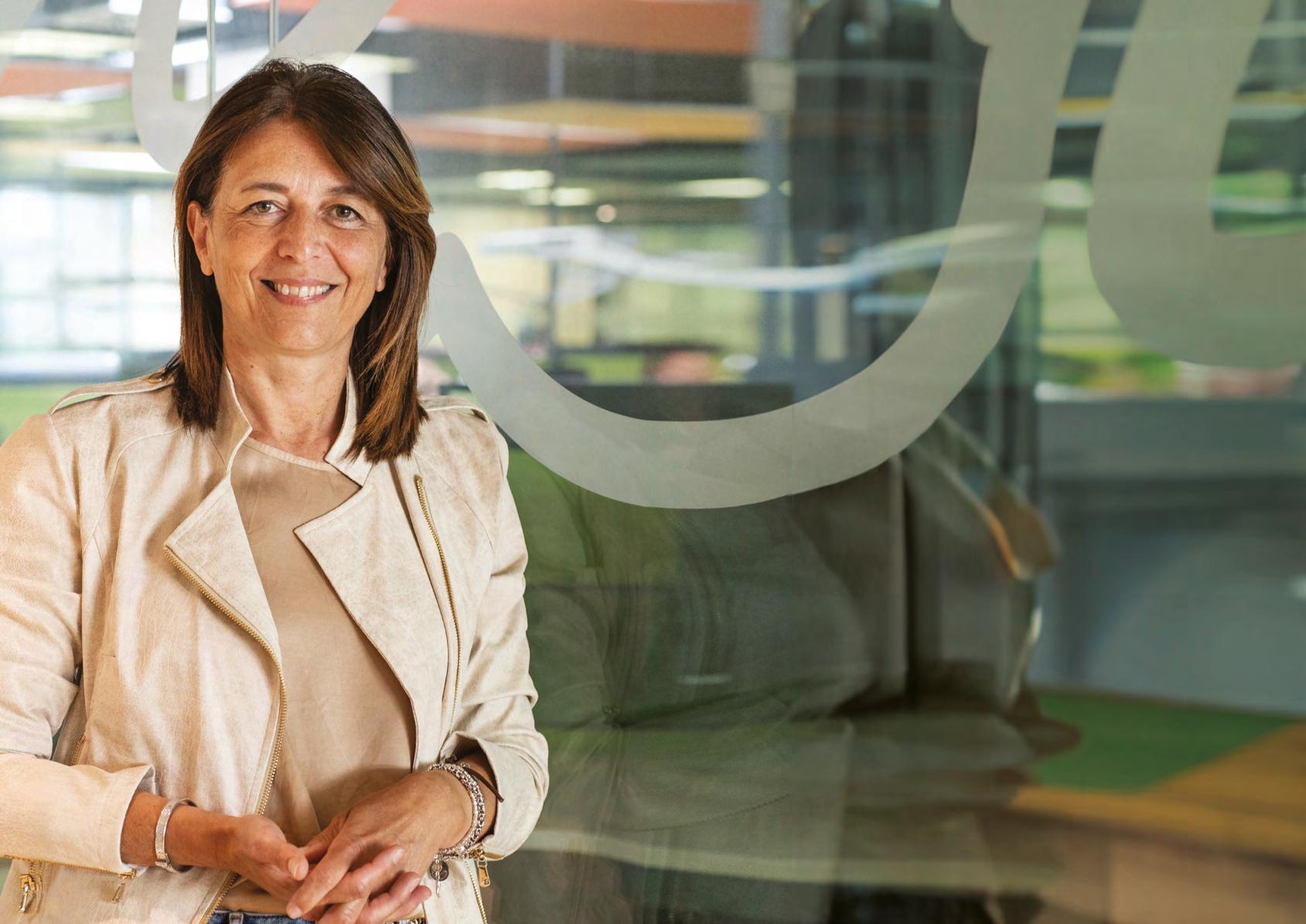
The actions we will be presenting below illustrate the real significance and commitment of Fratelli Carli to pursuing its common good purposes as a Benefit Corporation.
Patrizia
Sacco Sustainability & B Corp Coordinator
For Fratelli Carli, adopting a long-term vision means looking to the future, starting out from our roots and the solid foundations patiently constructed over the years.
For Fratelli Carli, adopting a long-term vision means looking to the future, starting out from our roots and the solid foundations patiently constructed over the years. This is why the company has made an effective commitment to invest
in continually enhancing our business practices. This commitment has allowed us both to become one of the most attentive Italian companies with regard to ESG (Environment, Social, Governance) issues and to receive widespread recognition also within the B Corp community, as we carefully and publicly monitor the progress we are making with regard to all prospective activities.
The strategy developed by Fratelli Carli for responsible business development is implemented through the definition of a medium-term Sustainability Plan, which includes both a report on performance and a plan setting forth the company’s commitment to sustainability over the next three years.
The plan is based on the Pillars of Sustainability, which clearly outline the common good purposes, as well as the impact generated on the material issues and on the pertinent sustainable Development Goals (SDG). A solid, shared work foundation that highlights the importance and the depth of sustainability in every area of our working activity.
The Sustainability Committee has confirmed its effective guiding role in directing the company's efforts regarding ESG issues and in constructing the medium-term Sustainability Plan in a shared and participatory manner.
The actions we will be illustrating below are indicative of the true significance of Fratelli Carli’s efforts to pursue its common good purposes as a Benefit Corporation.
The plan is based on the Pillars of Sustainability, which clearly outline the common good purposes, as well as the impact generated on the material issues and on the pertinent Sustainable Development Goals (SDG).


Health and safety in the workplace
Personal well-being and development
Diversity, inclusion and equal opportunities
Well-being of people in local and global communities
Customer satisfaction and safety

EMPLOYEES
• Endeavor to achieve a stable Injury Frequency Rate (IFR) of less than 8, maintaining a Severity Rate* of zero
• Organize at least one preventive medicine appointment campaign free of charge every year, in collaboration with bodies specializing in healthcare and prevention
• On-going participation in the Local Health Authority’s WHP program, with at least 1 initiative per year designed to promote healthy lifestyles
• 25% increase in the average number of training hours per head by the end of 2027 (baseline: average number of hours provided in 2023)
• 30% increase, by the end of 2027, in the annual training hours dedicated to ESG issues, digital transformation and responsible innovation, paying particular attention to technological ethics, cybersecurity and the social impact of the new solutions
• Implementation of an in-house visual management project for the transparent communication of company information, with the aim of covering at least three corporate as by the end of 2027
* Both rates are calculated using the methodology established in the GRI 403-9 standard:
• the Injury Frequency Rate (IFR) measures the ratio of the number of injuries in the workplace to the total number of hours worked multiplied by 1,000,000
• the Severity Index indicates the ratio of the number of injuries in the workplace with severe consequences (permanent impairment or prolonged absence) to the total number of hours worked multiplied by 1,000,000
These indicators are consistent with the requisites set forth in the ISO 45001:2018 standard.
• Implementation of at least one activity per year to make the common areas in the company (e.g. relaxation areas, areas for meals, areas for informal meetings) more pleasant and functional (monitoring progress in this sense with surveys to gauge satisfaction or in-house focus groups.
• Maintain at least 50% of women out of the total number of staff
• Keep reports through the whistleblowing channel at zero, drafting an annual report on the management of the channel
• Increase the number of women in positions of responsibility by at least 5% by the end of 2027 (baseline 2023)
• Implement at least one awareness-raising or training activity per year on inclusion, discrimination and equal opportunities
Food safety
Sustainable materials and product eco-design


• Confirm our commitment to combating food poverty, by guaranteeing the donation each year of a significant amount –at least 8 tonnes - of products to entities and associations that provide support to individuals and families in difficulty
• Implement at least one solidarity project per year to support children and families, in collaboration with third-sector bodies or local associations
• Provide support each year to at least one project for access to drinking water
• Ensure timely management of requests and comments received by DM and in public posts on social media (Facebook, Google, LinkedIn), reviews on Trustpilot, contact requests via the website or e-mail, responding within 8 working hours in 90% of cases
• Keep punctual, error-free deliveries at a rate of at least 97%
• Keep returns at a yearly rate of less than 2%, as an indicator of post-purchase satisfaction and alignment between expectations and the products received
• Maintain an annual average score of ≥ 4,5/5 on Trustpilot, taking into account all countries served
• Reconfirm ISO 27001 certification annually, as a guarantee of a management system structured to keep information and customers’ personal data safe, in compliance with the strictest international standards COMMUNITY
• Develop 100% of new products with recipes in keeping with the food traditions of Liguria and Italy
• Zero product recalls for failure to comply with food standards or for risks posed to health
• Complete SLCA analysis on 55% of products by the end of 2027
• 100% of Olio Carli recipes analyzed in our in-house laboratory
• Keep the amount of FSC certified cardboard above 97% of the total cardboard used in all the packs of products sold
• Design packs so as to guarantee that at least 90% of the components can be disposed of separately
• Keep the percentage of plastic out of the total materials purchased below 2%
• Create at least 2 packaging redesign projects with low environmental impact by the end of 2027
Responsible supply chain management
Enhancing local communities


• Continue with ESG mapping, encouraging the participation of major suppliers** with the aim of maintaining over 75% coverage in terms of spending
• Keep the percentage of the total sourcing budget spent on local suppliers in Italy at over 70%
• Complete ESG mapping for 100% of new major suppliers within the first year of working with them
• By the end of 2027, increase the percentage of B Corp and/or Benefit Company major suppliers to at least 12% of total spending
** For the purpose of the analysis, major suppliers are considered as those that, overall, account for 80% of the total value of the amount spent by the company for the purchase of goods and services.
• Waste and wastage management
• Water management
• Management of impacts on biodiversity

• Keep the percentage of electrical energy sourced from renewable sources at 100%
• Increase the amount of self-produced renewable electrical energy to 5% by the end of 2027
• Work towards a progressive reduction in the Carbon Intensity rate***, with targeted actions to foster energy efficiency and technological innovation, monitoring progress annually
*** The "Carbon Intensity rate" is calculated as the ratio of tonnes of CO2 equivalent emissions (Scope 1 and 2) to tonnes of products sold (tCO2eq/t products sold) and as the ratio of tonnes of CO2 equivalent emissions (Scope 1 and 2) to millions of turnover (tCO2eq/M euros of turnover).

• 10% increase by the end of 2027 in the proportion of hybrid or electric vehicles out of the total company fleet
• Work towards a progressive reduction in the environmental intensity indexes**** of the Gazzelli production plant – where the food specialties in jars are produced – with particular reference to both waste generation and water consumption, by adopting preventive and process efficiency measures and optimizing waste and water management page 98
• Maintain or increase the annual number of visitors to the Olive Museum
• Consolidate the transmission of content focused on sustainability via e-mail marketing, maintaining or increasing the number of messages sent to customers annually
• Ensure the regular monthly publication of digital content focused on sustainability on all the corporate social media channels active in the various nations served
• Guarantee the participation of the Olive Museum in at least one national cultural event a year on business and social development
**** The "waste intensity index" refers to the ratio of total waste generated (expressed in tonnes) to the physical production of the plant. Specifically, for the Gazzelli plant, the index is calculated using the total number of jars produced.
The "water intensity index" refers to the ratio of total water used (expressed in m³) to the physical production of the plant. Specifically, for the Gazzelli plant, the index is calculated using the total number of jars produced.
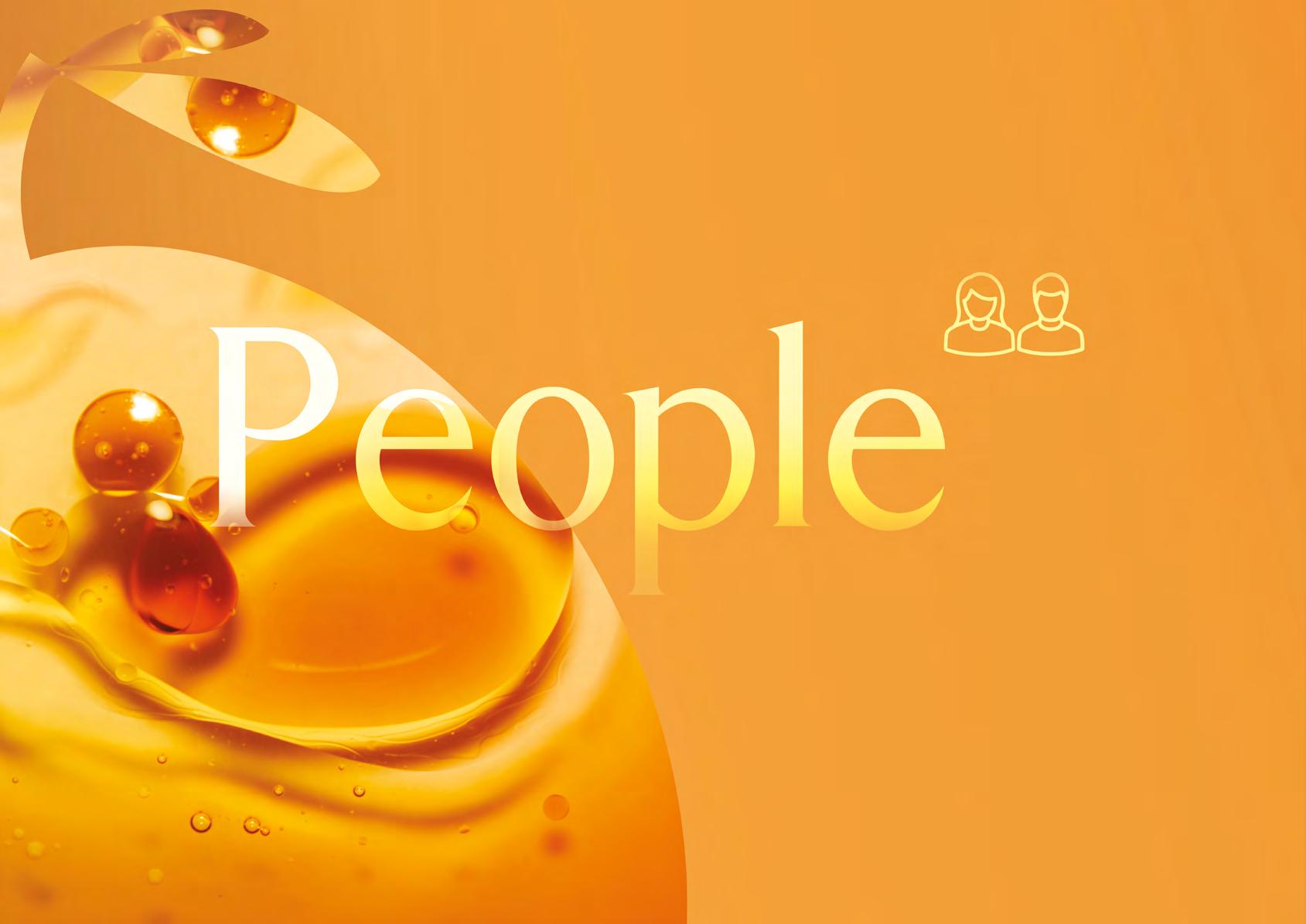
Customers, Employees, Communities

Our main desire is to become a large community of people, customers and employees, with a set of aspirations, motivations and abilities able to create value.
Special people we meet and work with every day, to shape a major shared project designed to contribute to a social model founded on shared wellbeing, respect for rights and participation in community life.
Manager
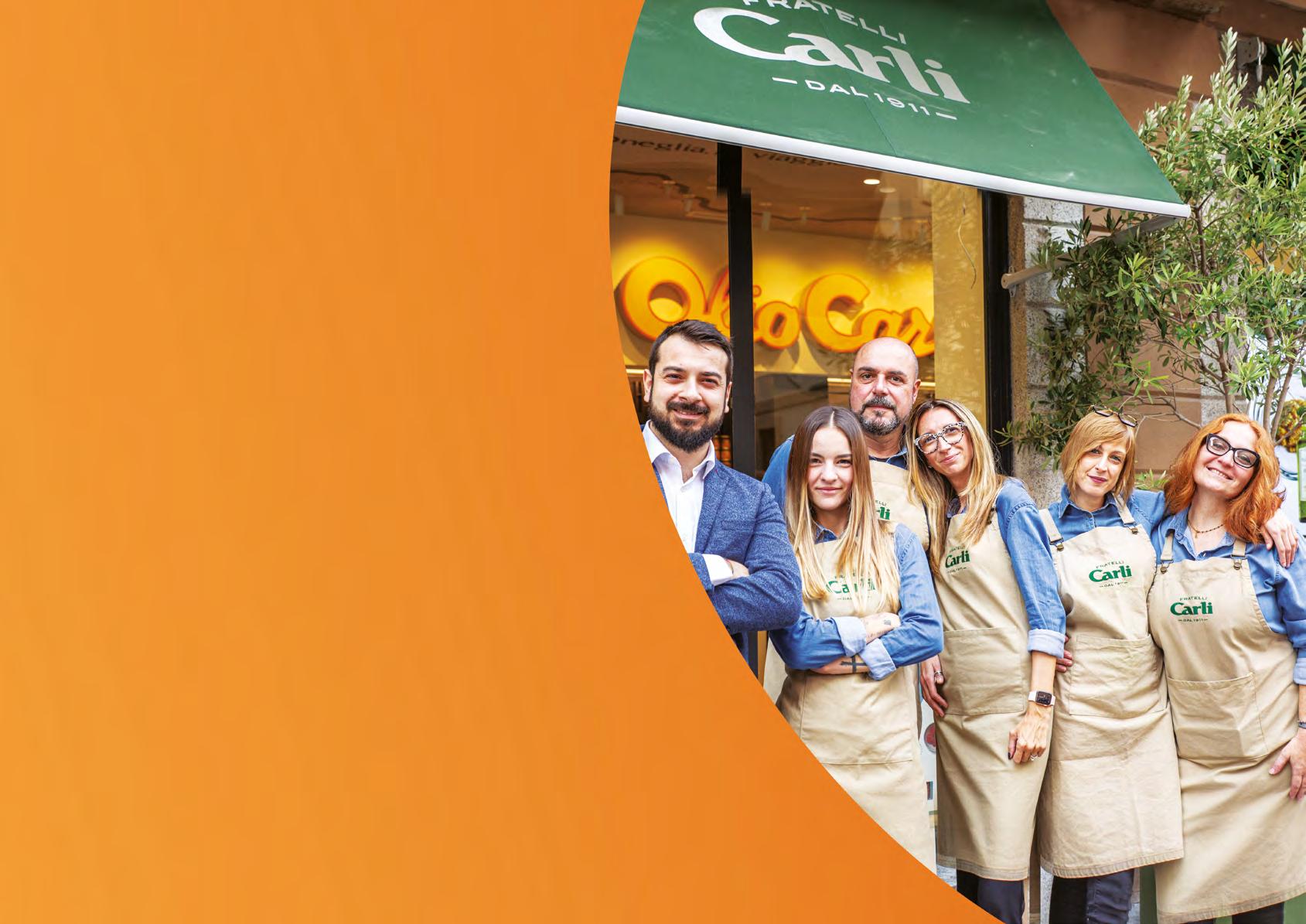
• Endeavor to achieve a stable Injury Frequency Rate (IFR) of less than 8, maintaining a Severity Rate* of zero
• Organize at least one preventive medicine appointment campaign free of charge every year, in collaboration with bodies specializing in healthcare and prevention
• On-going participation in the Local Health Authority’s WHP program, with at least 1 initiative per year designed to promote healthy lifestyles
• 25% increase in the average number of training hours per head by the end of 2027 (baseline: average number of hours provided in 2023)
• 30% increase, by the end of 2027, in the annual training hours dedicated to ESG issues, digital transformation and responsible innovation, paying particular attention to technological ethics, cybersecurity and the social impact of the new solutions
• Implementation of an in-house visual management project for the transparent communication of company information, with the aim of covering at least three corporate areas by the end of 2027
• Implementation of at least one activity per year to make the common areas in the company (e.g. relaxation areas, areas for meals, areas for informal meetings) more pleasant and functional (monitoring progress in this sense with surveys to gauge satisfaction or in-house focus groups.
• Maintain at least 50% of women out of the total number of staff
• Keep reports through the whistleblowing channel at zero, drafting an annual report on the management of the channel
• Increase the number of women in positions of responsibility by at least 5% by the end of 2027 (baseline 2023)
• Implement at least one awareness-raising or training activity per year on inclusion, discrimination and equal opportunities
* Both rates are calculated using the methodology established in the GRI 403-9 standard:
• the Injury Frequency Rate (IFR) measures the ratio of the number of injuries in the workplace to the total number of hours worked multiplied by 1,000,000
• the Severity Index indicates the ratio of the number of injuries in the workplace with severe consequences (permanent impairment or prolonged absence) to the total number of hours worked multiplied by 1,000,000
These indicators are consistent with the requisites set forth in the ISO 45001:2018 standard.
cancer prevention examinations conducted free of charge during the year
See page
page
See page 59
See page 59
cancer prevention examinations conducted free of charge on the company premises since 2016 1,300
Employees with the company for more than 20 years 134 employees at 31.12.2024 355
Training hours dedicated to sustainability
almost Increase in the average number of training hours per head in 2024
Permanent employees who have used our corporate welfare service
• Confirm our commitment to combating food poverty, by guaranteeing the donation each year of a significant amount – at least 8 tonnes – of products to entities and associations that provide support to individuals and families in difficulty
• Implement at least one solidarity project per year to support children and families, in collaboration with third-sector bodies or local associations
• Provide support each year to at least one project for access to drinking water
• Ensure timely management of requests and comments received by DM and in public posts on social media (Facebook, Google, LinkedIn), reviews on Trustpilot, contact requests via the website or e-mail, responding within 8 working hours in 90% of cases
• Keep punctual, error-free deliveries at a rate of at least 97%
• Keep returns at a yearly rate of less than 2%, as an indicator of post-purchase satisfaction and alignment between expectations and the products received
• Maintain an annual average score of ≥ 4.5/5 on Trustpilot, taking into account all countries served
• Reconfirm ISO 27001 certification annually, as a guarantee of a management system structured to keep information and customers’ personal data safe, in compliance with the strictest international standards
8.87
See page 67
1,975,200
Liters of drinking water guaranteed for water projects worldwide Tonnes of products donated
52,260
Responses provided to customers by e-mail, post or chat
Responses provided to customers within 8 hours
Compliance inspection passed on 1 March 2024
1,975,200
Average duration of calls to our call center 3 minutes liters of drinking water guaranteed for water projects worldwide
Hours of training for Emporium and Customer Care staff to meet the needs of our customers as satisfactorily as possible More than 3,500
associations supported with donations of our products More than 30
Responses provided to customers within 8 hours 94.8%
For Fratelli Carli, our employees are the very heart of the company. Our success is built on the enthusiasm and dedication they invest in us daily. Creating a positive, safe and stimulating environment for them takes top priority, and this commitment is reflected in all aspects of corporate life.
The close attention we pay to our people has been acknowledged at national level, with the inclusion of Fratelli Carli, for the third year running, on the list of Italy's Best Employers
In 2024, on this prestigious list, drawn up by Statista in collaboration with Corriere della Sera newspaper and based on the direct opinions of more than 20,000 employees in Italy, Fratelli Carli was ranked third overall on the general list, immediately behind Google, and ranked first in the Food and Beverage sector.
The Italy's Best Employers ranking acknowledges the value of the Fratelli Carli team, made up of individuals with a variety of experience and skills that work together to build on a history stretching back more than a decade.
At the end of 2024, Fratelli Carli directly employed 355 people, down slightly compared to 2023
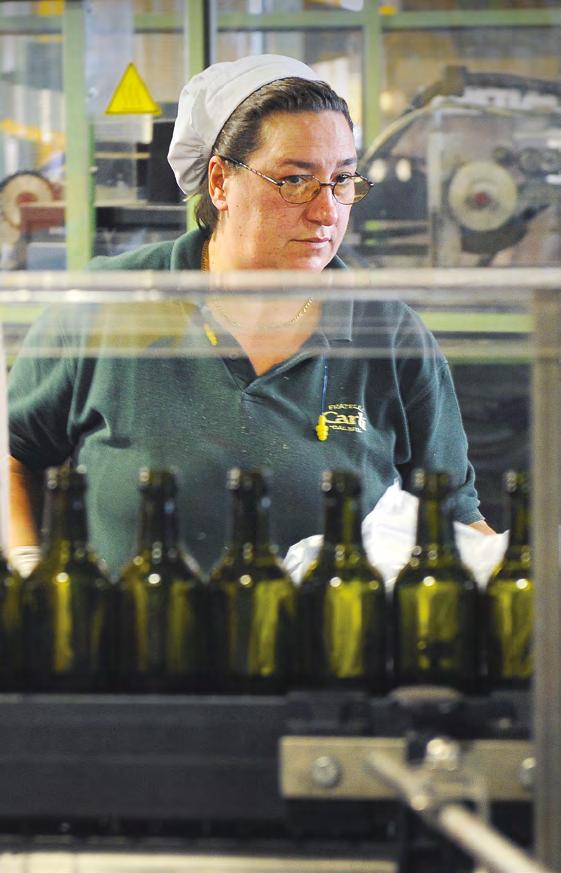
91.54% of employees have an open-ended work contract
An important aspect, indicative of the strong bond we have with our employees, is the level of stability and mutual trust, which goes beyond a simple working relationship. 91.54% of our staff have an openended contract (73% of which are full-time) and 134 – more than 37% of the workforce – have been with Fratelli Carli for more than 20 years. This stability enables us to build solid, valuable skills.
In 2024, women accounted for 51.2% of our employees. This is indicative of the importance Fratelli Carli continues to place on the presence of women in the company.
Non-discrimination, equal opportunities, dignity and inclusion are the guiding principles of our approach to diversity, which seeks to respect everyone and help each individual to fully realize their potential, in a working environment founded on an ability to listen and a desire to embrace diversity.
These efforts allow us to achieve continuous growth while we seek to promote an increasingly inclusive, responsible, evolving culture, reflected in both the company’s organization and its engagement with the community. In the coming years, we will be endeavoring to work even harder on these issues.

For the third consecutive year, Fratelli Carli has topped the Italy's Best Employers ranking for the Food and Beverage sector, placing second overall in the general ranking.
Employees by professional category (2024)
Blue-collar personnel
The Fratelli Carli team is made up mostly of white and blue collar workers, with managers and executives accounting for around 4% of the total. This balance is a reflection of a practical, collaborative approach, in which every member of the team contributes to the success we share.
White-collar personnel 67.89% 37%
Staff turnover remained stable in 2024, in line with previous years. New hires, influenced mainly by seasonal requirements and the opening of new Emporiums, showed a 7.14% drop in the number of women and a 4.95% drop in the number of men compared to the previous year, while terminations were due to the natural expiry of temporary or seasonal contracts.
Turnover (rates of hires and terminations)
of employees have been with the company for more than 20 years
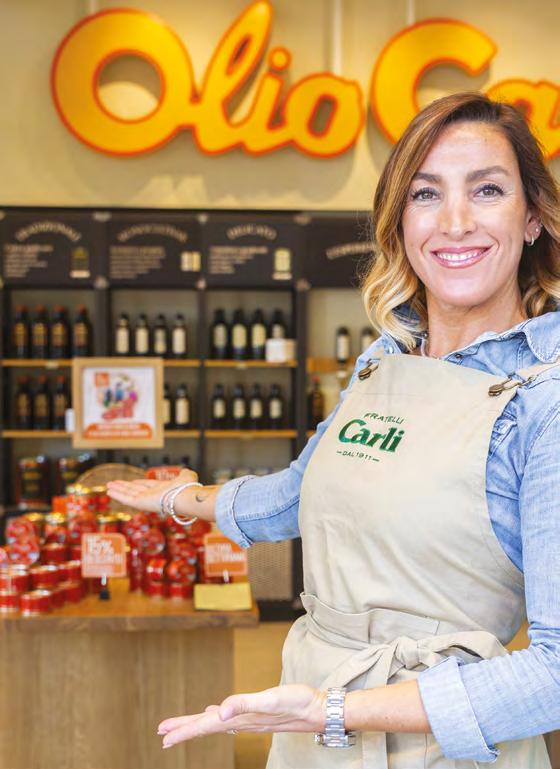
Health and safety: a daily commitment to wellbeing
Guaranteeing the health and safety of our workers is Fratelli Carli’s top priority. The company views the safety and rights of all our employees and workers as something that must be safeguarded with strenuous, constant efforts to ensure the wellbeing of those who contribute to our success every day.
sound occupational health and safety management system
Fratelli Carli guarantees full compliance with the regulatory occupational health and safety requisites, and specifically with Italian Legislative Decree no. 81/08, thanks to a solid, structured, integrated Environmental and Occupational Safety Management System that complies with UNI-INAIL guidelines.
This system, implemented on a voluntary basis, is an essential tool to assess, prevent and reduce risks, and seeks to safeguard the mental and physical wellbeing of everyone who works in the company.
Risk management involves the prompt identification of hazards, regular inspections and consultations with workers. It is conducted by specialized figures within the company or qualified external partners.
In the event of accidents or near misses, structured enquiries are conducted to analyze the causes and identify appropriate preventive measures. The reporting of any incidents is encouraged and suitably protected, guaranteeing confidentiality and without fear of repercussions.
A key role is played by the competent physician, who takes part in the risk assessment process and guarantees the confidentiality of any information that emerges during the regular medical appointments, in observance of the privacy regulations. The medical fitness examinations organized are based on a dedicated health protocol drawn up for the various tasks and designed to prevent risks related to the specific activities performed.
The system is based on rigorous procedures and on-going training that involves all levels of personnel, with specific further technical training and updates for the factory workers. The governance of the system is reinforced by the active presence in the company of the Workers’ Safety Representatives (RLS), who are involved in risk assessment, preventive measures and ongoing consultation.
Also in our dealings with partners and suppliers, the company seeks to promote a responsible approach to health and safety, consistent with our standards and values. The efficacy of this system is reflected in the results effectively obtained: only two injuries occurred in 2024, neither of them severe.
Fratelli Carli’s continual attention to the wellbeing of our employees is demonstrated by the preventive medicine campaign we have been offering free of charge in the workplace since 2016. This popular, welcome initiative reached a total of almost 1,300 medical examinations in 2024
These campaigns are always carried out in collaboration with entities or associations that not only encourage prevention, but also offer practical support for patients. This is our way to do good twice over, both by protecting the health of our workers and by supporting bodies that strive daily to provide care and promote solidarity.
In 2024, these efforts continued with the involvement of the ASL Liguria local health authority, within the framework of the national program “Luoghi di lavoro che promuovono salute” (WHP), and the cancer association LILT Lega Italiana Lotta Tumori – Sanremo Section, which made it possible to carry out or book free cancer screening examinations (mammographies, smear tests, colorectal and hepatitis C screening), and to obtain the LILT 2024 Card, offering easier access to a wide range of preventive medicine services. Fratelli Carli sees this kind of care and attention as a fundamental value and a commitment the company already plans to honor throughout the years to come.
Fratelli Carli is constantly making investments to guarantee safe, comfortable working environments on all our premises, from the factories to the offices. This attention to our workers’ everyday wellbeing is reflected in the care we take to create break areas designed to offer a chance to relax and socialize during the working day. A small but very welcome gesture is the coffee the company provides free of charge during breaks, helping to foster an even more pleasant, friendly environment.
Because we are aware of the importance of a positive working experience for wellbeing, we make sure that the company portal is updated constantly, guaranteeing information and easy access for our employees at all times.
Moving forward, the company is already at work to further improve the working environment and our in-house processes. New spaces for workers are already in the pipeline, and within the framework of the innovation process guided by the OKR6 method, we are planning to introduce visual management tools throughout the company to further improve communication and teamwork.
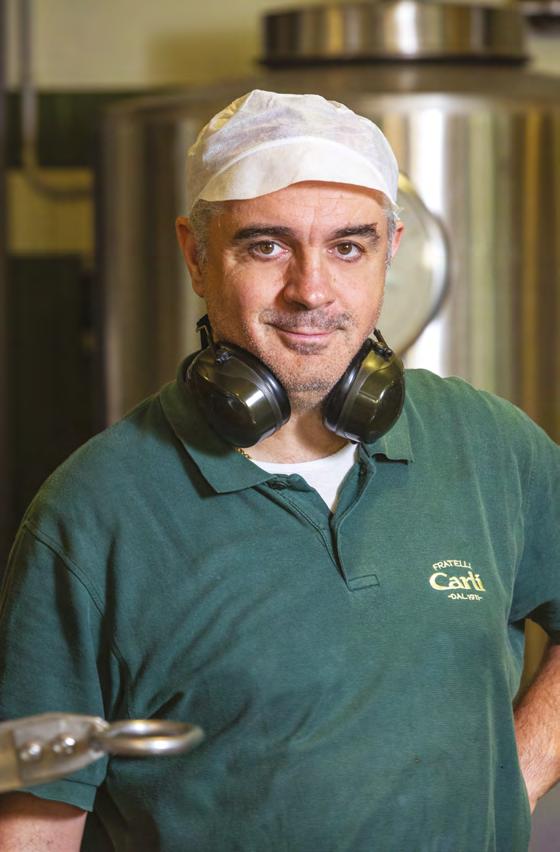
Almost
6 OKR (Objectives and Key Results): a method for managing objectives that helps to clearly define what we want to achieve (Objectives) and how to measure progress (Key Results), aiding alignment and involvement within the organization.
1,300 preventive medicine examinations carried out directly in the workplace since 2016
Attention to the overall wellbeing of individuals must necessarily consider quality of life as a whole. For years now, the company has been focusing its efforts on these issues with the "Liberi di... Welfare" program: a corporate welfare system able to offer a series of services and benefits designed to improve the everyday lives and spending power of our employees, supporting them in various areas of their personal and family life.
2024 marked a further step forward in the development of our corporate welfare system Through a second-level agreement with the labor union representatives, Fratelli Carli decided to offer €1,200 in welfare credit to all our workers for the twoyear period 2024-2025, as an acknowledgement of their contribution to the objectives we have achieved together.
To ensure employees could make the most of this opportunity and that access to the full range of services was as simple as possible, Fratelli Carli has chosen a new primary partner in the sector to guarantee all our workers access to a dedicated platform and a mobile app designed to allow them to manage their welfare credit swiftly, easily and independently, with the opportunity to view the spending categories and the facilities and business where the credit can be used, and to generate vouchers in real time.
This makes it extremely easy and practical to use the credit for all the categories envisaged (reimbursement of expenses for children, travel, wellness centers, shopping vouchers, special deals with medical/sports/ wellness centers)
The commitment we have undertaken and scheduled for the future involves constantly extending the agreements for special deals available locally, to the benefit of both employees and local businesses.
Attention to the overall wellbeing of individuals must necessarily consider quality of life as a whole. For years now, the company has been focusing its efforts on these issues with the "Liberi di... Welfare" program.

Fratelli Carli views on-going training as a key tool for individual and company growth. Investing in our people is essential to develop skills, make the most of talents and ensure each member of the team is able to give their very best, contributing to the excellence the company has always been renowned for
The 6,500 hours of training provided in 2024, continually on the rise compared to previous years, demonstrates this constant commitment. Training regarded a series of fundamental issues, designed both to respond to the company’s needs and to foster individual growth. From safety in the workplace and privacy – two areas to which we have always paid maximum attention – to cyber risk, a question of growing importance to protect the company’s wealth and guarantee the service provided to customers, as well as comprehensive training on products, services and systems.
12.7%
Increase in total training hours in 2024
7 Scrum is an agile working method used to manage complex IT projects. It is based on short, iterative work cycles, known as sprints, on clearly defined roles (such as Product Owner, Scrum Master and development team) and on regular encounters to plan, verify processes and make continuous adjustments.
In addition to these consolidated areas, we are working harder than ever to strengthen competences relating to the digital transformation, paying particularly close attention to technological ethics, cybersecurity and the social impact of the new solutions adopted.
These efforts are complemented by time invested in developing broader skills such as the ability to communicate effectively, work as a team or responsibly manage individual roles and responsibilities.
The general objective is twofold: on the one hand, to broaden and deepen personal skills, and on the other, to continue to offer customers prime-quality products and services that keep apace with the times while maintaining the rich tradition and values of Fratelli Carli. These developments actively involved all company areas and functions, from the IT systems that have continued to perfect the use of the Scrum7 method and have approached the new AI-related issues, to the Operations, Marketing and Product Development Management, as well as Sales and Marketing, Quality and Human Resources Management.
of training provided in 2024 6,500 hours 1,600 of which in Customer Care
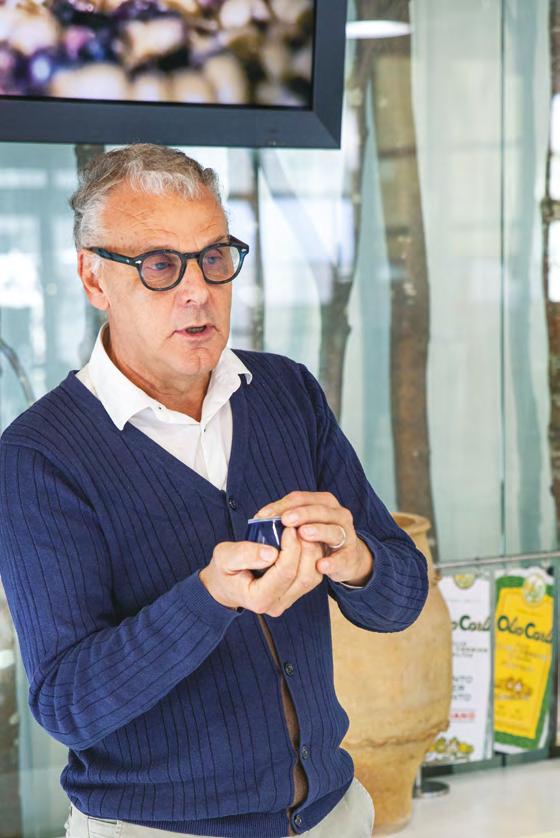
We have always dedicated particular attention to Customer Care training. In 2024, almost 1,600 hours of training were provided in this area, aimed at both fostering personal growth and constantly improving the service offered to consumers. The Customer Care team, which is the face of the company for many of our customers, has been constantly developing their knowledge of new products and offers, as well as of the operating and logistics systems that are crucial to providing immediate, precise and prompt responses and nurturing the relationship of trust that allows us to guarantee a positive experience for customers.
A special focus has been devoted to training on sustainability issues. This is a hallmark of Fratelli Carli, and is evident in all aspects of our corporate strategy.
In 2024, more than 350 hours of training were provided on this issue to all workers, with the aim of actively engaging all our personnel and sharing the importance of the five sustainability pillars.
What emotions and feelings do you associate with the company’s sustainability efforts?*

* Question taken from the satisfaction questionnaire submitted to participants in the sustainability training provided in the company in 2024.
For all departments directly in contact with the public, additional training was provided, organized in the form of a collective workshop and using the "Collaborative Poster8" method. Participants worked in a group on a creative, visual representation of how they experience and interpret the company’s commitment to sustainability.
The workshop yielded some excellent, practical results, strengthening the sense of belonging to a shared endeavour. At the end of the various training sessions, a brief questionnaire was provided to gauge the level of engagement perceived by participants and to collect useful suggestions for future activities.
8 Collaborative poster: a visual tool used in training or teambuilding, which allows a number of people to provide a structured contribution to sharing ideas, reflections or solutions regarding a common theme, encouraging active participation and the sharing of viewpoints.
Fratelli Carli is deeply linked to the local areas we operate in and the people who live there. This relationship is nurtured through an on-going commitment in the form of activities and collaborations designed to support projects of social significance and create shared value.
The company believes in dialogue and participation, working together with local entities to make an active contribution to the wellbeing and growth of the areas it operates in.
During 2024, this commitment included the donation of around nine tonnes of food products to more than 30 associations active in a number of areas, to support solidarity projects and activities aimed at the most fragile individuals in the community.
One of the various ways in which Fratelli Carli’s efforts extend beyond the company and beyond Italy is the conviction with which we continue to collaborate with WAMI (Water with a Mission). For both the reception rooms and lunches in the Emporiums in Imperia, Fratelli Carli has chosen to purchase and use WAMI water, a special water produced by a B Corp that builds aqueducts in areas where there are none
Each WAMI bottle makes a real contribution, in the form of 100 liters of water taken to communities in need of this essential resource in various geographical areas worldwide. A QR code on the label of each bottle allows the consumer to find out more about the community supported and the countries involved.
This partnership, which has been in place for a number of years now, has allowed Fratelli Carli to help provide 1,975,200 liters of drinking water for water projects around the world
1,975,200
Liters of drinking water guaranteed for water projects worldwide
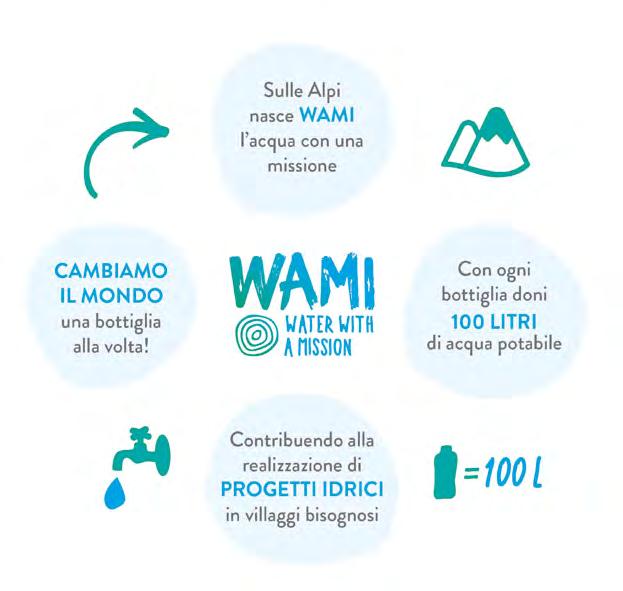
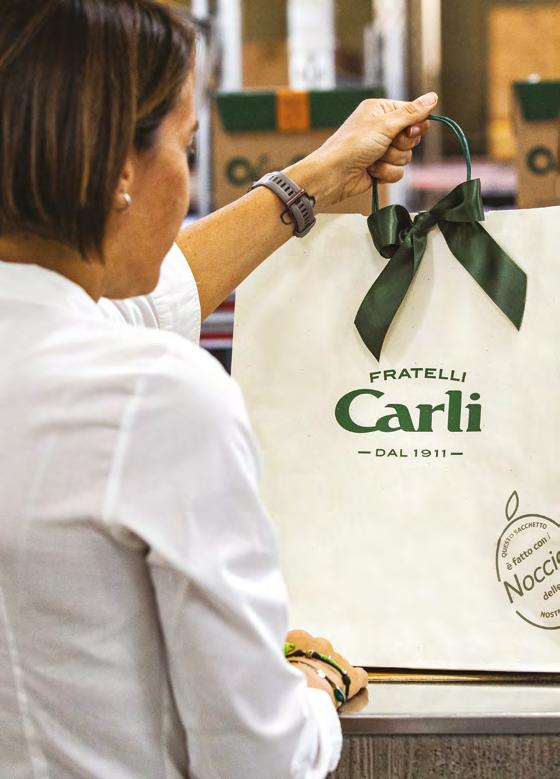
30 tonnes of food products donated to 9 Almost
1.975.200 litri di acqua potabile portata a progetti idrici nel mondo associations operating in various areas
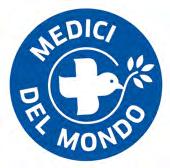
Every year, the Christmas gifts chosen for the children of Fratelli Carli employees not only bring joy to the children who open them; they’re also a gesture of solidarity in support of associations that seek to help those most in need, especially children.
This Christmas, Fratelli Carli has chosen to lend particular support to Medici del Mondo, an international medical and humanitarian organization that for over 40 years has been fighting to guarantee access to healthcare for the most vulnerable, marginalized populations.
This collaboration has focused on concrete support for the Medici del Mondo project in Ventimiglia, a town near the border just a few kilometers from the company’s headquarters, where the association works to offer care, comfort and hope to particularly vulnerable migrants. This commitment is part of Fratelli Carli’s wider efforts to support solidarity projects and activities every year to support children and families, in collaboration with third-sector bodies or local associations.
During 2024, Fratelli Carli continued to support the "Pesto is good" project of the Flying Angels Foundation in collaboration with Genoa Airport and ASCOM. Flying Angels is the only non-profit organization in the world specializing in the air transport of severely sick children to hospitals where they can receive urgent, life-saving treatment, and of health professionals travelling to missions in areas where healthcare is lacking.
"Pesto is good" turns the tradition of the people of Liguria – taking a jar of pesto on their travels – into an act of solidarity: the jars of pesto with the sticker of the project can be brought on board in hand luggage, and at the same time help fund the humanitarian flights of the Flying Angels.
By taking part in this project, Fratelli Carli has helped children in need of specialist care to be “flown with love”.
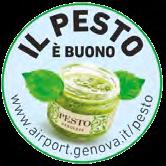
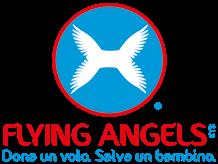
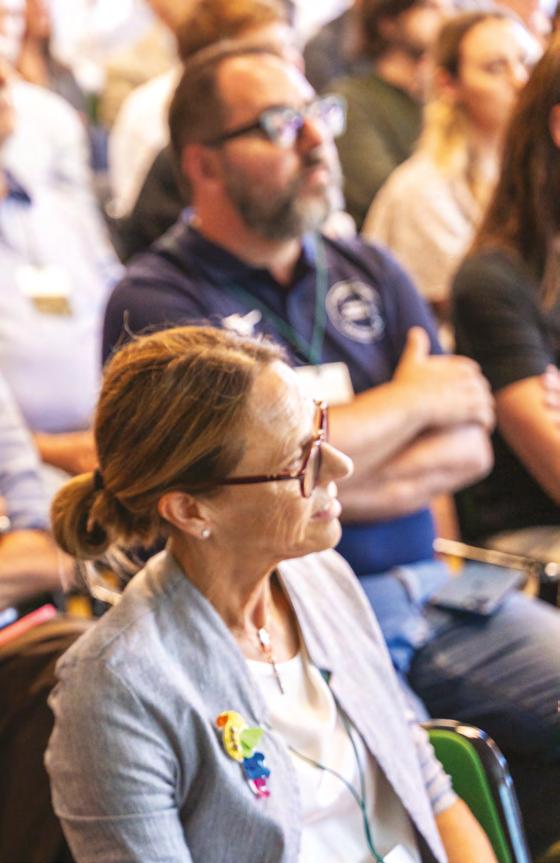
Fratelli Carli has made its company premises available to host free screening examinations and health consults open to everyone in the local area.
In continuity with the efforts made to safeguard the health of our employees, in March 2024, Fratelli Carli opened the doors of its Imperia premises to the local community for an important prevention campaign. In collaboration with the ASL 1 Imperia local health authority, within the framework of the project "Luoghi di lavoro che promuovono salute" (WHP), the company hosted free screening examinations and health consults, open to everyone in the area. During these days dedicated to prevention, it was possible to book hepatitis C, HIV and cancer screening examinations, or have them carried out there and then, as well as to receive essential information for the prevention of chronic conditions.
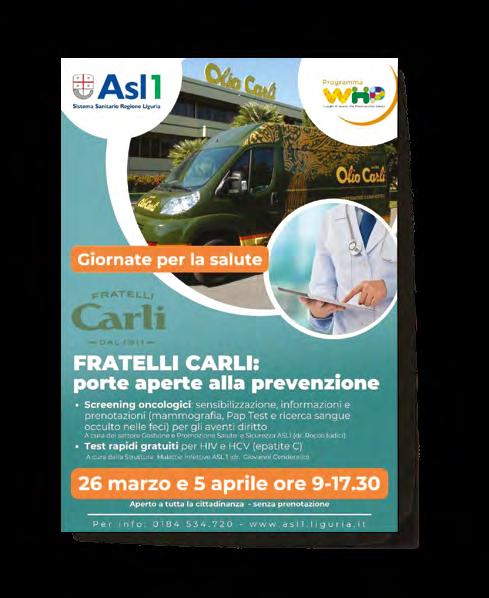

This allowed numerous citizens of Imperia to have free access to essential healthcare services directly on the company premises, making prevention simpler and more accessible for the local community.
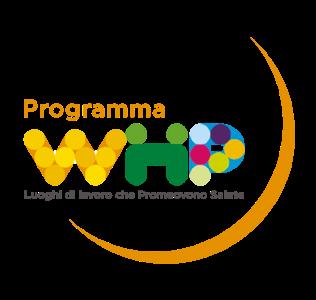

Driven by
the
aspiration to form a large community of people who identify, listen to and care about each other’s needs, Fratelli Carli undertakes to maintain daily, direct contact with our customers.
This is achieved thanks to our in-house Customer Care service, always on hand to collect orders and requests, through the 21 Emporiums and the home delivery model the company has always been renowned for. This direct approach allows Fratelli Carli to establish a close relationship with our customers and pay constant attention to their needs and desires, stepping into their homes just like an old friend might.
A customized, multi-channel shopping experience that listens to the customer
Fratelli Carli’s outstanding service is the result of constant efforts and innovation designed to offer a simple, pleasant shopping experience able to meet everyone’s needs. Whether customers place their orders by phone or through the website, or prefer to browse in one of our Emporiums, we always seek to offer a prompt, attentive, quality service
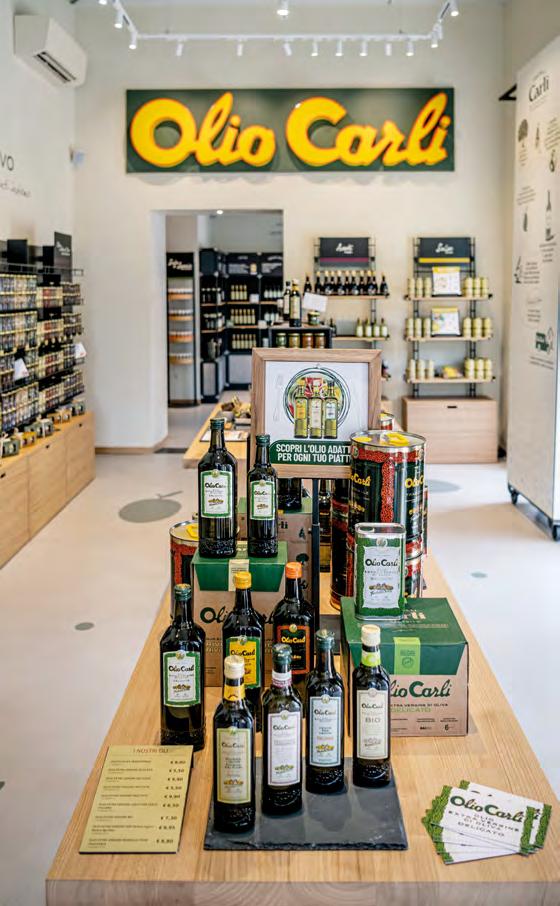
The 50 people who make up our Customer Care service are always on hand to collect orders and respond to all kinds of requests: from information on products to customized assistance for deliveries, as well as offering suggestions and opinions, with a warm, competent approach that makes every customer feel welcome and listened to. This is demonstrated by the average duration of calls, lasting around 3 minutes, and by the 52,200 + responses provided to customers
Particular attention is paid to the timely handling of requests and comments received via e-mail and via the company’s websites and digital and social media channels, such as Facebook, Google and LinkedIn, or Trustpilot reviews, for which the company has set a target of guaranteeing a reply within 8 working hours in 90% of cases. In 2024, an important result was achieved in this sense, with 94.8% of requests dealt with within this timeframe.
The online experience is delivered through seven dedicated websites, one for each of the nations served, all with an innovative design and based on totally responsive technology.
Our Customer Care:
50 people
52,260 responses provided to customers
A further indication of both service and product quality is the very low percentage of returns (just 1.46% of the total number of packs sold in 2024), and of deliveries that do not meet the highest standards of punctuality and reliability, accounting for just 1.1% of those carried out in Italy and the other European nations served.
These intuitive portals, accessible from all devices, are an essential point of contact for customers to browse and purchase independently, offering the same care and attention as all the other channels of contact with the company. The websites are a key element in the digital transformation process undertaken by Fratelli Carli, with the aim of offering an increasing complete brand experience able to meet customers’ expectations. With this in mind, we are working constantly to improve and optimize them.
For those who prefer a more direct contact with us, the Emporiums offer a warm welcome and the chance to discover and sample our products, with the help of our trained, skilled staff, who will be pleased to guide you through the world of Fratelli Carli flavours.
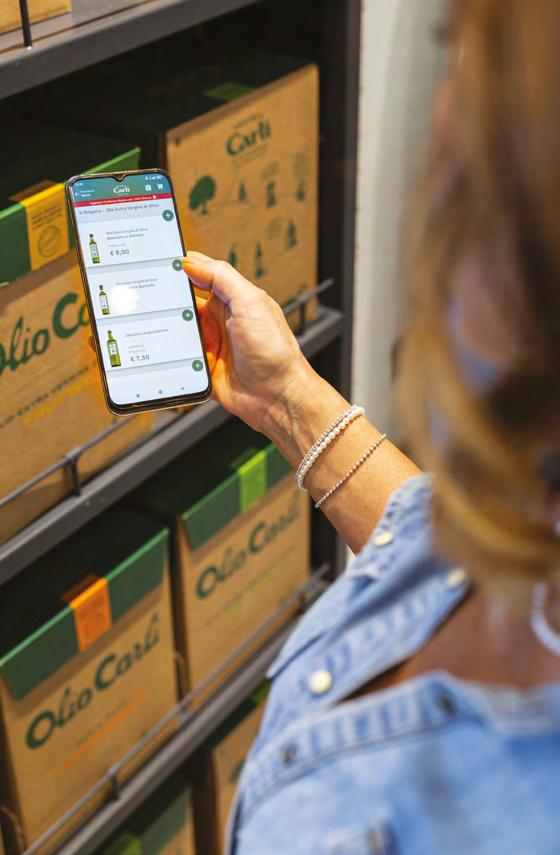
94.8%
of customer requests managed within the established timeframe
More than 3,500
of training for Emporium and Customer Care staff
This constant commitment to outstanding service drives the action we take to focus strongly on people, our relationships with customers and innovation.
In 2024, we provided more than 3,500 hours of training for our Emporium and Customer Care staff, with a twofold objective: to constantly update their knowledge of sales policies and products, and to develop new, broader skills, to ensure every staff member is better trained and more versatile, so that they can effectively manage a variety of activities and provide increasingly complete responses to the needs of our consumers.
This attention to training is complemented by the continual improvements made to digital tools, with the introduction of a variety of increasingly simple payment methods, as well as a process for the activation of a new gateway designed to boost efficiency further, also in terms of security.
In addition, 2024 saw the release of an integrated system to provide accurate estimates of each individual delivery in Italy; this service is scheduled for extension to all the other countries served during 2025.
An important acknowledgement of our efforts is the average score of 4.8 out of 5 recorded on Trustpilot, an indicator of customer trust and satisfaction. In addition, Fratelli Carli appears on the Italy’s Best Customer Service list for 2024-2025, in accordance with the research conducted by Statista and Corriere della Sera, based on a sample of more than 15,000 customers interviewed. This is a demonstration of a customer service able not only to resolve issues, but to listen to and assist consumers and create lasting relationships.
Given the high levels of customer retention, Fratelli Carli engages with both “traditional” consumers who like to receive a paper price list and more “modern”, digital customers. the company combines the sending of price lists by post with a targeted digital communication plan. This multi-channel approach seeks to extend the options for contacting the company, fostering more direct, constant engagement and directing customers towards the websites, where they can find out more about every aspect of the Fratelli Carli experience.
An innovative process of development is currently underway at Fratelli Carli with regard to communication and digital marketing, aimed at optimizing and automating processes and improving the efficiency and efficacy of interactions with customers. This project includes automated management of digital communications at the various touchpoints, customization of offers based on real-time customer browsing data, and in-depth performance analysis to boost customer satisfaction.
An
innovative process of development is currently underway at Fratelli Carli with regard to communication and digital marketing, aimed at optimizing and automating processes and improving the efficacy of interactions with customers.
This project is designed not only to make inhouse processes smoother, but also to clearly demonstrate how important our human resources are to us at Fratelli Carli, with an intense, toplevel training program to enhance and sharpen the skills of our digital team with increasingly stimulating, creative tasks
On the customers’ side, it seeks to optimize contacts based on the effective interests and requirements indicated online. In addition, the greater precision offered by the new system with regard to the use of paper price lists will allow for a further reduction in the number sent out, which will help us reduce waste.
These communication efforts reflect the constant attention Fratelli Carli pays to our customers, with whom we seek to maintain an open, constructive dialogue through all the channels available.
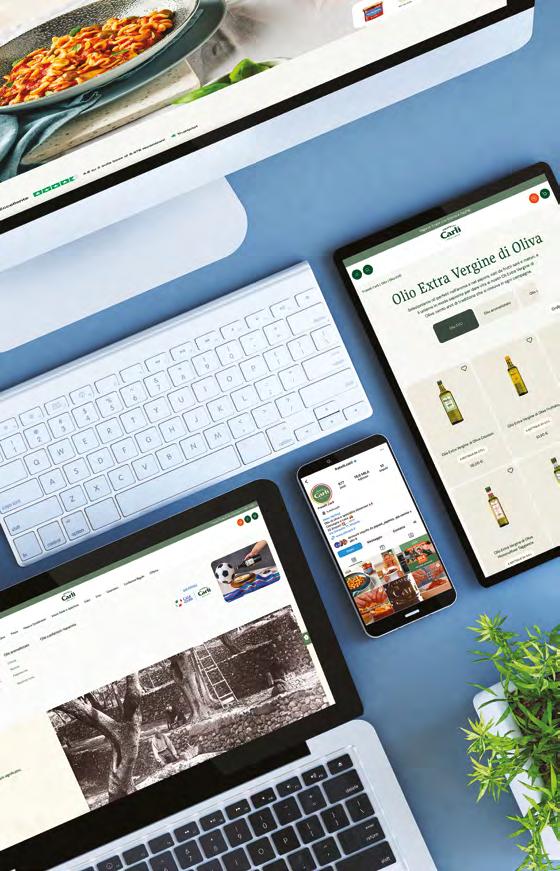
4.8 out of 5
average score on Trustpilot across all the nations served

We value customer trust very highly. This is why safeguarding privacy and guaranteeing the security of personal data takes top priority for Fratelli Carli. This commitment is confirmed by ISO 27001 certification, in compliance with an international standard that establishes the requisites for an information security management system (SGSI). We have held this certification since 2005, and it is subject to verification yearly. Compliance was once again confirmed during the 2024 inspection, guaranteeing a structured, constantly updated system.
certification confirming the safeguarding of privacy and the security of customers’ personal data
The company also strictly complies with the GDPR, and has embarked on a process to ensure compliance with the European directive NIS2, which introduces new obligations to further reinforce the cybersecurity and resilience of digital infrastructures in essential sectors. The attention the company devotes to these aspects is evidenced by the Netcomm seal, which guarantees consumers a secure, transparent online shopping experience that complies with the highest quality standards.
This commitment to transparency and integrity also embraces the company’s Whistleblowing system, in place since 2023: a secure, reserved, accessible channel for the reporting of possible breaches, unlawful activity or unethical behaviour. The channel is an integral part of the system of ethics, compliance and the protection of rights, and contributes to the observance of the principle of zero tolerance for corruption.
At the same time, the system is designed to protect the people who work at Fratelli Carli, by offering a confidential opportunity to report situations liable to negatively impact health, safety and wellbeing in the workplace, reinforcing the company safeguards provided for by the Health and Safety Management System.
No incidents were reported through the dedicated portal during 2024, confirming the efficacy of the preventive measures adopted and the positive climate in the workplace. With a view to further strengthening the culture of transparency, respect and shared responsibility, Fratelli Carli undertakes to guarantee constant monitoring and continual improvement of the whistleblowing system, with the drafting of an annual report on the management and processing of any reports received.


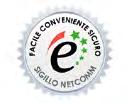


Prime quality has always been the Fratelli Carli way!

We have embarked on a virtuous process that leads us to analyze and enhance sustainability at each stage of the life cycle of our products: from the cultivation of the raw materials through to production, packaging and end consumption. This is the only way we can offer the very best to our customers, now and in the future.
Marta Gorlero Marketing and Food Product Development Manager
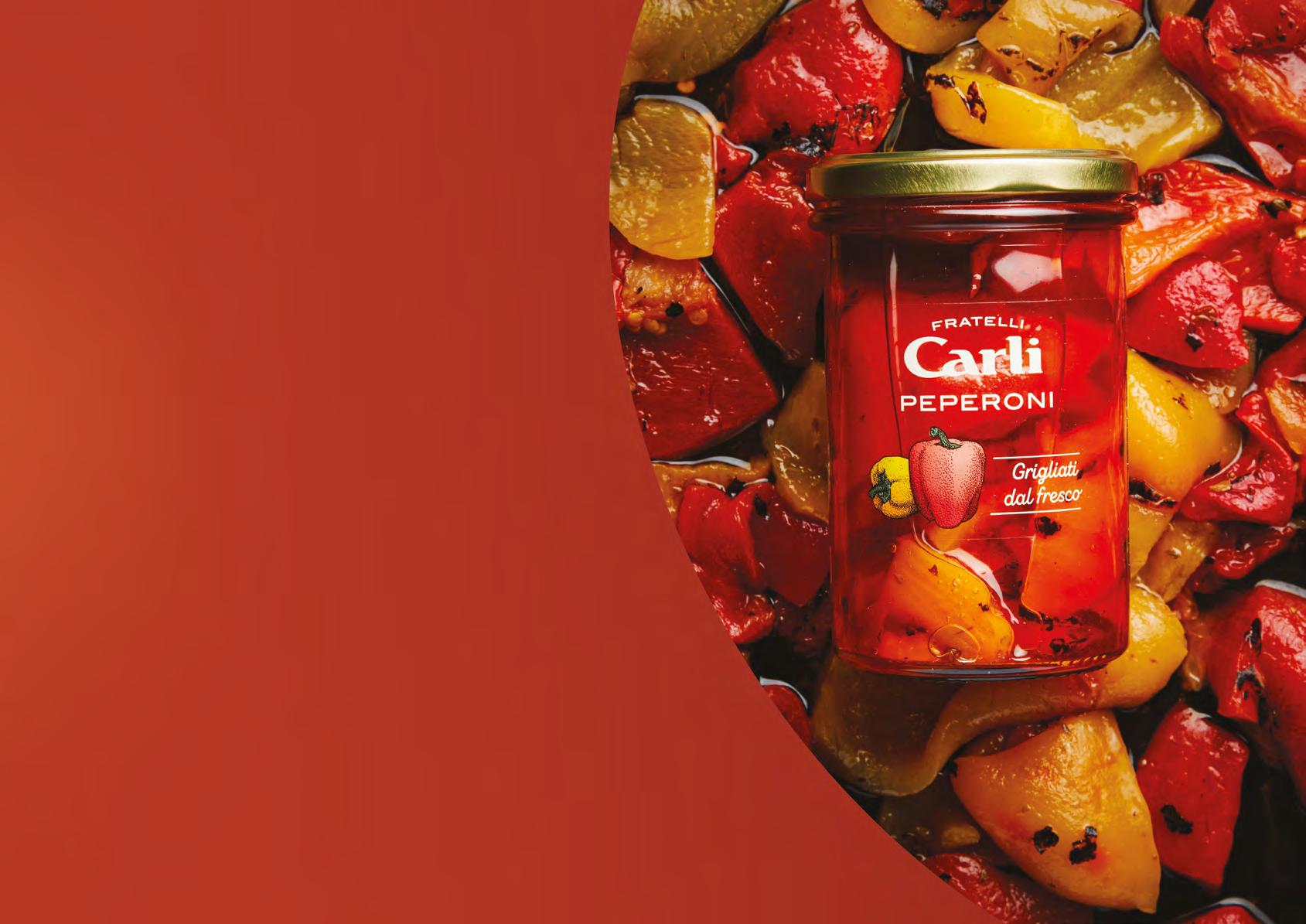
Marcello Porro Packaging and Warehouse Manager
Alessandro Anemone Purchasing Manager
• Develop 100% of new products with recipes in keeping with the food traditions of Liguria and Italy
• 100% of Olio Carli recipes analysed in our in-house laboratory
• Ensure digital traceability is available for 100% of the bottles of oil sold
• Zero product recalls for failure to comply with food standards or for risks posed to health
• Complete SLCA analysis on 55% of products by the end of 2027
• Keep the amount of FSC certified cardboard above 97% of the total cardboard used in all the packs of products sold
• Design packs so as to guarantee that at least 90% of the components can be disposed of separately
• Keep the percentage of plastic out of the total materials purchased below 2%
• Create at least 2 packaging redesign projects with low environmental impact by the end of 2027
ON-GOING ON-GOING ON-GOING ON-GOING
IN PROGRESS ON-GOING ON-GOING ON-GOING
new products launched during the year, all developed with recipes in keeing with the food traditions of Liguria and Italy 11
Results of Olio Carli recipes analyzed in our in-house laboratory
product recalls 0 of products (accounting for 78% of turnover) analyzed using SLCA analysis
new products, all developed with recipes in keeping with the food traditions of Liguria and Italy 11 analyses conducted on all our products
47.6% of all our packs made from FSC cardboard 98.8% recyclable materials used for the packs of our oils 100% plastic out of the total materials used for packs sold 1.01% of Olio Carli bottles with traceability visible on the website 100%
3,749 product analyses conducted by our in-house laboratory
2,831 of products (accounting for 78% of turnover) analyzed using SLCA analysis
based on the weight of each component of all packs with components that can be disposed of separately* 99.65%
project carried out, see page 84
Fratelli Carli devotes the utmost attention to the quality and safety of our products, guaranteeing high standards at all stages of the process, from the selection of the raw materials through to the moment the products arrive in our customers’ homes. This commitment is based on a strict program of checks and controls, transparency and the finest, most genuine ingredients.
Safety and quality are the top priorities that guide every choice we make at Fratelli Carli, starting from the selection of the raw materials, identified according to rigorous criteria and by maintaining stable relationships with reliable suppliers
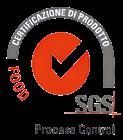
The company follows a rigorous, documented program aimed at guaranteeing quality and compliant with the principles of the Codex Alimentarius, a voluntary international food safety standard developed by the FAO and the WHO, and with EC Regulation no. 852/2004. In addition to the checks required by law, Fratelli Carli conducts specific chemical and physical analysis on all the samples of oil and on 100% of the Olio Carli recipes in our in-house laboratory, following a procedure for the control and verification of chemical parameters certified by SGS. This means that each bottle is accompanied by a Carli Guarantee Certificate, an “identity card” of the product containing details of all its chemical and physical characteristics. In addition to these checks, more than 350 organoleptic analyses are carried out by the company’s panel of tasters and by the Carli family, to evaluate the sensory profile of the products and ensure they meet the company’s high standards of quality. In total, more than 3,200 tests are carried out to ensure the compliance and excellence of Carli Oils.
To ensure quality, integrity and safety right along the production chain, the company has long since adopted a solid, integrated system for the batch management of all our products.

3,200 more than
chemical, physical and organoleptic analyses conducted in the company on oil samples and recipes
In 2024, this system was improved further, especially with regard to internal reports, by strengthening the mass balance tools.
This makes it possible to verify the correspondence between the amounts of incoming raw materials and outgoing finished products, guaranteeing accurate traceability and even closer control over all stages of the process. Also under study is a MES (Manufacturing Execution System) for the production of our pesto, spreads, sauces and other food specialties sold in jars. The MES enables significant innovation for production processes in terms of reliability, functionality, traceability, system integration and food safety, ensuring increasingly precise, accurate controls at every stage of the process.
Thanks to these efforts, there have been no episodes with a negative impact on consumer health. 11 new products developed by the Marketing and Product Development and Quality Control teams, together with the Carli family
Safety and quality are the top priorities that guide every choice we make at Fratelli Carli, starting from the selection of the raw materials, identified according to rigorous criteria and by maintaining stable relationships with reliable suppliers.
Fratelli Carli recipes have always been simple and wholesome, inspired by traditional home cooking and made using premium-quality ingredients, above all Carli Oil. Al our products embody the company’s history: Mediterranean tradition, uncompromising excellence and attention to people and the environment. The quality and sustainability of our products are attested to by certifications such as MSC, Dolphin Safe, SQNPI (National Integrated Production Quality System), DOP, DOC, DOCG, IGP, BIO.


9 For more details, see the “ Supply Chain” chapter, page 88.
The range is enriched and extended every year, thanks to the painstaking research carried out on recipes, ingredients and specialties that allow our customers to enjoy the best of the Mediterranean diet, traditional, authentic flavors from Liguria and the rest of Italy.
2024 saw the development of 11 new products, thanks to the meticulous efforts invested by the Marketing and Product Development and Quality Control teams, together with the Carli family, with a view to guaranteeing the excellence that is the hallmark of the company in each one.
A key element in this process is the direct, personal relationship we have with our carefully selected suppliers, who are fully involved in the company’s sustainability pathway9 .

The company undertakes to provide customers with clear, transparent information on the labels
As a family business and a B Corp, Fratelli Carli believes we should be the first to provide our customers with a guarantee of absolute quality. This is why transparency is key to everything we do. Fratelli Carli offers each customer the opportunity to accurately trace the content of every bottle of Carli Oil they purchase, straight from the company’s website. By entering the batch number printed on each pack, consumers can see where the oil comes from and consult all the results of the chemical and physical analyses that appear on the Guarantee Certificate. This practical tool makes it quick and easy to view key product information, at any time.
Responsible communication: clear information for informed choices
In addition to premium-quality products, Fratelli Carli also strives to guarantee responsible communication. The company undertakes to provide customers with even more clear, transparent indications on product labels than is required by law, to encourage informed, responsible choices by sharing detailed information on all nutritional values
Fratelli Carli offers each customer the opportunity to accurately trace the content of every bottle of Carli Oil they purchase, straight from the company’s website, see where the oil comes from and consult all the results of the chemical and physical analyses that appear on the Guarantee Certificate.
This commitment to responsible communication is an integral part of our quality management system, reflecting the constant attention paid to our customers. Our website also seeks to move in this direction, and is designed to offer increasingly clear information on each product.

To evaluate and continually improve the sustainability profile of our products throughout their life cycle, Fratelli Carli uses SLCA (Sustainable Life Cycle Assessment) analysis. This method, based on decades of scientific research, makes it possible to identify the positive or negative impacts of products, from sourcing the raw materials through to consumption of the end product, with the active involvement of all the players in the value chain. The results of the analysis allow us to identify the areas for improvement.
SLCA analysis is conducted regularly to monitor developments resulting from the actions implemented to improve sustainability.
An SLCA analysis improvement and review plan is implemented every year. So far, SLCA analysis has been completed for more than 47.6% of our products, accounting for more than 82% of sales turnover.
The scientific approach of the SLCA analysis requires detailed knowledge of all the inputs in the life cycle of a product. For this reason, Fratelli Carli undertakes to supply transparent data on how raw materials and materials are managed, in line with the GRI (Global Reporting Initiative) standards. This includes annual reporting on the amounts of raw materials and materials coming into the company, divided into a variety of categories.
In line with the previous year, in 2024, food raw materials accounted for 41.1% of the materials/ products purchased, with olive oil making up almost all of it (92.4%). Packaging materials accounted for 47.2%, while finished products made up 11.7% of the total materials/products purchased.
The collection and analysis of these data are essential for monitoring efficiency in the use of resources, assessing environmental impact and identifying further areas for improvement along the value chain, based on the results of the SLCA analyses.
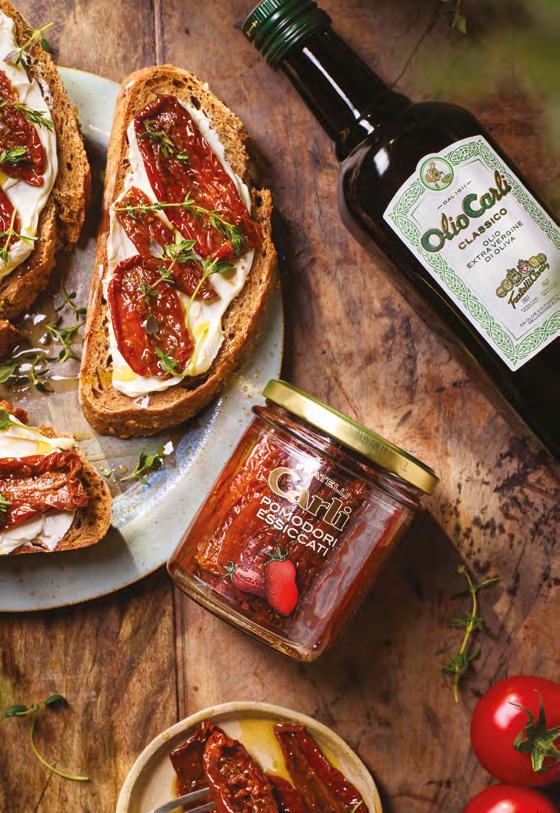
In
PVC-free mastic cap
Sustainability “by design” is a consolidated approach in Fratelli Carli, which means integrating sustainability principles into our operations right from the initial stages of each project, developing across-the-board skills, the ability to listen and a focus on customer care.
It is this approach that in 2024 led to the implementation of the “Food specialities redevelopment” project, set to continue over the coming months. This group effort, involving the Product Marketing & Development, Purchasing, Quality, Logistics and Production teams, together with our longestablished suppliers, seeks to enhance and develop the identity of each range, while respecting tradition.
Recipes inspired by the Mediterranean tradition, increasingly responsible packaging, clear, transparent information for customers and the active involvement of our company’s people: every aspect of the project is part of a smooth, integrated approach to illustrating and promoting an informed, responsible, shared way of working.
The whole Sauces range has been renewed in line with these principles, and the new “Basil Tomato Sauce” here is an example
Simple, wholesome recipe, as good as home-made, with top-quality ingredients: 100% Italian tomatoes, PDO basil and Carli Oil
Jar made from more than 28% recycled glass
100% recyclable packaging, with easily removable label and reusable jar

100% recyclable packaging 30% reduction in CO2 emissions
Materials and production processes optimized for the sticker and the label, in synergy with the supplier, with a reduction of more than 30% in CO2 emissions for each component compared to the previous version.
Tasting and discussion sessions in the company regarding new recipes and packaging
Label redesigned to provide immediate information to the customer: simple, transparent and with a focus on the ingredients.
Here at Fratelli Carli, our choice of materials derives from a desire to protect the quality of our products and to respect the environment.
A joint study, design and collaboration effort with our suppliers allows us to adopt increasingly sustainable solutions in terms of recyclability and raw materials, with a view to continual improvement.
Fratelli Carli packaging is mostly made of paper, cardboard, glass, aluminum, steel and a very small amount of plastic. Each material is chosen to ensure products are adequately protected, offering a quality experience for the customer while reducing environmental impact. Right from the design stage, Fratelli Carli focuses on how easily the packs can be recycled, with a preference for single-material solutions or packs with components that can easily be separated, in accordance with the principles of the circular economy.
For cardboard, this means choosing it from FSC® certified supply chains, which ensure responsible management of forestry resources. Thanks to the collaboration with our suppliers, today 98.8% of our cardboard packs have FSC® certification, and are produced using more than 72% recycled material
As regards glass, a naturally recyclable material, the amount of recycled material used is almost 68% This makes a significant contribution to reducing the use of new resources.
Plastic accounts for just 1.2% of the total materials used for packs. When it cannot be replaced by alternative materials, we endeavor to use recycled plastic, and the packing is designed so it can be fully recycled. Thanks to these continual efforts, more than 98.8% of the company’s packing materials is designed so the components can be completely separable, an achievement that reflects Fratelli Carli’s unfailing commitment to recyclability.
72% of recycled cardboard in our packs
Packaging innovation is the result of a team effort involving the Marketing and Product Development, Purchasing, Production and Logistics departments. This innovation "by design" seeks to create sturdy, reliable, easily recyclable packaging, reducing environmental impact right from the conception stage.
Significant results have been achieved over the years, such as the restyling of the Classic and Fruttato Olive Oil labels, which has helped reduce emissions by 7%; the removal of the plastic window for the entire durum wheat pasta range; the redesigning of the boxes for our food specialties sold in jars, which has enabled a total reduction of 40% in the environmental impact of this type of packaging; the choice to use 100% recycled plastic filling materials for shipments abroad, and the introduction of new cases for the bakery products for special occasions, made from material that can be disposed of in the paper bin
-7%
reduction in emissions linked to Classic and Fruttato Olive Oil labels, thanks to their new design
A broad-ranging strategic project is currently under way with the aim of redeveloping our food range, enhancing the variety and identity of each product range, in keeping with the brand’s history. Packaging is another key aspect embraced by this development process, in line with the company’s objectives and with a view to making improvements in terms of certifications, the use of recycled materials and simpler disposal and recovery at the end of product life. A tangible example of this commitment to sustainability can be seen in the shoppers used in the Emporiums, made with the stones from the olives used during the oil producing process. The stones are crushed into a powder and mixed with cellulose and water to obtain a type of paper that is 100% recyclable, turning production waste into a new resource. In addition to reducing environmental impact, this move effectively demonstrates the increasingly circular, responsible approach adopted by the company, paying close attention to every phase in the production cycle.
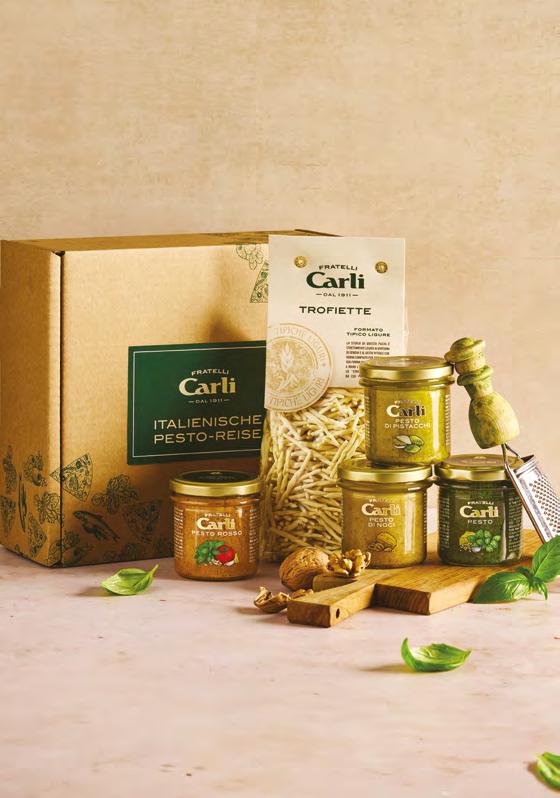
of cardboard packaging is FSC® certified 98.8% of Fratelli Carli Oil packaging is fully recyclable 100%
To support on-going improvement, and solely with our in-house resources, Fratelli Carli has developed a project for the structured management of data functional to sustainability reporting and to the monitoring of the company’s various KPI, with the creation of a Data Warehouse.
The project began by carefully mapping the sustainability parameters relating to materials (e.g. weight, disposal code, certifications, etc.), raw materials and finished products (type, certifications, renewable electrical energy used in the production process, etc.) and suppliers (number of employees, gender quotas, amount of renewable electrical energy used, company certifications, etc.), clearly indicating the source, the function responsible, the interconnections and acceptability and verifiability criteria
This solid base led to the first step of the “data modeling” project, with a dedicated, coordinated team effort to define ESG data tracking for all the materials, raw materials and finished products purchased and sold, guaranteeing complete integrity and accuracy.
This detailed information is now implemented on our corporate systems, and the Data Warehouse is in production, enabling the complete integration of data and producing the analyses and indexes required by sustainability governance. This tool is crucial for accurate monitoring of the multiple KPI, tracking progress and identifying new areas for intervention.
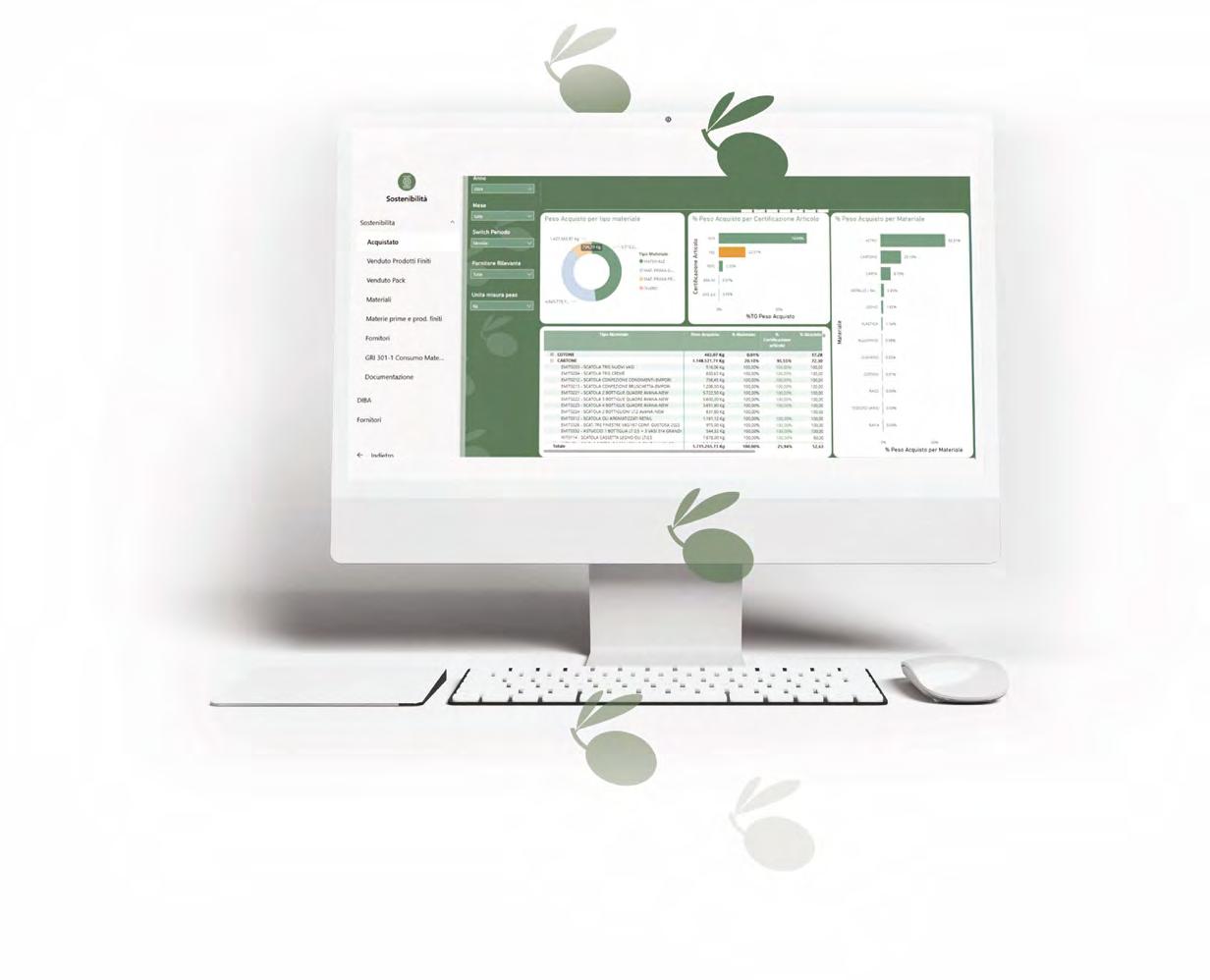
A screen of the sustainability Data Warehouse, now fully operative, which integrates and produces, in real time, structured, traceable data to support ESG governance.
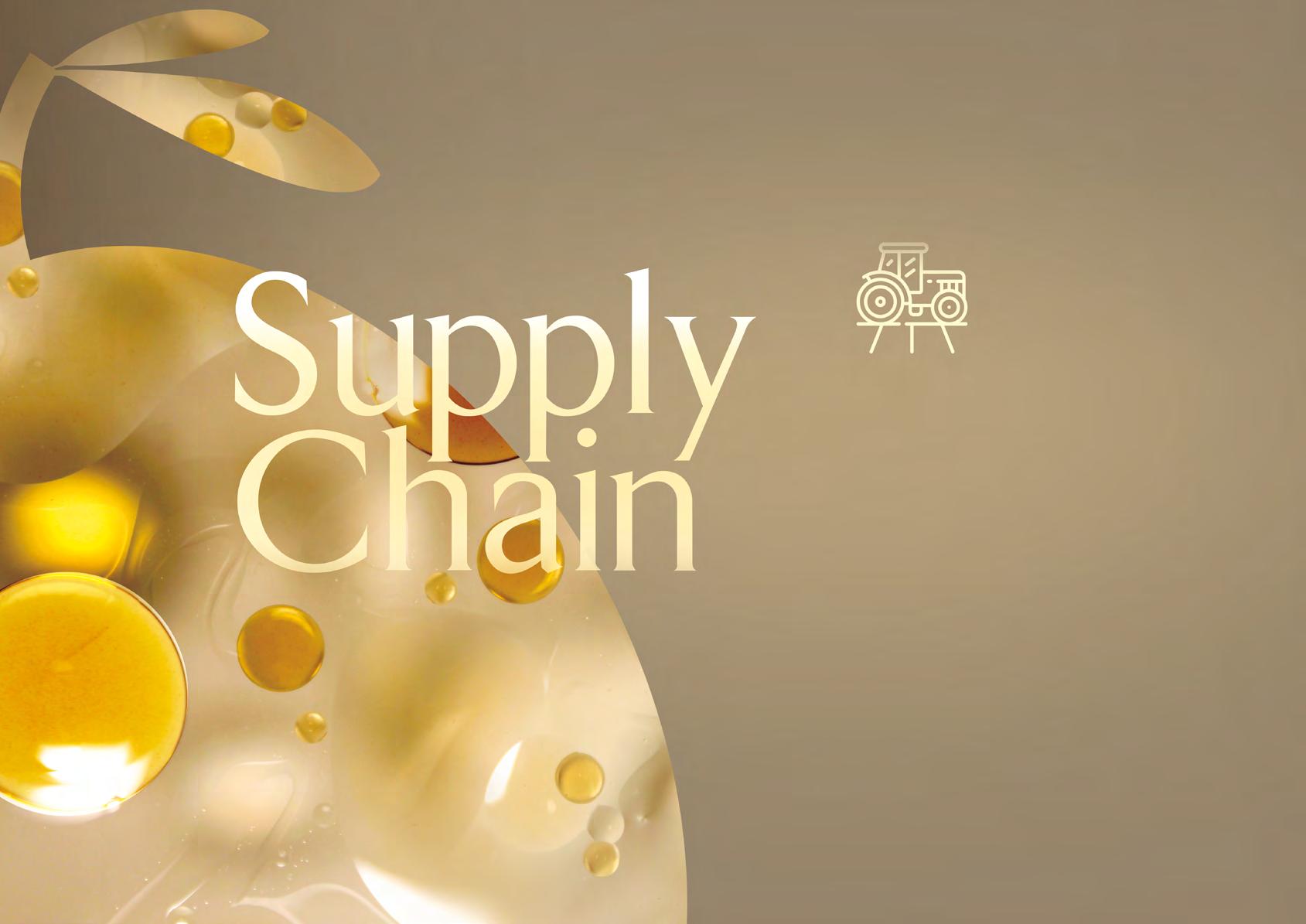
We always choose our suppliers carefully and get to know them personally

The strong, valuable relationship we have built up with our suppliers over the years has allowed us to establish a trusted reputation for top-quality products. We are aware that our commitment to sustainability and quality would have no future without their help.
This is what prompted us to implement the Fratelli Carli Districts and Codes project, which is key to the sharing of a process formed by shared values, and above all effective actions.
Product Quality Control Manager
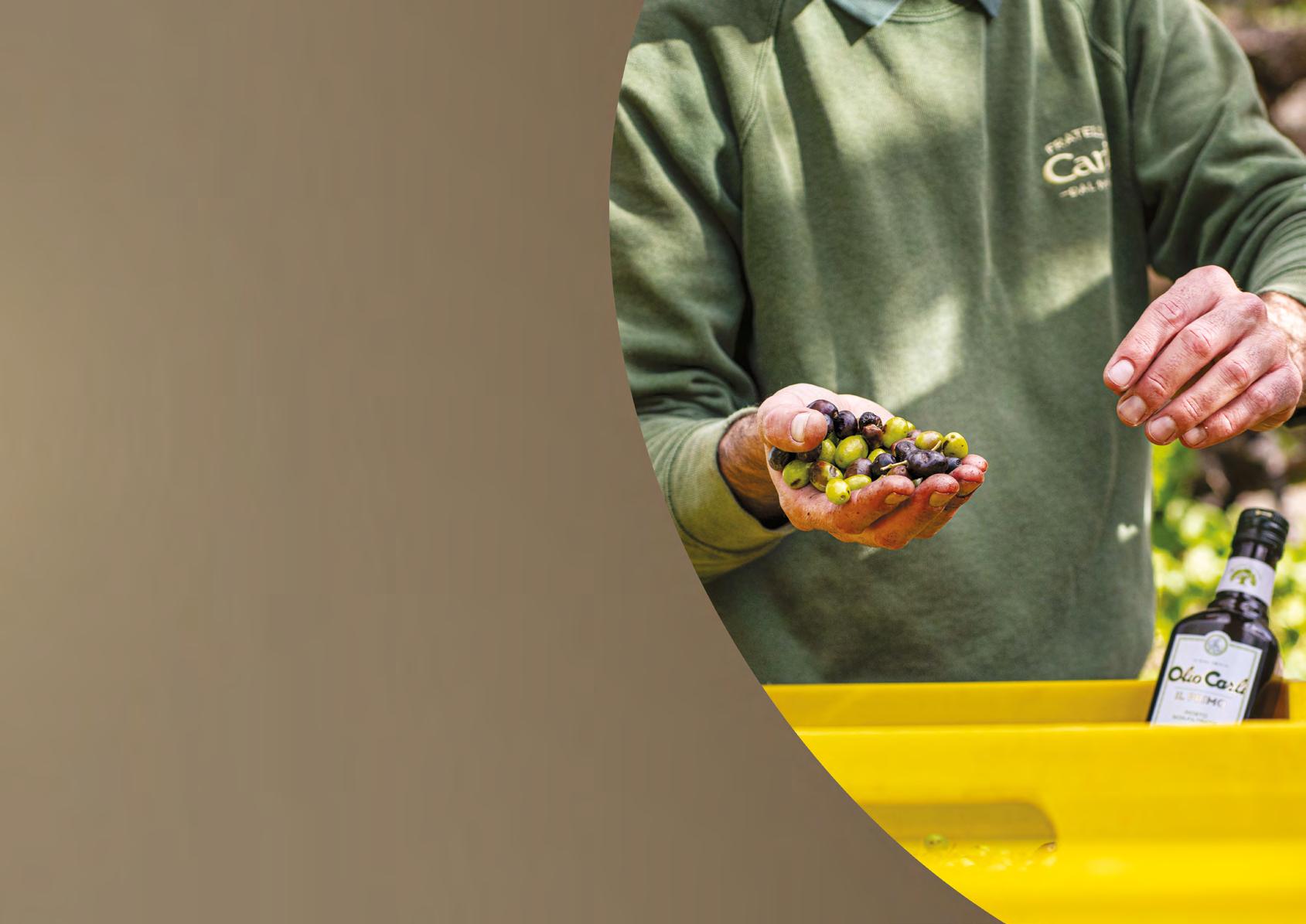
Alessandro Anemone Purchasing Manager
Marta Gorlero
Marketing and Food Product Development Manager
• Continue with ESG mapping, encouraging the participation of major suppliers* with the aim of maintaining over 75% coverage in terms of spending
• Keep the percentage of the total sourcing budget spent on local suppliers in Italy at over 70%
• Complete ESG mapping for 100% of new major suppliers* within the first year of working with them
• By the end of 2027, increase the percentage of B Corp and/or Benefit Company major suppliers to at least 12% of total spending
NOT ACHIEVED ON-GOING ON-GOING
IN PROGRESS
coverage of ESG mapping on major suppliers in terms of spending 80.8% of suppliers involved in the Olive, Goodness, Beauty and Delivery Codes out of the total number of major suppliers 44% of the total procurement budget spent on local suppliers located in Italy 63%
5 of the total sourcing budget spent on local suppliers in Italy 63% of new major suppliers mapped with ESG questionnaires 100% of the total sourcing budget spent on B Corp and/or Benefit Company major suppliers 9.8%
10
coverage of ESG mapping on major suppliers in terms of spending 80.8% B Corp Certified suppliers or Benefit Corporations in our supply chain
Working Groups on ESG issues shared with Goodness District Suppliers
In Fratelli Carli, sustainability extends beyond the company, actively involving our entire network of suppliers.
In our relationship with the main production chains – which include suppliers of finished products, components, services, logistics and the olive and oil supply chain – the company has embarked on a structured process to integrate sustainability into our processes, pooling good practices and effective solutions based on shared principles and values.
This process is supported by a series of specific “Codes” developed together with our suppliers and regarding the food, oil and logistics supply chain.
This commitment is evidenced in a structured process that aims to spread and boost sustainable practices right along the supply chain, starting from solid foundations and a shared approach to work. Our dealings with our suppliers are based on sound, lasting relationships, the longest of which stretches back 60 years. Fratelli Carli particularly values local businesses, and indeed spends 63% of our sourcing budget on purchasing from Italian suppliers. In addition to evidencing the value of the local area, this commitment strengthens relationships based on mutual trust. Local suppliers
These Codes identify a series of shared values and principles, consistent with the pertinent Sustainable Development Goals, forming a pathway for sustainable growth, with objectives and operational activities.
Proportion of expenditure to local suppliers (2024)
Non-Italian suppliers 37%
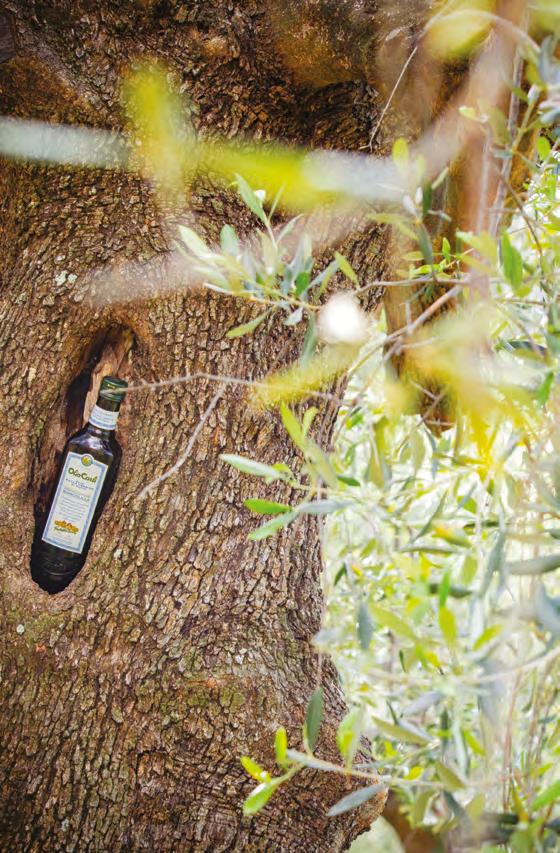
63% of the total sourcing budget spent on local suppliers in Italy
To boost the involvement of the supply chain even further, and to fine-tune the shared actions, during the year the company embarked on an important process for the ESG mapping of our supply chain, with the aim of providing a snapshot of its level of environmental and social awareness and responsibility.
This process involved more than 180 businesses right across the main supply chains, and is a key step towards extending the pool of suppliers actively involved in the company’s sustainable innovation efforts and accurately establish priorities and actions to be taken. This mapping, in the form of a questionnaire, covered more than 68% of major suppliers 10 (including all the new ones), giving a significant boost to the integration of sustainability criteria into the evaluation and collaboration processes.
The results of the questionnaire are indicative of a solid base: well over half of the suppliers who returned the questionnaire is accounted for by small and medium enterprises, which have a dynamic, flexible approach to embracing sustainability principles.
More than 35% of them measure the emissions generated by their activity; 47% use at least some electrical energy from renewable sources in their production processes; 28% have adopted a certified Environmental Management System, and 36% have a certified Occupational Health and Safety Management System.
68% of major suppliers mapped using an ESG questionnaire more than
Particular attention is paid to the olive and oil supply chain, which has always been central to Fratelli Carli’s operations. For years now, the company has been engaging in a direct, constant and personal dialogue with producers from the main olivegrowing areas in Italy, Greece and Spain.
This relationship has been built up gradually over the years, and is founded on mutual knowledge and trust and a shared commitment to a sustainable development model.
Over time, this dialogue has led to numerous concrete actions inspired by the Olive Code, such as training on and monitoring of production processes designed to take care of the environment, safety and the local area, or the collaboration embarked on in 2021 with a group of Greek oil producers for the joint creation of the “Lifemax” protocol, developed together with BASF, to foster sustainable practices on olive farms and in olive mills. Also part of this strategy is the construction, over the coming months, of a new, modern oil mill on the Imperia premises, designed to develop and boost local production and strengthen an olive growing and oil production model that seeks to guarantee top quality.
10 For the purpose of the analysis, major suppliers are considered as those that, overall, account for 80% of the total value of the amount spent by the company for the purchase of goods and services.
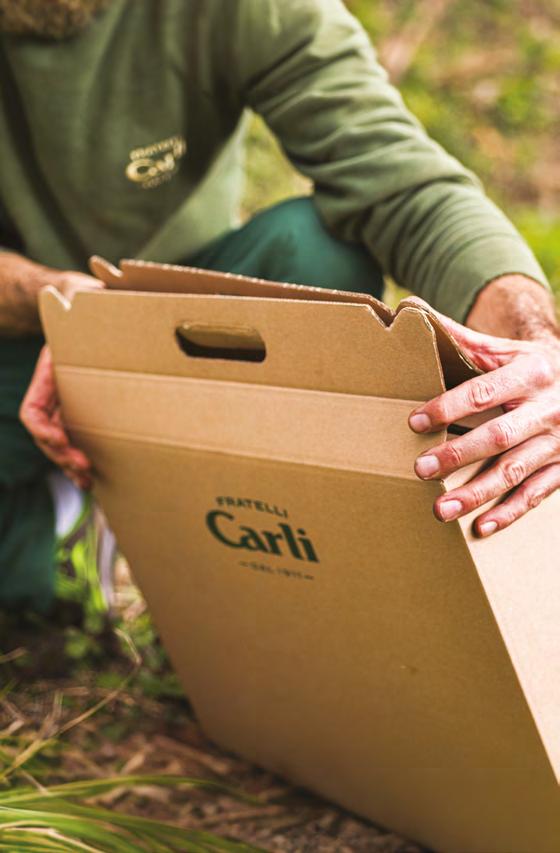
The “Delivery Code” focuses on the application of good practices and on measuring consumption along the logistics chain
Another strategic pillar is the Delivery District, a key element in the Fratelli Carli distribution model. The company has actively involved our delivery drivers – the jewel in the crown of our logistics system – by drawing up a “Delivery Code” with the aim of reducing consumption and emissions, working together with them on two fronts:
• sharing virtuous practices for the driving and maintenance of the vans and for measuring consumption;
• a monitoring checklist to assess progress on the shared objectives in the Code and in keeping with the pertinent SDGs.
The results of the monitoring undertaken with the Delivery Code, focused on the application of good practices and on measuring consumption along the logistics chain, have laid the foundations for a structured process that seeks to identify, reduce and fully offset the emissions generated by delivery logistics11 .
100%
of CO2 emissions generated by the entire delivery logistics process in Italy and abroad offset for 2023
companies involved in the project for the transformation of the Goodness District into the Benefit District

Since 2013, Fratelli Carli has been striving to build a special, collaborative relationship with our suppliers of finished products, components and services, founded on sharing the same values and objectives, set out in the Goodness Code
2016 saw the first Goodness Day, an annual encounter that brings all the partners in the District together in Imperia to exchange and share experiences and build new approaches to shared development and progress. Year after year, this special event has helped strengthen an authentic community of purpose
It is this spirit that shaped the ambitious project to turn the Goodness District into a Benefit District, inspired by the principles and modeled on the structure of Benefit Companies More than 60 companies in the District have made an active contribution to defining the Common Good Purposes, focused on production, wellbeing and a responsible use of resources. These shared objectives are fully consistent with the Sustainable Development Goals identified in the Code.
During Goodness Day 2023, more than 100 representatives of the companies in the supply chain came together to form working groups for the effective application of these principles, and identified five priority actions on which to focus their collective efforts:
• the creation of an Ethical Code governing raw materials and finished products;
• the creation of a tool for sharing good practices regarding the impacts of production;
• a record of the virtuous practices aimed at employees;
• the design of a sustainable market for the District;
• the activation of a permanent round table on energy.
Over the following months, the District continued to work actively on a number of questions, fueling an on-going dialogue among companies, consolidating ideas, collecting good practices and starting to lay the foundations for a shared action plan.
Shared values
The Goodness Code as a benchmark Strategic actions
Five shared actions to make progress Tools
Five themed working groups activated with shared tools and KPI

The foundations of the District
More than 60 companies united by a shared vision Purposes
Thanks to this shared, collective effort, Goodness Day 2024 saw the definition of an even more structured, practical program. The five areas of commitment became actual working groups, which, based on the Common Good Purposes and the framework of the pertinent SDG, are developing operative tools, KPI and metrics to measure the condition and sustainable growth of the District.
This working method – involving listening, discussion and a shared construction effort – constitutes an innovative, practical approach. It not only strengthens a shared aspiration to generate authentic, lasting value for all the communities involved, but is already yielding effective results: almost 10% of total spending for purchasing from major suppliers12 is accounted for by certified B Corp and/or Benefit Companies. (see page 96 of the Italian version of the Report)
When we design and create products, we define their environmental and social sustainability criteria and take account of them at every stage of the process.
An on-going joint effort shared by companies
Three Common Good Purposes inspired by the structure of Benefit Companies Method
We guarantee the wellbeing of our employees protecting their health and safety in the workplace and extending the range of welfare services offered
We undertake to foster an inclusive working environment, valuing diversity and offering valid opportunities for professional development
We guarantee the use of economical, reliable, sustainable and modern energy systems
We pool ideas for sustainable innovation within the District. Outside of it, we raise awareness among our suppliers, collaborators, employees and customers in our pursuit of all the shared objectives of the 6 SDGS of the District.
12 For the purpose of the analysis, major suppliers are considered as those that, overall, account for 80% of the total value of the amount spent by the company for the purchase of goods and services.
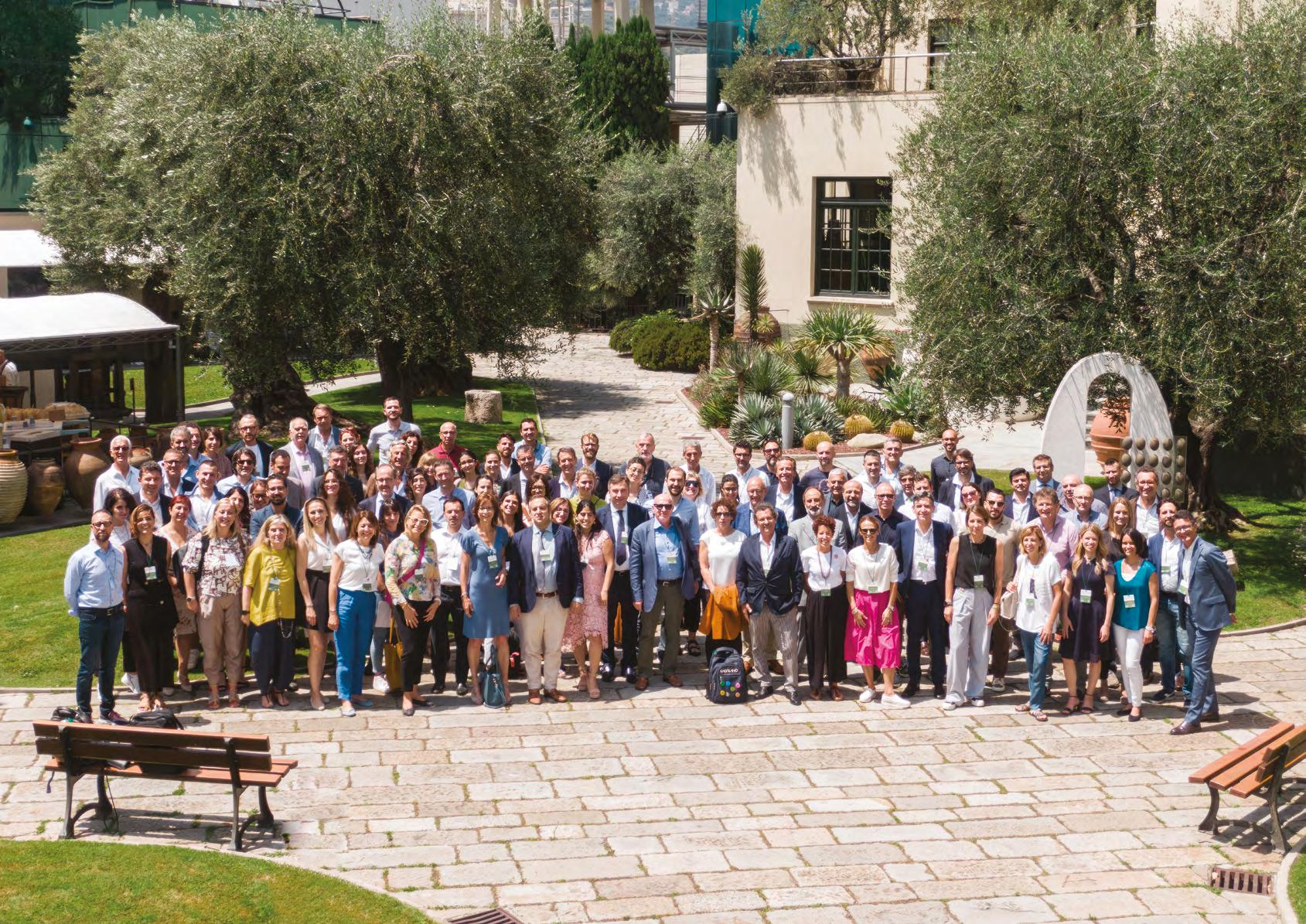
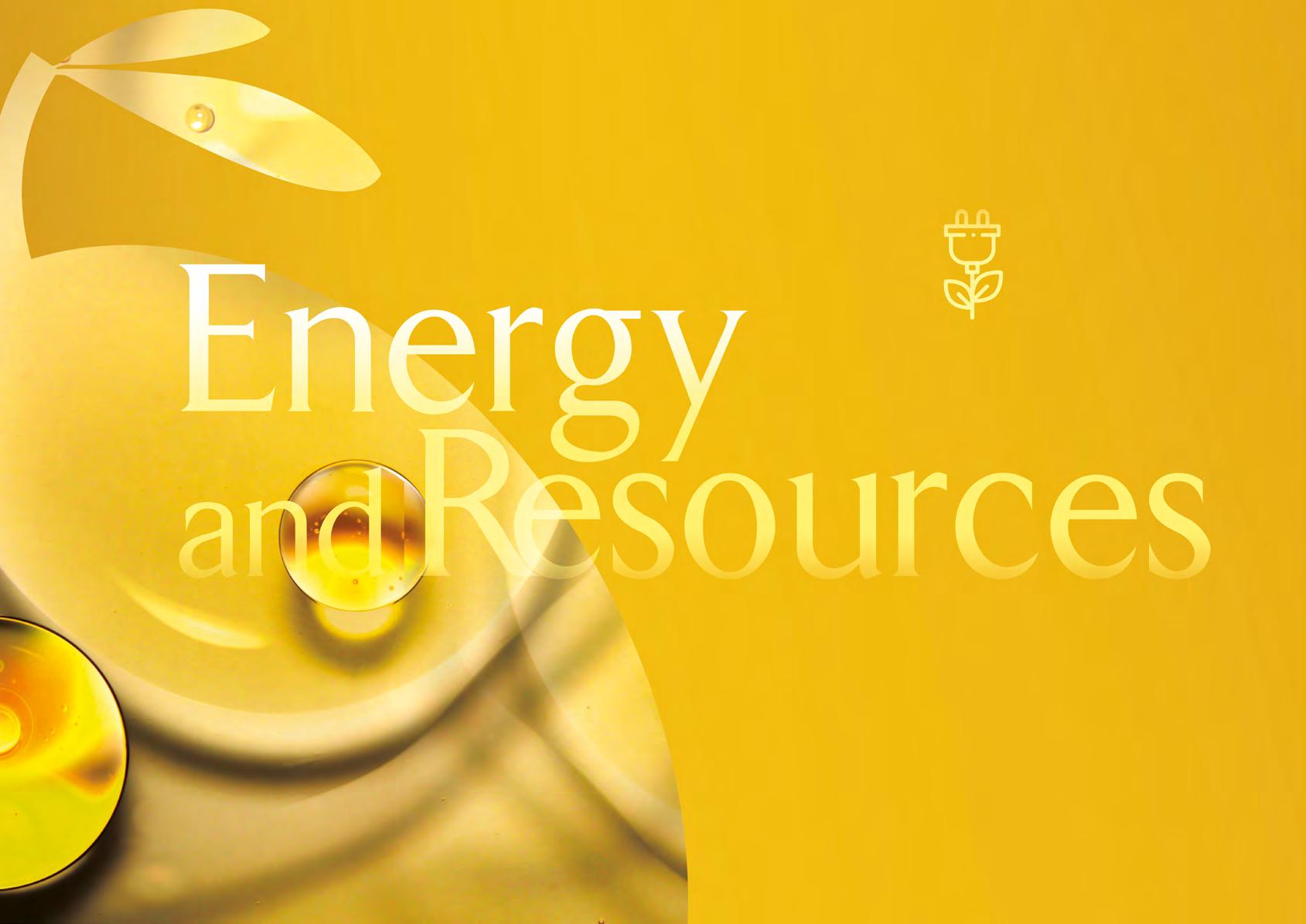
Waste is disrespectful, so it’s something we’ve always strived to avoid

We are committed to constantly reducing our energy footprint during the production and logistics phases.
On the production front, we have created a model for saving and for reducing our carbon footprint based on a synergy created through three essential actions: the use of electrical energy derived entirely from renewable sources, self-production of energy through a photovoltaic plant and actions aimed at reducing consumption.
Federico Calzamiglia Operations Manager

• Keep the percentage of electrical energy sourced from renewable sources at 100%
• Increase the amount of self-produced renewable electrical energy to 5% by the end of 2027
• Work towards a progressive reduction in the Carbon Intensity rate*, with targeted actions to foster energy efficiency and technological innovation, monitoring progress annually.
• 10% increase by the end of 2027 in the proportion of hybrid or electric vehicles out of the total company fleet
• Work towards a progressive reduction in the environmental intensity indexes ** of the Gazzelli production plant – where the food specialties in jars are produced – with particular reference to both waste generation and water consumption, by adopting preventive and process efficiency measures and optimizing waste and water management
ON-GOING ON-GOING
IN PROGRESS
IN PROGRESS
ON-GOING
* The' "Carbon Intensity rate" is calculated as the ratio of tonnes of CO2 equivalent emissions (Scope 1 and 2) to tonnes of products sold (tCO2eq/t products sold) and as the ratio of tonnes of CO2 equivalent emissions (Scope 1 and 2) to millions of turnover (tCO2eq/M euros of turnover).
** The " waste intensity index" refers to the ratio of total waste generated (expressed in tonnes) to the physical production of the plant. Specifically, for the Gazzelli plant, the index is calculated using the total number of jars produced. The " water intensity index" srefers to the ratio of total water used (expressed in m³) to the physical production of the plant. Specifically, for the Gazzelli plant, the index is calculated using the total number of jars produced.
870,806 kWh of electric energy from certified renewable sources
of electrical energy produced by our own photovoltaic plant
Emissions intensity index for 2024 0.141
Waste intensity index** 0.123
100% kWh of electrical energy produced by our own photovoltaic plant
870,806 of CO2 emissions generated by the entire delivery logistics process in Italy and abroad offset for 2023 100% of electrical energy from certified renewable sources 100% of hybrid or electric vehicles out of the total company vehicles used by employees 30.4% of self-produced and consumed electricity from renewable sources compared to total electricity consumed 21% Water intensity index** 0.0032 For the Gazzelli production plant:
of total Co2eq Scope 1 and Scope 2 emissions -32.7% tonnes of CO2 (Scope 1 and 2) per million of turnover 13.4
Fratelli Carli’s efforts to mitigate our environmental impact take the form of action on several fronts: improving energy efficiency, reducing emissions and making use of renewable sources.
100% of the electrical energy used in the Imperia plant comes from renewable sources, due to a responsible choice we began making in 2008
In 2011, we also installed a photovoltaic plant, which produces an average of 929,000 kWh a year, and which in 2024 helped prevent the emission of more than 384 tonnes of CO2 and fed back around 112,176 kWh back into the grid, thus helping to reduce the national energy mix.
Electricity from renewable sources consumed in 2024
With the aim of optimizing energy consumption, the company regularly monitors and reports on the use of fuels, gas and electrical energy, also by carrying out an energy diagnosis updated at the intervals required by law, which allows us to evaluate performance and identify areas for improvement. Self-produced and consumed
Emissions avoided (tCO2eq), Market-Based method thanks to the photovoltaic plant
In recent years, the adoption of high-efficiency technologies has allowed us to constantly optimize energy consumption.
Also considering the interruption of activity in the refinery, 2024 saw an 18% reduction in electrical energy consumption, and a 30% reduction in the total amount of energy consumed, which fell from 33,993 to 23,610 GJ).
These results also have a positive impact on climatealtering emissions, which are monitored and reported on in accordance with the international Greenhouse Gas Protocol.
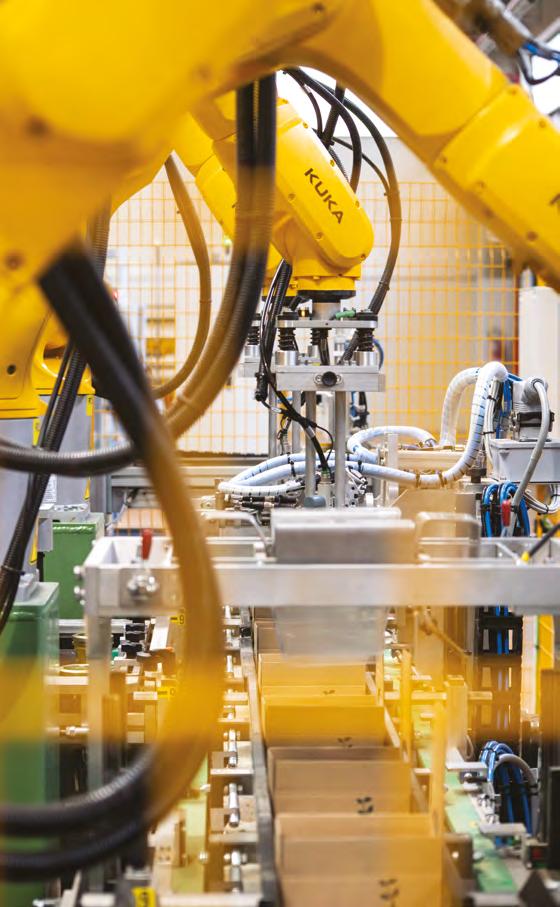
Our commitment to the energy transition regards not only efficiency, but also a gradual reduction in the direct and indirect emissions related to our operations
In line with the international GHG Protocol, the company monitors and reports on our Scope 1 emissions (i.e. those generated directly, such as the combustion of gas for thermal processes) and Scope 2 emissions (the indirect emissions associated with the production of electrical energy purchased).
In 2024, Scope 1 emissions totaled 992 tonnes of CO2eq, a significant reduction compared to the previous year, thanks to more efficient management, work carried out to modernize the systems, and partly due to the interruption in the refinery activity.
100% of electric energy used from renewable sources -33%
Total CO2eq emissions, Scope 1 and Scope 2
Even more significant is the figure for Scope 2 emissions, calculated using the “market-based” criterion and amounting to zero, thanks to the use of energy from renewable sources
Overall, Scope 1 and 2 emissions fell by 33%, from 2,425 to 1,631 tonnes of CO2eq.
The Carbon Intensity indicator, which measures the ratio of CO2 equivalent to products sold, remained substantially stable in 2024 compared to the previous year (0.1329 tCO2eq/t products sold in 2023 and 0.1405 tCO2eq/t products sold in 2024).
These results confirm the efficacy of the process undertaken by the company, set to continue with actions already in progress or at the planning stage: from the installation of a new heat pump at the Emporium in Imperia to the design of the new oil mill, conceived to guarantee the best energy performance currently possible.
These actions are accompanied by the gradual move towards hybrid/electric vehicles for the company fleet, and the feasibility study for a new photovoltaic plant at the Gazzelli factory.
870,806 kWh energy produced by the photovoltaic plant in the Imperia factory
384 tonnes of Co2 saved thanks to the photovoltaic plant
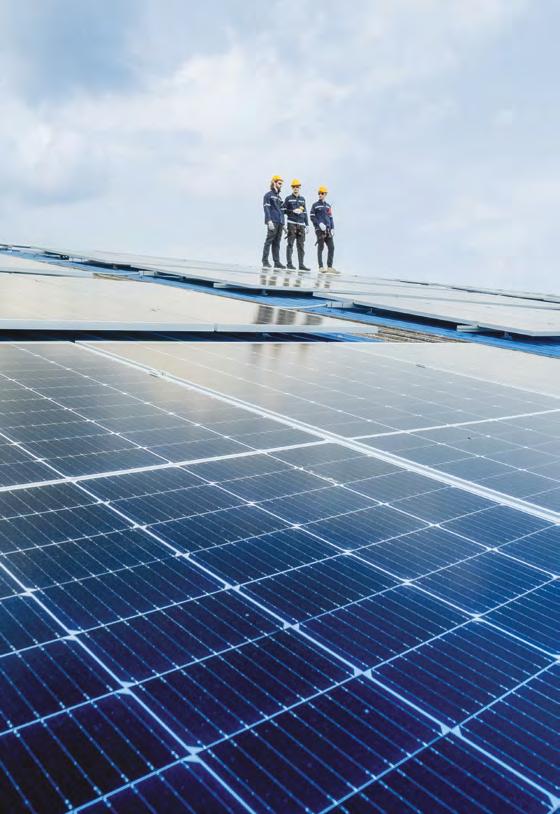
For a more complete, responsible overview of our climate impact, Fratelli Carli has extended the systematic reporting on emissions to indirect emissions right along the value chain (Scope 3), in accordance with the GHG Protocol guidelines. Up until last year, the analysis, conducted since 2021, has taken into consideration seven categories, considered the most significant for the company’s activities.
In 2024, the company included a further category:
12 - Use and end-of-life treatment of sold products - for the reporting of emissions linked to the collection, treatment and disposal of packaging of products sold, calculated based on the materials and types of packaging sold in the various nations served.

Overall, Scope 3 emissions account for around 94% of total carbon impact. The most significant categories remain sourcing of raw materials and packaging materials, and transport (13.4%), followed by the purchase of capital goods (2.4%).
This detailed reporting allows for a more accurate identification of the areas with the highest impact, and enables us to establish a series of specific actions to be implemented right along the value chain, working to promote increasing involvement on the part of our suppliers and an increasing environmental awareness on the part of consumers
Waste management: reducing, recycling, recovering
Waste management has always been a top priority for Fratelli Carli, involving not only our employees and in-house staff, but also our partner companies right along the supply chain. This management is governed by specific in-company procedures, which are constantly updated to respond to changes in production processes and in the regulatory requisites in force.
Fratelli Carli is aware of the negative impacts inadequate management of this process can have on the environment and on biodiversity, and this is why we work to prevent ecological damage, by limiting the introduction of exogenous substances into the ecosystem thanks to the use of good disposal practices. An in-depth analysis of waste-generating activities has enabled us to classify and characterize them accurately, and thus to constantly improve our approach to managing them.
Most of the waste produced by the company is composed of non-hazardous materials such as packaging, residue from olive-milling operations and food processing waste.
In 2024, the total amount of waste decreased further, in line with the trend observed in recent years, reflecting both Fratelli Carli’s constant efforts to prevent waste and the interruption of activity in the refinery.
The temporary interruption of the refinery activities also impacted the percentage of waste sent for recovery, due to the absence of a significant amount of processing materials from the refinery, all of which is treated in this way. Despite this, the company’s efforts to increase the amount of waste sent for recycling/recovery continued: in addition to separate waste collection and recycling, part of the waste is used for regeneration processes in supply chains that turn the waste into byproducts for new production cycles.
To monitor the most significant waste production processes more accurately, a dedicated intensity index has been introduced for the Gazzelli plant, where our specialties in jars are produced13 .
This indicator will allow us to specifically and accurately measure the effects of the efficiency measures scheduled for this factory. With reference to the period 2023-2024, the index showed a substantially stable volume of waste produced per number of jars, equal to 0.119 kg in 2023 and 0.123 kg in 2024.
13
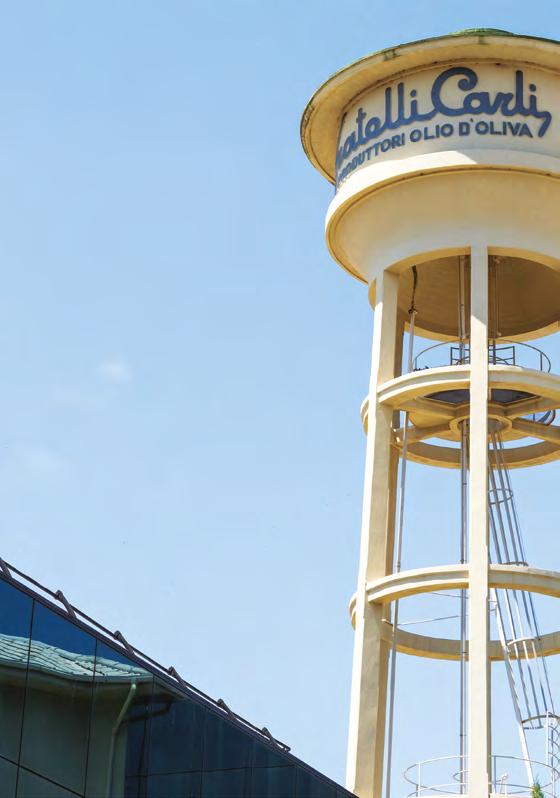
Through an integrated series of technical, management and cultural actions, Fratelli Carli has always sought to guarantee efficient water management, moved by an awareness of the value of this resource for the environment and the local area.
2024 saw a significant reduction in our water requirements, largely attributable to the interruption of the refinery activity.
Also in this area, we introduced a dedicated water intensity index14 for the Gazzelli plant, with the aim of specifically and accurately monitoring the results of the improvement actions gradually implemented. In the period 2023-2024, this index showed a slight reduction in consumption, which fell from 0.0034 m³ per jar in 2023 to 0.0032 m³ per jar in 2024.
The analytical testing entrusted to an external laboratory regularly confirm compliance with the standards established by the pertinent regulations (Legislative Decree no. 152/06 as amended). Water treatment processes are also an important part of Fratelli Carli’s daily operations. The Gazzelli plant is equipped with a modern wastewater purification plant that enables the delivery of the wastewater into the public sewerage system, in compliance with current environmental regulations. On the Imperia premises, water is also treated so that it can be discharged in compliance with environmental requisites. Specifically, process water passes through settling tanks for the separation and recovery of any oily parts present, while the vehicle was water is channeled into a purification plant.
0,123 Water intensity index 0,0032 For the Gazzelli production plant
Waste intensity index
These efforts to guarantee responsible water management also include constant monitoring of both inbound and outbound water quality. On the Imperia premises, compliance with the legal limits for discharge into the sewerage system is guaranteed by a continuous control system that includes samplers, flow meters and thermometric probes.
This attention to efficiency also extends to the offices, where the water from the aqueduct is used for the toilets and the changing rooms All the traditional taps are equipped with water-air mixers, which reduce flow without impacting water pressure. In addition, the stations for the delivery of microfiltered and chilled drinking water encourage the use of reusable water bottles rather than disposable plastic bottles.
14 The " water intensity index ” refers to the ratio of total water used (expressed in m³) to the physical production of the plant. Specifically, for the Gazzelli plant, the index is calculated using the total number of jars produced.
The reductions achieved by Fratelli Carli in consumption, emissions and waste are the result of an integrated approach combining management tools, technical innovation and the active involvement of the whole value chain.
This set of coherent, synergistic actions is reflected across all environmental areas, from the management of operating performance to by-product valorization and the strategic role played by the logistics network.
The core element of this commitment is the Integrated Environmental and Safety Management System, which enables constant, systematic monitoring of environmental performance and guarantees coherent, lasting choices.
The system is complemented by a preventive approach in the form of specific actions regarding the reduction of packaging materials, the redesign of packaging, the dematerialization of paper documents and the mapping of the materials used to aid proper disposal and improve end-of-life treatments.
The Integrated Environmental and Safety Management System enables constant, systematic monitoring of environmental performance and guarantees coherent, lasting choices.
From this perspective, the valorization of byproducts is a virtuous example of the circular economy: the greasy earth, previously classified as waste, is now used for the production of biofuels, as provided for in the National Sustainability Certification System.
100% of CO2 generated by the entire delivery logistics process in Italy and abroad offset
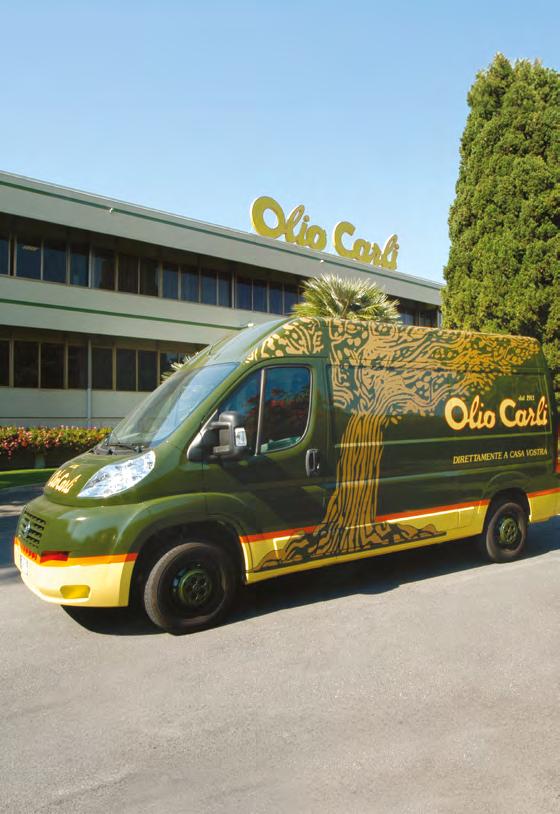
Do you plan routes in order to optimize travel?*
Do you use apps to plan routes?*
A key contribution to Fratelli Carli’s integrated approach is also made by our network of logistics partners, and above all by the delivery drivers of the “Delivery District”.
The van drivers involved undertake to adopt the actions and procedures envisaged in the Delivery Code, with a view to minimizing the environmental impact of their activities as far as possible, monitoring their consumption year after year
To assess the efficacy of these efforts, the District regularly uses a dedicated checklist, which evidenced significant progress once again in 2024 in terms of awareness and on-going improvement.
* Questions taken from the checklist submitted annually to the delivery drivers in the Delivery District.

The “Delivery District” regularly uses a dedicated checklist to track significant progress in terms of awareness and on-going improvement.
Measurement of primary transport consumption
Complete monitoring of consumption, from the company headquarters to the warehouses

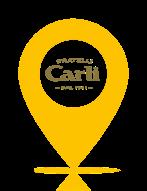
Involvement of the network of delivery drivers
In the Delivery District*, sharing of good practices to minimize impact
Analysis and monitoring of foreign carriers
Collection of data and evaluation of the sustainability performance of international partners
In continuity with the process of Scope 3 emissions reporting, and with the active involvement of our delivery drivers in optimizing consumption, Fratelli Carli has identified logistics as a strategic driver for intervention on environmental impact.
The mapping of emissions throughout the entire delivery logistics system – from primary transport to customers’ homes and the Emporiums – has allowed us to activate a structured plan for the offsetting of emissions
Since 2022, the emissions generated by the entire delivery process in Italy and abroad are offset by the annual purchase of certified carbon credits, generated by projects for the production of energy from renewable sources. For emissions generated by delivery logistics during 2024, the company has once again confirmed its commitment to this process.
Involvement of logistics companies
In the Goodness District**, collaboration and sharing of good practices in accordance with the Code
* For more details, see page 94
** For more details, see page 96
Updating of data on the fleet of delivery vans
List updated all the time to guide on-going improvements
Measurement of primary transport consumption
From the warehouses to customers’ homes and Emporiums
Offsetting of 100% of delivery logistics emissions for 2023
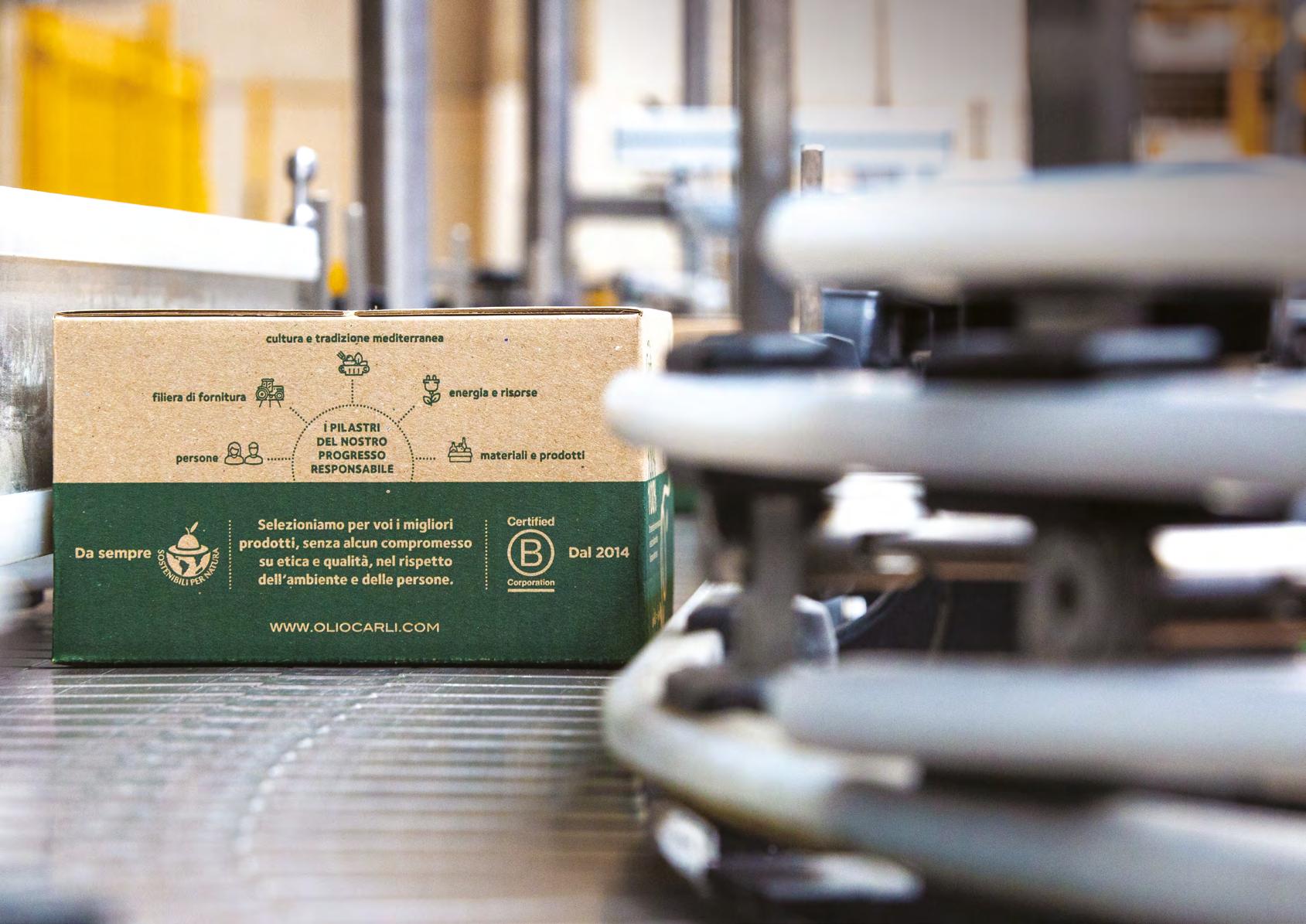
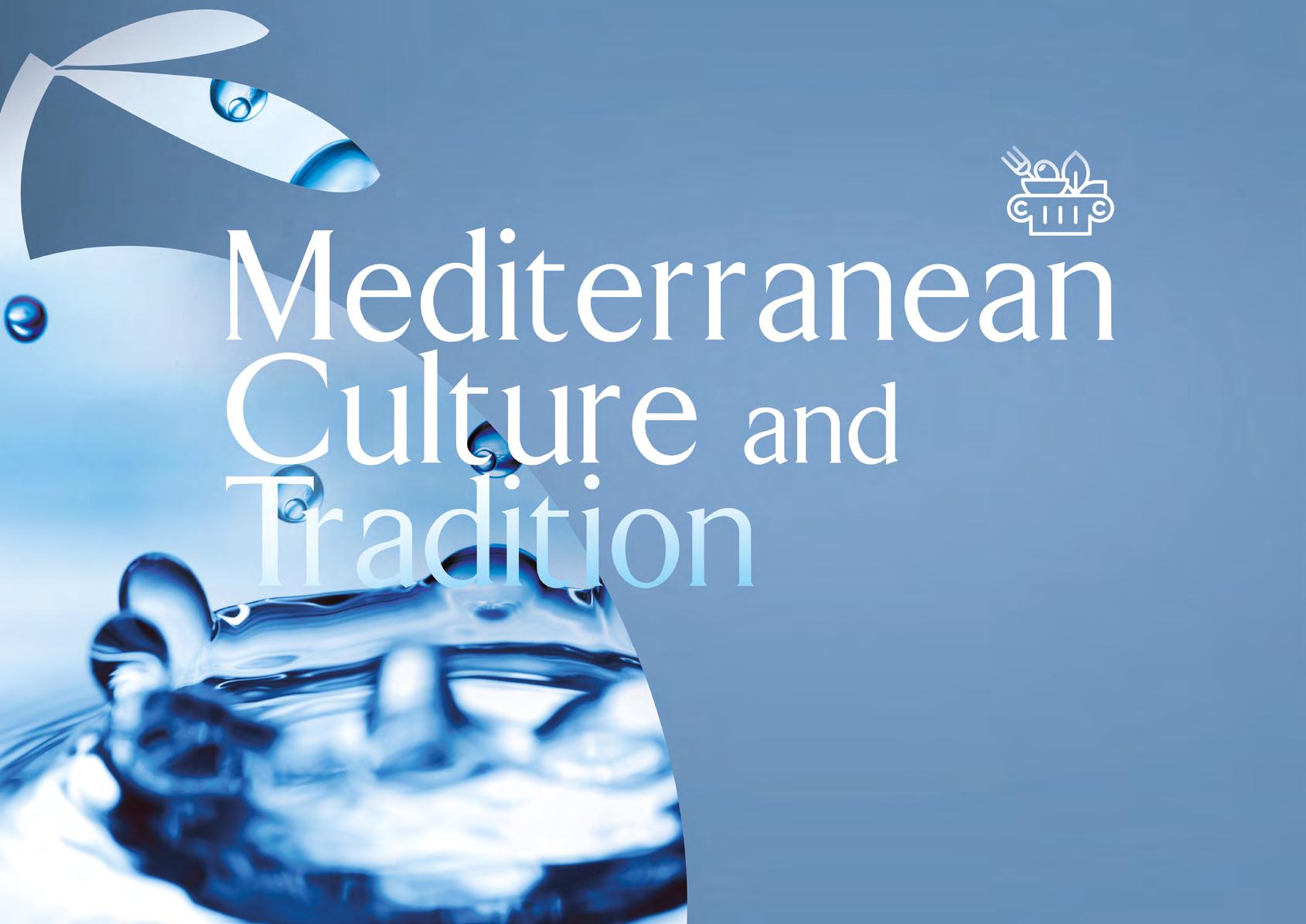
We have always endeavored to promote a culture of sustainability and healthy eating

The olive tree and the precious oil it gives us are symbols of the Mediterranean: the heart and the root of the civilizations that gave birth to our world.
This is where the passion and the mission of our enterprise stems from: the desire to help safeguard and transmit the traditions and knowledge that have created a universally recognized food culture.
Claudia Carli Head of Corporate Communications

• Maintain or increase the annual number of visitors to the Olive Museum
• Consolidate the transmission of content focused on sustainability via e-mail marketing, maintaining or increasing the number of messages sent to customers annually
• Ensure the regular monthly publication of digital content focused on sustainability on all the corporate social media channels active in the various nations served
• Guarantee the participation of the Olive Museum in at least one national cultural event a year on business and sustainable development
ON-GOING ON-GOING
ON-GOING
ON-GOING
visitors to the Carlo Carli Olive Museum compared to 2023 +13.6% of the Emporiums provide information on sustainability 100%
4,040,000
e-mail contacts with customers on sustainability issues
72
posts on sustainability issues on the corporate social media channels, ensuring a continuous monthly presence in all the areas served
see pages 118-119
+1,800
students have learned more about their studies in the rooms of the Carlo Carli Olive museum
776,400
visitors to the Carlo Carli Olive Museum since it opened
4,040,000
e-mail contacts with customers on sustainability issues
Cooking Courses held in the Emporium in Imperia 13
+13.6%
visitors to the Carlo Carli Olive Museum compared to 2023
For Fratelli Carli, sustainability is a cultural as well as an environmental choice, one shaped by our history rooted in the Mediterranean, embracing taste, wellbeing and relationships.
This is why we are proud to share the enterprise culture that defines us every day, through educational and awareness-raising activities and opportunities to engage in dialogue with our customers and the community.
Communicating sustainability with informative, engaging content
Once again this year, we have pursued our on-going communication regarding sustainability issues, with a digital publishing plan designed to inform and inspire customers and encourage informed, responsible choices.
More than 4 million e-mails were sent raising questions and providing information on all five of the company’s “sustainability pillars”, with the aim of sharing knowledge, values and practices able to guide customers towards responsible actions in their daily lives.
In addition to e-mail marketing, we have boosted our social media plan, adding more content focused on sustainability, conceived to reach an even wider audience, thanks to the immediate, direct language typical of these communication channels. This activity is set to continue over the coming months, with the aim of promoting a culture of change

More than 4 million e-mails were sent raising questions and providing information on sustainability
The Emporiums are more than just stores; they’re places where our relationship with our customers becomes more meaningful. Places where product quality meets competence and a warm welcome, and where customers can experience for themselves the values that guide the company.
The staff in our Emporiums play a key role in Fratelli Carli, and receive on-going training on all the company’s sustainability activities, which allows them to assist customers and offer them an informed, authentic experience.
In the Imperia Emporium, this experience also includes the opportunity to take part in cooking courses; a useful, enjoyable way to learn more about the distinctive features of the Mediterranean diet, and a tasty way for us to share a traditional, balanced, convivial food culture.
To strengthen this dialog, and to make the culture of oil even more engaging, Fratelli Carli has devised and developed a project within the company called “L’origine sei tu” (You are the origin), an experiential event conducted by our professional taster, head of a Federolio15 tasting panel, who guides participants along a sensory and narrative journey through the world of oil.
Participants begin their journey by discovering the cultivars and their origins, moving on to find out more about tasting techniques and the characteristics of the oils, and finally creating their very own personal blend. Customers thus have an opportunity to “step into the shoes” of an actual oil taster, and to see for themselves the art and the skill that goes into every bottle.
This fascinating activity is designed to illustrate the Mediterranean oil tradition, reinforcing the link between quality, culture and sustainability.
15 Federolio: National Oil Trade Federation.
“L’origine sei tu” (You are the origin), a
fascinating experiential event designed to illustrate the Mediterranean oil tradition, reinforcing the link between quality, culture and sustainability.
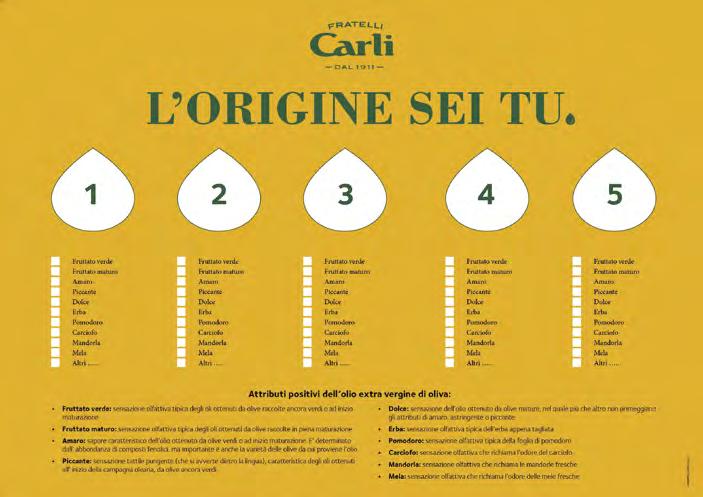

The museum route takes visitors through 18 themed rooms, on a captivating journey that embraces over 6,000 years of history
Located in the heart of Imperia, in the beautiful Liberty-style building that once hosted the company’s headquarters, the Carlo Carli Olive Museum was founded by the Carli Family in 1992. The Museum is home to one of the most extensive Italian archeological collections devoted to the culture of olives and olive oil. Declared “of exceptional archeological interest” by the Liguria Region Superintendence Office for Archeological Heritage
The museum route takes visitors through 18 themed rooms, on a captivating journey that embraces over 6,000 years of history, offering the chance to admire rare archeological finds such as oil lamps, oil bottles, beautiful jars for cosmetics, farming and milling equipment, testifying to the importance of olives and olive oils in the civilizations of the Mediterranean. The Museum also explores the role of oil in diet, religion, cosmetics and culture, highlighting the profound bond between humankind, olives and oil.
+19,000
visitors to the Olive Museum during the year
In 2024, the Museum welcomed more than 19,000 visitors, a rise of more than 13% compared to the previous year, with 10% accounted for by school groups who also take part in the educational activities organized by the Museum, such as “LaboratOlio”. More than 60% of visitors are tourists from abroad interested in exploring Mediterranean culture by learning about how olives and oil have travelled along all the coasts of our sea through the centuries.
In addition to preserving our historical heritage, the Carlo Carli Olive Museum is actively engaged in research and cultural enhancement projects Our collaboration with the University of Genoa on the “PatrimOlio culturale” project has led to a scholarship for a research PhD focused on the significance of olives and oil from the Classical Age to Late Antiquity.
More than
archives and museums of Italian companies brought together by Museimpresa

Museimpresa: promoting a culture of enterprise and sustainability
The Carlo Carli Olive Museum is an active member of Museimpresa, the Italian Association of Business Archives and Corporate Museums, which brings together over 130 corporate museums in Italy. The aim of this membership is to help preserve the memory of Italian industry, focusing on the importance of entrepreneurial skills as a driver of sustainable development
During the year, the Museum took part in a number of initiatives organized by the association, including “International Museum Day”, the “Itinerari Museimpresa” project in collaboration with the Italian Touring Club, “Settimana della Cultura d’Impresa” and “International Made in Italy Day”.
These activities strengthen the Carlo Carli Olive Museum’s key role in the promotion of a responsible business culture, integrating the company’s history with innovation and helping to promote the values of the Mediterranean diet, recognized by UNESCO as Intangible Cultural Heritage of Humanity
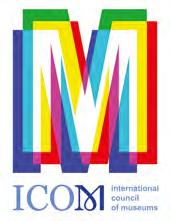
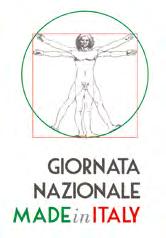

This Sustainability Report has been prepared in accordance with the principles of balance, comparability, accuracy, timeliness, clarity and reliability, as defined by the GRI Standards.
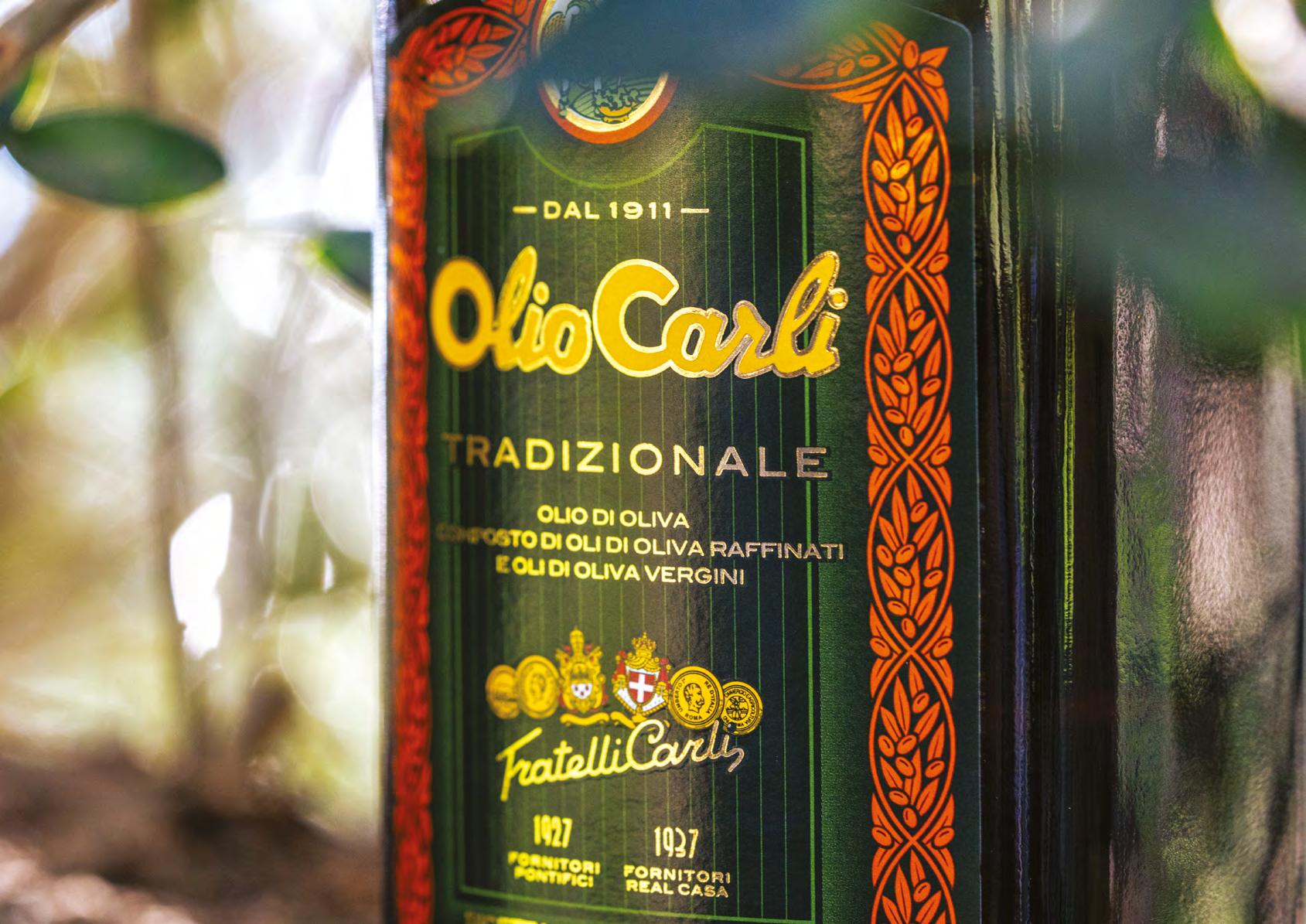
This document was drawn up in conformity with the GRI – Global Reporting Initiative – Sustainability Reporting Standards published in 2016 and updated in 2021.
This document was drawn up in conformity with the GRI – Global Reporting Initiative –Sustainability Reporting Standards published in 2016 and updated in 2021.
This Sustainability Report has been prepared with the “in accordance option”, in conformity with the principles of balance, comparability, accuracy, timeliness, clarity and reliability, as defined by the GRI Standards. The document highlights both strengths and weaknesses, as well as potential areas for improvement.
The data collection and the reporting process were structured in order to guarantee comparability and correct interpretation of the information on the part of the main stakeholders with an interest in the evolution of performance. Furthermore, the company adopts the precautionary principle in all its activities.
In order to maintain an approach based on ongoing improvement, the strategic and management goals for the subsequent reporting years were defined, heading each section of the Report, together with the company’s sustainability highlights. At the foot of the document, in the “Appendix”, the tables and other data provide an in-depth account of the indicators linked to the material issues of Fratelli Carli.
The contextual analysis conducted in 2023 for the purpose of updating materiality also enabled the company to focus on the challenges internationally acknowledged in the United Nations’ Agenda 2030, and to select 7 of the 17 Sustainable Development Goals (SDGs)8 on which Fratelli Carli can have the greatest impact, linking them to the company’s own sustainability goals.
Thus, the company focused on SDGs 3, 7, 8, 12, 14, 15 and 17. The sustainability goals indicated in each section of the Report are accompanied by the pertinent SDG icon.
16 On 25 September 2015, the 193 United Nations Member Countries unanimously approved the Global Agenda for Sustainable Development, with its 17 Sustainable Development Goals (SDGs), indicating 169 Targets to be reached by the end of 2030. Italy played a key role in negotiations and effectively committed to pursuing these international goals. Given the scale of the challenge, all public and private players are called upon to contribute within their own spheres of influence and action.
The scope of reporting includes the company Fratelli Carli S.p.A. S.B., with registered office in via Garessio 11, Imperia. With regard to aspects relating to energy consumption and relative GHG emissions, the data refer to the factory/ headquarters in Imperia, the factory in Gazzelli and the company’s own warehouses (Assago, Pognano). With regard to waste and water management, the data refer to the Imperia and Gazzelli sites.
For aspects relating to personnel, the data refer to the factory/headquarters in Imperia, the factory in Gazzelli, the warehouses owned by the company and the Emporiums.
This Sustainability Report is reviewed and approved in its entirety by the Board of Directors.
The information in the Report is based on data collected during the period from 1 January 2024 to 31 December 2024.
The following are the main methods of calculation adopted:
• Scope 1 direct emissions: for consumption of natural gas, gasoline, diesel and LPG, the emission factors taken from the table of standard national parameters of the Ministry for Environment, Land and Sea Protection (2022-2023-2024) were used; for refrigerant gas leakage from the air conditioning systems, the GWP provided by DEFRA (Department for Environment Food & Rural Affairs, United Kingdom) was used for the threeyear period 2022-2024.
• Scope 2 indirect emissions: Location-based: these emissions were calculated by multiplying the electricity purchased from the national grid by the emission factor taken from Confronti internazionali Terna based on Enerdata data – 2018, 2019, and 2020 data, up to 2023; starting from 2024, the emission factor of the European Environment Agency (EEA) has been used, since it is considered more up-to-date than Terna.
Market-based: there are no such emissions (0), since the company uses only electrical energy from renewable sources and therefore the virtual emission factor is zero.
• Scope 3 other indirect emissions:
Category 1 – Goods and services purchased: emissions were calculated based on the amounts of materials purchased by the company, placing importance on their place of origin. A specific emission factor was attributed to each material, taken from the Ecoinvent data bank or from LCA studies conducted in-house and/or by suppliers. An evaluation was also conducted on the use of electrical energy from renewable sources on the part of suppliers, thus reducing the resulting emission factor, as well as the proportion of all types of materials recycled. Comprised within this category are the emissions deriving from water consumption. In this case, the emission factor was taken from the DEFRA data bank, as for the services purchased by the company.
Category 2 – Capital goods: For the calculation of emissions, the primary element considered are the goods identified as fixed assets by Fratelli Carli. Specifically, goods costing in excess of €10,000 were considered. In this case, DEFRA emission factors were used.
Category 3 – Activities related to fuel and energy consumption:: Emissions were calculated by multiplying the amounts of fuel, electricity and thermal energy by the pertinent upstream emission factors. In this case, consumption attributable to the warehouses not owned by the company and to the Emporiums was considered. The emission factors were taken from DEFRA.
Category 4 – Upstream transport and distribution: emissions relating to logistics are divided into:
inbound materials, i.e. all the materials used as input for the production process; outbound materials, relating to the distribution of finished products and the delivery by self-employed van drivers. In both cases, the calculation was based on the distance travelled, the weight transported and the means of transport used (e.g. truck, train, ship). In some cases, the primary fuel consumption data were supplied by logistics service providers. Also in this case, the emission factor used was taken from the DEFRA data bank.
Category 5 – Waste generated by the company: based on the MUD (Environmental Declaration Form) and the respective EWC codes, the data are shown in kg and then combined with the emission factors from the Ecoinvent data bank, and to a marginal extent from DEFRA, regarding the processing of waste.
Category 6 – Business travel: emissions were calculated by considering the distance travelled (km) and the type of transport used by personnel for business travel. Distances were then multiplied by the specific emission factor taken from DEFRA. Please note that for stretches travelled by train in Italy, the average emission factor used was taken from the Sustainability Report of Trenitalia.
Category 7 – Work-home journeys: for this category, the valuation was based on the answers provided by Fratelli Carli employees in a questionnaire developed in 2020 to find out the distance they travel from home to work, and the means of transport used. The company believes that the information obtained from this survey analysis remains current and accurately reflects how and how far our employees travel to work, so the data shown are based on the outcome of the questionnaire. The emission factors used were taken from the DEFRA data bank for 2024.
Category 12 – End-of-life treatment of sold products: the analysis was based on the data provided by the company on the amount of packaging sold. For an estimate of what happens to packaging at the end of its life, official sources were used indicating the recycling percentages for each country: The ISPRA Urban Waste Report for Italy, Eurostat 2024 for the other European countries, and US EPA 2024 for the USA. These sources allowed us to determine how much packaging is effectively recycled and how much is treated in other ways (e.g. sent to landfill or for incineration). The emission factors associated with the various treatment scenarios were taken from the Ecoinvent data bank.
• Emissions avoided: emissions avoided were calculated by multiplying the total electrical energy produced using photovoltaic panels and expressed in kWh by the residual mix emission factor taken from AIB (Association of Issuing Bodies) 2022-2023-2024.
• Accidents at work:
rate of recordable accidents at work: ratio between the number of recordable accidents at work and the total number of hours worked, multiplied by 1,000,000;
rate of accidents with serious consequences (not including deaths): ratio between the number of serious accidents and the total number of hours worked, multiplied by 1,000,000;
rate of deaths resulting from accidents at work: ratio between the number of deaths due to accidents at work and the total number of hours worked, multiplied by 1,000,000.
The quantitative indicators that do not refer to any general or topic-specific disclosure in the GRI Standards, shown on the pages indicated in the Content Index, were not the object of a limited examination on the part of EY S.p.A.
People Employees’ safety and rights
Personal well-being and development
Diversity and equal opportunities
Customer satisfaction and safety
Materials and products
Food safety
Product quality and excellence
Sustainable materials and product eco-design
Supply chain
Responsible supply chain management
Enhancing local communities
Energy and resources Climate action
Reduction of production footprint
Mediterranean culture and tradition
GRI 403: Occupational health and safety
GRI 406: Non-discrimination
GRI 404: Education and training
GRI 401: Employment
GRI 405: Diversity and equal opportunities
GRI 416: Customer health and safety
GRI 417: Marketing and labelling
GRI 416: Customer health and safety
GRI 416: Customer health and safety
GRI 301: Materials
GRI 414: Supplier social assessment
GRI 308: Supplier environmental assessment
GRI 201: Economic performance
GRI 204: Procurement practices
GRI 302: Energy
GRI 305: Emissions
GRI 306: Waste
GRI 303: Water and effluents
Encouraging healthy lifestyles by promoting the Mediterranean diet -
Ethical business conduct
Ethical business conduct
Observance of privacy regulations
GRI 205: Anti-corruption
GRI 418: Customer privacy
To comply with legal obligations and report on the company’s impact, Fratelli Carli uses the third-party standard B Impact Assessment.
The measurement of its impact for the 2024 reporting year showed a score of 85.3.
The result of the B Impact Assessment is expressed with an overall company score, ranging from 0 to 200, broken down into the five main impact areas considered:
• Governance: matters concerning ethics, transparency and corporate mission;
• Dipendenti: matters concerning health and safety, well-being and employee satisfaction;
• Comunità: matters concerning inclusion, supply chain management and corporate social engagement;
• Ambiente: matters concerning climate change and natural resource management;
• Clienti: matters concerning interaction with consumers.
Fratelli Carli's B Impact Report, complete and certified by B Lab (a non-profit organization supporting the B Corp movement internationally), can be freely consulted at the following link: https://www.bcorporation.net/en-us/find-a-b-corp/ company/fratelli-carli-spa/
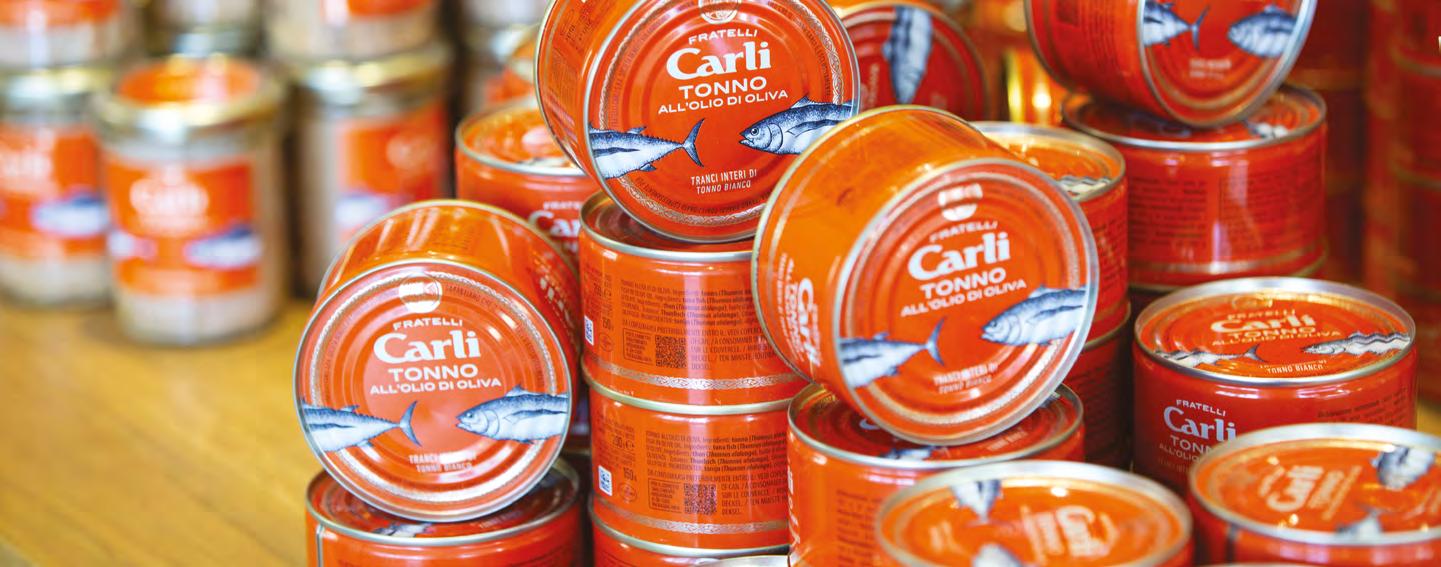
Workers other than employees whose work and/or workplace is under the organization’s control
18 Starting from 2024, the injury rate is recalculated as the ratio of recordable injuries to the total number of hours worked, multiplied by 1,000,000. Until 2023, the multiplier adopted was
This update enables harmonization of the indicator with the provisions of the ISO 45001 standard. The 2023 rate, using the multiplier 1,000,000, would be 5.11.

19 A new Data Warehouse (DWH) has been introduced in this reporting cycle to support the collection and management of sustainability data. This update has required a structured review of the categories for the classification of raw materials and materials, with the aim of improving consistency, traceability and accuracy.
20 Please note that the data referring to the “oil” raw material were affected by the temporary interruption of the refinery activity during the period considered, which had a significant impact on the volumes managed and the pertinent environmental indicators.
22 Total emissions relating to transport abroad have been recalculated. This rectification reflects the updating of data and the adoption of improved calculation methods.
23 For the calculation method, see the section “Methodological note”.
The material contained in this Sustainability Report refers to the following GRI Disclosures. Unless otherwise indicated, the disclosures are indicated in their entirety.
The organization and its reporting practices
GRI 2-1 Organizational details
GRI 2-2 Entities included in the organization’s sustainability reporting
GRI 2-3 Reporting period, frequency and contact point
GRI 2-4 Restatements of information
GRI 2-5 External assurance
Activities and workers
GRI 2-6 Activities, value chain and other business relationships
GRI 2-7 Employees
GRI 2-8 Workers who are not employees
Page 20
Page 20
Page 20
sosteniamoci@oliocarli.it
Compared to the data published in the 2022 Report, the following GRI have been updated: 305-3 Scope 3 emissions.
Pages 150-152
Pages 36-37
Page 129
Page 129 Governance
GRI 2-9 Governance structure and composition
GRI 2-10 Nomination and selection of the highest governance body
Page 20
Page 20
Disclosure
GRI 2-11 Chair of the highest governance body
GRI 2-12 Role of the highest governance body in overseeing the management of impacts
GRI 2-13 Delegation of responsibility for managing impacts
GRI 2-14 Role of the highest governance body in sustainability reporting
GRI 2-15 Conflicts of interest
GRI 2-16 Communication of critical concerns
GRI 2-17 Collective knowledge of the highest governance body
GRI 2-18 Evaluation of the performance of the highest governance body
GRI 2-19 Remuneration policies
GRI 2-20 Process to determine remuneration
GRI 2-21 Annual total compensation ratio
Strategy, policies and practices
GRI 2-22 Statement on sustainable development strategy
GRI 2-23 Policy commitments
GRI 2-24 Embedding policy commitments
GRI 2-25 Processes to remediate negative impacts
GRI 2-26 Mechanisms for seeking advice and raising concerns
GRI 2-27 Compliance with laws and regulations
GRI 2-28 Membership of associations
Stakeholder engagement
GRI 2-29 Approach to stakeholder engagement
GRI 2-30 Collective bargaining agreements
Page 20
Page 22
Page 22
Page 20
Page 23
Page 23
Page 20
The Board of Directors is not subjected to evaluation of its performance with reference to the supervision of impacts on the economy, the environment and people
Page 22
Page 22
Confidentiality constraints
Pages 29-30
Pages 22-23
Pages 22-23
Pages 22-23
Page 26
Page 23
Page 23
Page 42
Page 61
Disclosure Description of the Indicator
Material issues
GRI 3-1 Process to determine material issues
GRI 3-2 List of material issues
Enhancing local communities
GRI 3-3 Management of material issues
GRI 201-1 Economic value directly generated and distributed
GRI 204-1 Proportion of expenditure to local suppliers
Ethical business conduct
GRI 3-3
Management of material issues
GRI 205-3 Confirmed incidents of corruption and actions taken
Sustainability of materials and product eco-design
GRI 3-3 Management of material issues
GRI 301-1 Materials used by weight or volume
Climate action
GRI 3-3 Management of material issues
GRI 302-1 Energy consumption within the organization
GRI 305-1 Direct GHG emissions (Scope 1)
GRI 305-2 Indirect GHG emissions from energy consumption (Scope 2)
GRI 305-3 Other Indirect GHG emissions (Scope 3)
GRI 305-4 Intensità delle emissioni di gas a effetto serra (GHG)
Reducing the production footprint
GRI 3-3 Management of material issues
GRI 303-1 Interaction with water as a shared resource
Pages 34-41
Pages 37-41
Pages 39; 66-92
Page 43
Page 92
Pages 20-41
Page 128
Pages 39-78
Pages 135-136
Pages 40; 99-109
Pages 137-138
Page 138
Page 138
Page 139
Page 139
Pages 40; 107
Page 107
Disclosure Description of the Indicator
GRI 303-2 Management of impacts related to water discharge Page107
GRI 303-3 Water withdrawal Page 140
GRI 303-4 Water discharge Page 140
GRI 303-5 Water consumption Page 140
GRI 306-1 Waste generation and significant waste-related impacts Page 106
GRI 306-2 Management of significant waste-related impacts Page 106
GRI 306-3 Waste generated Page 141
GRI 306-4 Waste not sent to landfill Page 141
GRI 306-5 Waste sent to landfill Page 141
Responsible supply chain management
GRI 3-3 Management of material issues
Pages 39; 88-97
GRI 308-1 New suppliers selected using environmental criteria Pages 92-95
GRI 414-1 New suppliers selected using social criteria Pages 92-95
Employees’ safety and rights
GRI 3-3 Management of material issues Pages 38; 52-73
GRI 403-1 Occupational health and safety management system Pages 61-62
GRI 403-2 Hazard identification, risk assessment and incident investigation Page 62
GRI 403-3 Occupational health services Pages 61-62
GRI 403-4 Worker participation, consultation and communication on occupational health and safety Pages 61-62
GRI 403-5 Worker training on occupational health and safety Page 61
GRI 403-6 Promotion of worker health Pages 61-62
GRI 403-7 Prevention and mitigation of occupational health and safety impacts directly linked by business relationships Pages 61-62
GRI 403-9 Injuries in the workplace Page 131
GRI 406-1 Incidents of discrimination and corrective actions taken Page 59
Disclosure Description of the Indicator
Personal wellbeing and development
GRI 3-3
Management of material issues
GRI 401-1 New hires and employee turnover
GRI 401-2 Benefits for full-time employees not available for part-time temporary employees
GRI 404-1 Average yearly training hours per employee
Diversity and equal opportunities
GRI 3-3
Management of material issues
GRI 405-1 Diversity of governance bodies and employees
Food safety
GRI 3-3
Management of material issues
GRI 416-2 Episodes of non-compliance concerning health and safety impacts of products and services
Product quality and excellence
GRI 3-3
Management of material issues
GRI 417-3 Incidents of non-compliance concerning marketing communications
Respect for privacy
GRI 3-3 Management of material issues
GRI 418-1 Justified complaints concerning breaches of customers’ privacy and loss of their data
Fostering healthy lifestyles by promoting the Mediterranean diet
GRI 3-3 Management of material issues
Soddisfazione e sicurezza dei clienti
GRI 3-3 Management of material issues
Pages 38; 52-73
Page 130
Page 63
Page 132
Pages 38; 52-73
Pages 133-134
Pages 39; 76-78
Page 79
Pages 39; 52-73
Page 79
Page 41; 61
Page 134
Pages 41; 112-119
Pages 39; 65
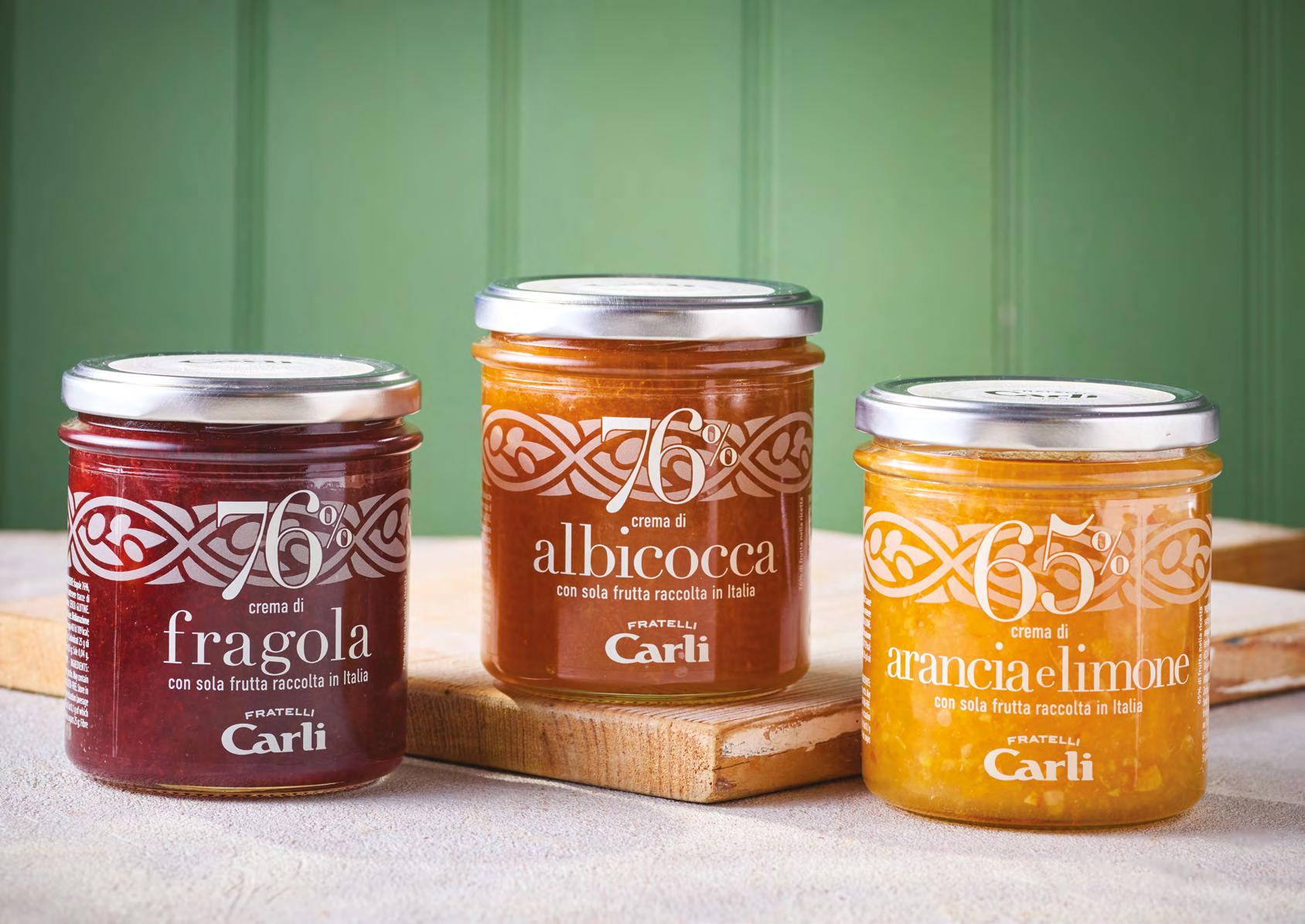

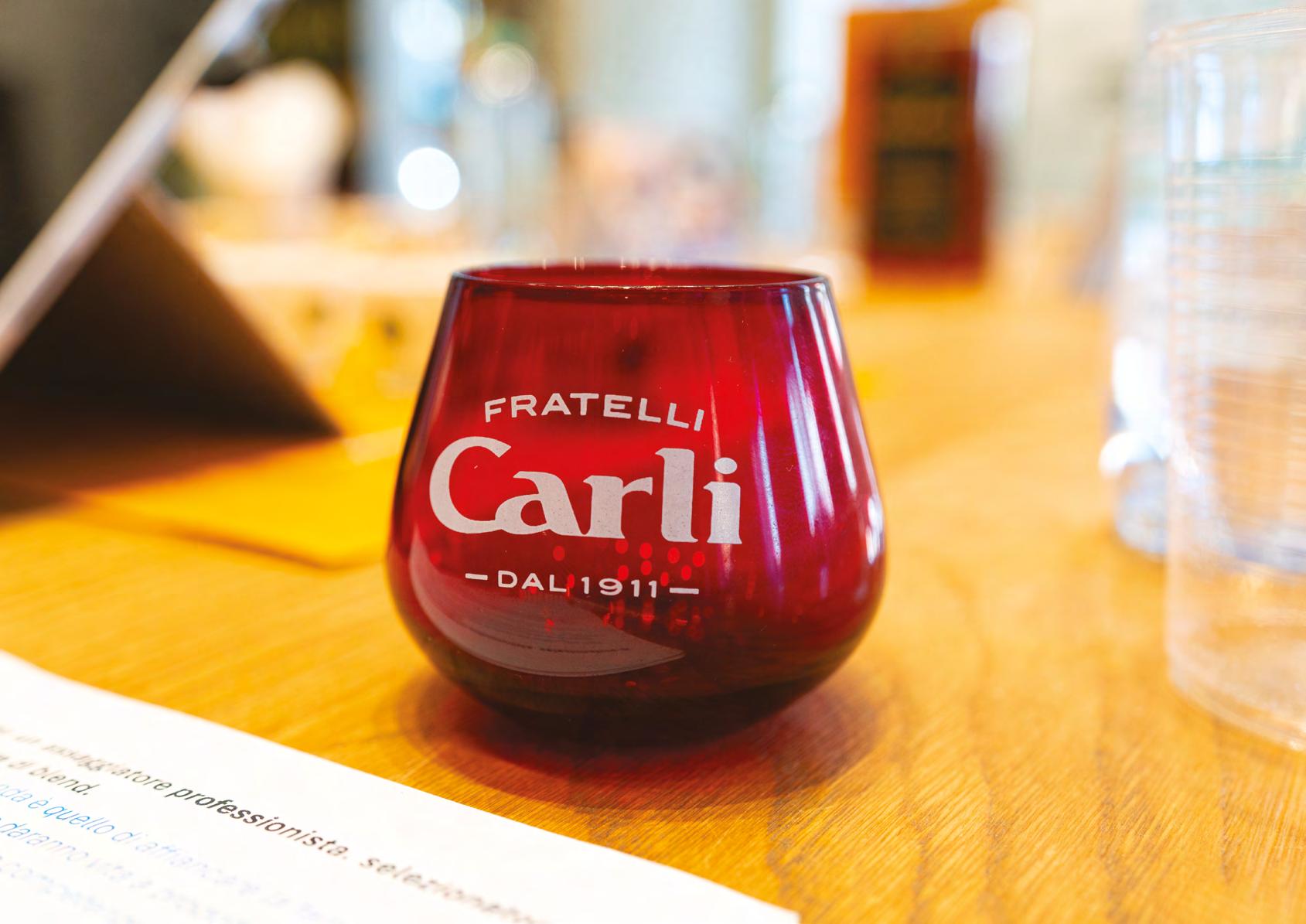

Tel: +39 011 5161611
Fax: +39 011 5612554 ey.com
Relazione della società di revisione indipendente sul Report di Sostenibilità
Al Consiglio di Amministrazione della Fratelli Carli S.p.A. Società Benefit
We were entrusted with conducting a limited assurance engagement on the Sustainability Report of Fratelli Carli S.p.A. Società Benefit (hereinafter also “the Company”) regarding the FY that ended on 31 December 2024.
Siamo stati incaricati di effettuare un esame limitato (“limited assurance engagement” ) del Report di Sostenibilità della Fratelli Carli S.p.A. Società Benefit (di seguito anche “la Società”) relativo all’esercizio chiuso al 31 dicembre 2023.
Responsabilità degli Amministratori per il Report di Sostenibilità
The Directors of Fratelli Carli SpA Società Benefit are responsible for drafting the Sustainability Report in compliance with the “Global Reporting Initiative Sustainability Reporting Standards” defined by the GRI – Global Reporting Initiative (“GRI Standards”) as described in the section “Methodology Note” of the Sustainability Report.
Gli Amministratori della Fratelli Carli S.p.A. Società Benefit sono responsabili per la redazione del Report di Sostenibilità in conformità ai “Global Reporting Initiative Sustainability Reporting Standards” definiti dal GRI - Global Reporting Initiative (“GRI Standards”), come descritto nella sezione “Nota metodologica” del Report di Sostenibilità.
The Directors are also responsible for the supervisory role they consider necessary to enable the drafting of a Sustainability Report that does not contain significant errors due to fraud or unintentional behaviours or events.
Gli Amministratori sono altresì responsabili per quella parte del controllo interno da essi ritenuta necessaria al fine di consentire la redazione di un Report di Sostenibilità che non contenga errori significativi dovuti a frodi o a comportamenti o eventi non intenzionali.
The Directors are also responsible for defining the Company’s performance targets in relation to sustainability, as well as for identifying stakeholders and the significant aspects to report on.
Gli Amministratori sono inoltre responsabili per la definizione degli obiettivi della Società in relazione alla performance di sostenibilità, nonché per l’identificazione degli stakeholder e degli aspetti significativi da rendicontare.
Indipendenza della società di revisione e controllo della qualità
We are independent in compliance with the principles of ethics and independence of the International Code of Ethics for Professional Accountants (including International Independence Standards) (IESBA Code) issued by the International Ethics Standards Board for Accountants, based on the fundamental principles of integrity, impartiality, competence and professional diligence, confidentiality and professional conduct.
Siamo indipendenti in conformità ai principi in materia di etica e di indipendenza dell’ International Code of Ethics for Professional Accountants (including International Independence Standards) (IESBA Code) emesso dall’ International Ethics Standards Board for Accountants, basato su principi fondamentali di integrità, obiettività, competenza e diligenza professionale, riservatezza e comportamento professionale.
Our auditing firm applies the International Standard on Quality Control 1 (ISQC Italia 1), and consequently, maintains a quality control system that includes directives and procedures documented on compliance with ethical and professional principles and the applicable legal measures and regulations.
La nostra società di revisione applica l’ International Standard on Quality Control 1 (ISQC Italia 1) e, di conseguenza, mantiene un sistema di controllo qualità che include direttive e procedure documentate sulla conformità ai principi etici, ai principi professionali e alle disposizioni di legge e dei regolamenti applicabili.
EY S.p.A.
Registered Office: Via Meravigli, 12 – 20123 Milan
Secondary Office: Via Lombardia, 31 – 00187 Rome
Share Capital Euro 2,600,000.00 fully paid up
Registered with the Ordinary Section of the Register of Companies at the Chamber of Commerce of Milan Monza Brianza Lodi T.I.N. and registration number 00434000584 – Economic and Administrative Index of Milan no. 606158 – VAT no. 00891231003
Registered with the Register of Statutory Auditors under no. Published in the Official Gazette Suppl. 13 - IV Special series of 17/2/1998

Responsabilità della società di revisione
È nostra la responsabilità di esprimere, sulla base delle procedure svolte, una conclusione circa la conformità del Report di Sostenibilità rispetto a quanto richiesto dai GRI Standards. Il nostro lavoro è stato svolto secondo quanto previsto dal principio “ International Standard on Assurance Engagements ISAE 3000 (Revised) - Assurance Engagements Other than Audits or Reviews of Historical Financial Information” (di seguito anche “ ISAE 3000 Revised”), emanato dall’ International Auditing and Assurance Standards Board (IAASB) per gli incarichi di limited assurance. Tale principio richiede la pianificazione e lo svolgimento di procedure al fine di acquisire un livello di sicurezza limitato che il Report di Sostenibilità non contenga errori significativi.
It is our responsibility, based on the procedures carried out, to draft a conclusion regarding the compliance of the Sustainability Report with the requirements of the GRI Standards. Our work has been carried out in accordance with the provisions of the “International Standard on Assurance Engagements ISAE 3000 (Revised) – Assurance Engagements Other than Audits or Reviews of Historical Financial Information” (hereinafter also “ISAE 3000 Revised”), issued by the International Auditing and Assurance Standards Board (IAASB) for limited assurance. This standard requires the planning and carrying out of procedures in order to acquire limited assurance that the Sustainability Report does not contain significant errors.
Pertanto, il nostro esame ha comportato un’estensione di lavoro inferiore a quella necessaria per lo svolgimento di un esame completo secondo l’ISAE 3000 Revised (“ reasonable assurance engagement ”) e, conseguentemente, non ci consente di avere la sicurezza di essere venuti a conoscenza di tutti fatti e le circostanze significativi che potrebbero essere identificati con lo svolgimento di tale esame.
Therefore, the scope of our examination was inferior to that required for conducting a reasonable assurance engagement in accordance with ISAE 3000 Revised. Consequently, we cannot be certain that we have ascertained all the significant facts and circumstances that could be identified if such an engagement were carried out.
Le procedure svolte sul Report di Sostenibilità si sono basate sul nostro giudizio professionale e hanno compreso colloqui, prevalentemente con il personale della Società responsabile per la predisposizione delle informazioni presentate nel Report di Sostenibilità, nonché analisi di documenti, ricalcoli ed altre procedure volte all’acquisizione di evidenze ritenute utili.
In particolare, abbiamo svolto le seguenti procedure:
The procedures carried out on the Sustainability Report are based on our professional judgement, and included interviews, mainly with the Company personnel responsible for drafting the information presented in the Sustainability Report, as well as an analysis of documents, recalculations and other procedures designed to acquire evidence considered useful.
1. analisi del processo di definizione dei temi rilevanti rendicontati nel Report di Sostenibilità, con riferimento alle modalità di identificazione in termini di loro priorità per le diverse categorie di stakeholder e alla validazione interna delle risultanze del processo;
2. comparazione tra i dati e le informazioni di carattere economico-finanziario riportati nel Report di Sostenibilità e dati e le informazioni incluse nel bilancio d’esercizio della Società;
Specifically, we carried out the following procedures:
3. comprensione dei processi che sottendono alla generazione, rilevazione e gestione delle informazioni qualitative e quantitative significative incluse nel Report di Sostenibilità.
1 analysis of the process for defining the significant matters reported on in the Sustainability Report, with reference to how they were identified in terms of priority for the various categories of stakeholders and the internal validation of the process outcomes;
In particolare, abbiamo svolto interviste e discussioni con il personale della Direzione della Società e del sito produttivo di Gazzelli e abbiamo svolto limitate verifiche documentali, al fine di raccogliere informazioni circa i processi e le procedure che supportano la raccolta, l’aggregazione, l’elaborazione e la trasmissione dei dati e delle informazioni di carattere non finanziario alla funzione responsabile della predisposizione del Report di Sostenibilità.
Inoltre, per le informazioni significative, tenuto conto delle attività e delle caratteristiche della Società:
2 comparison between the data and the information of an economic and financial nature reported in the Sustainability Report and the data and the information included in the financial statements of the Company;
- a livello di azienda:
a) con riferimento alle informazioni qualitative contenute nel Report di Sostenibilità abbiamo effettuato interviste e acquisito documentazione di supporto per verificarne la coerenza con le evidenze disponibili;
3 Understanding of the processes underlying the generation, collection and management of the significant qualitative and quantitative information included in the Sustainability Report. Specifically, we conducted interviews and discussions with the Company Management and the personnel of the Gazzelli production plant, as well as limited checks on documents, in order to gather information on the processes and procedures supporting the collection, aggregation, processing and transmission of data and information of a non-financial nature to the function responsible for preparing the Sustainability Report.
b) con riferimento alle informazioni quantitative, abbiamo svolto sia procedure analitiche che limitate verifiche per accertare su base campionaria la corretta aggregazione dei dati.
- Per la sede di via Garessio, che abbiamo selezionato sulla base della sua attività, del suo contributo agli indicatori di prestazione e della sua ubicazione, abbiamo effettuato incontri nel corso dei quali ci siamo confrontati con responsabili e abbiamo acquisito riscontri documentali su base campionaria circa la corretta applicazione delle procedure e dei metodi di calcolo utilizzati per gli indicatori.

Relazione della società di revisione indipendente sul Report di Sostenibilità
In addition, for the significant information, taking account of the activities and characteristics of the Company:
- At company level:
Al Consiglio di Amministrazione della Fratelli Carli S.p.A. Società Benefit
a) with reference to the qualitative information contained in the Sustainability Report, we conducted interviews and acquired supporting documentation to verify consistency with the evidence available;
Siamo stati incaricati di effettuare un esame limitato (“limited assurance engagement” ) del Report di Sostenibilità della Fratelli Carli S.p.A. Società Benefit (di seguito anche “la Società”) relativo all’esercizio chiuso al 31 dicembre 2023.
b) with reference to the quantitative information, we conducted both analytical procedures and limited checks to ascertain the correct aggregation of data, on a sample basis.
Responsabilità degli Amministratori per il Report di Sostenibilità
Gli Amministratori della Fratelli Carli S.p.A. Società Benefit sono responsabili per la redazione del Report di Sostenibilità in conformità ai “Global Reporting Initiative Sustainability Reporting Standards” definiti dal GRI - Global Reporting Initiative (“GRI Standards”), come descritto nella sezione “Nota metodologica” del Report di Sostenibilità.
Based on the work carried out, no elements have come to our attention that lead us to believe that the Sustainability Report of Fratelli Carli S.p.A. Società Benefit regarding the FY that ended on 31 December 2024 has not been drafted, in all its significant aspects, in compliance with the requirements of the GRI Standards as described in the Methodology Note paragraph of the Sustainability Report.
Gli Amministratori sono altresì responsabili per quella parte del controllo interno da essi ritenuta necessaria al fine di consentire la redazione di un Report di Sostenibilità che non contenga errori significativi dovuti a frodi o a comportamenti o eventi non intenzionali.
Genova, 20 June 2025
Gli Amministratori sono inoltre responsabili per la definizione degli obiettivi della Società in relazione alla performance di sostenibilità, nonché per l’identificazione degli stakeholder e degli aspetti significativi da rendicontare.
EY S.p.A.
Indipendenza della società di revisione e controllo della qualità
Riccardo Riva (Statutory Auditor)
Siamo indipendenti in conformità ai principi in materia di etica e di indipendenza dell’ International Code of Ethics for Professional Accountants (including International Independence Standards) (IESBA Code) emesso dall’ International Ethics Standards Board for Accountants, basato su principi fondamentali di integrità, obiettività, competenza e diligenza professionale, riservatezza e comportamento professionale.
La nostra società di revisione applica l’ International Standard on Quality Control 1 (ISQC Italia 1) e, di conseguenza, mantiene un sistema di controllo qualità che include direttive e procedure documentate sulla conformità ai principi etici, ai principi professionali e alle disposizioni di legge e dei regolamenti applicabili.

Carli S.p.A. Società Benefit
Via Garessio 11, 18100 Imperia www.oliocarli.it